Find works from 24 different creatives from around the world ranging from art, fiction, poetry, nonfiction, and plays

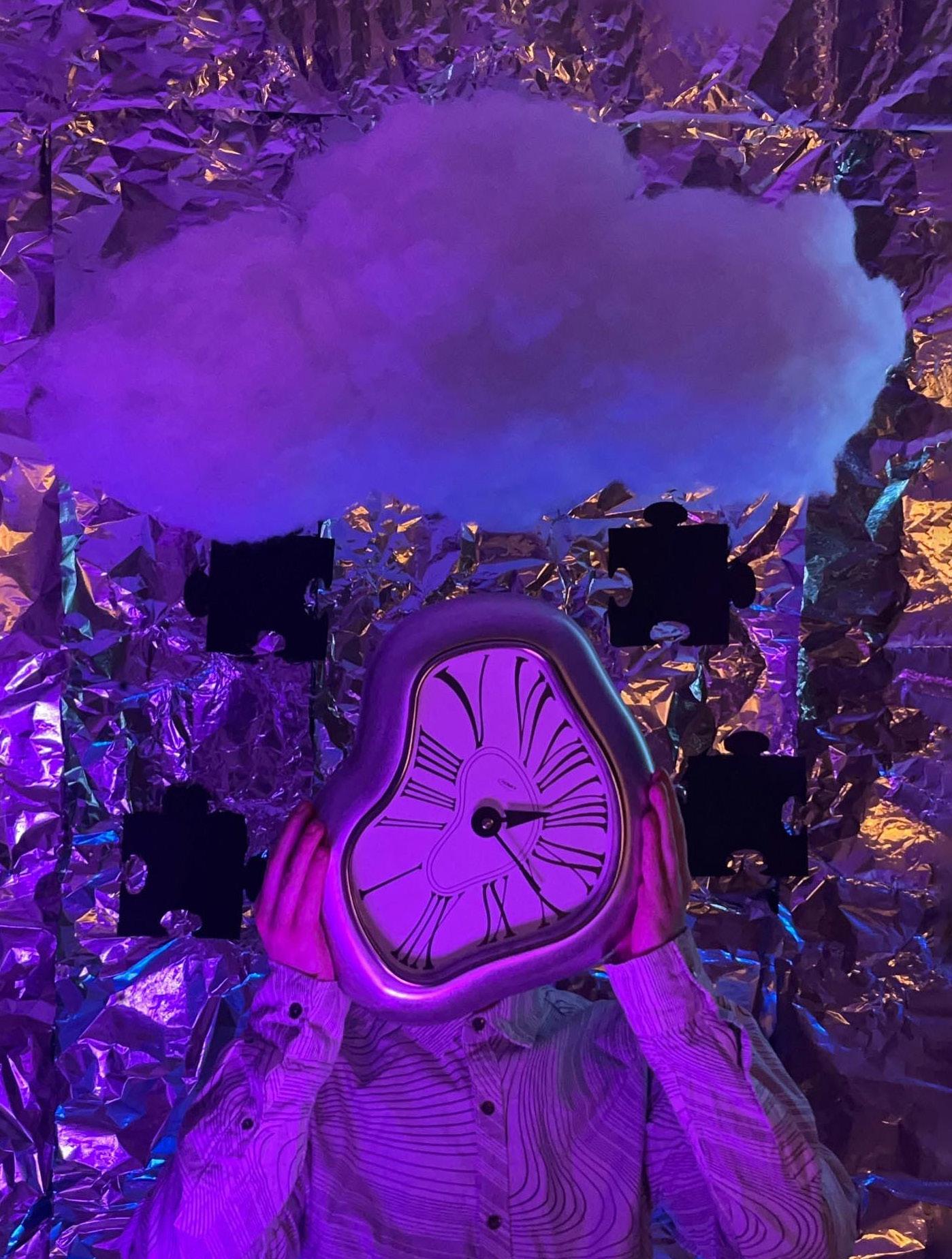
Art | Fiction | Poetry| Plays| Screenplays | Films | Interviews
5| Winter
Issue
A Conversation with Zoë Mahler about the process and creation of NYC Book Hoes
Interview
© 2023 by Chaotic Merge Magazine. All Rights Reserved. All rights to all original artwork, photography, and written works belongs to the respective owners as stated in the attributions. Without limiting the rights under copyright reserved above, no part of this publication may be reproduced, stored in or introduced into a retrieval system or transmitted in any means (electronic, mechanical, photocopying, recording, or otherwise) without the prior written permission of both the copyright owner and publisher.
TABLE OF CONTENTS FICTION POETRY 65 86 108 19 21 23 ON EGGSHELLS by Audrey Carroll casualties by Alec Evan March SOILED by Reece Herberg twice over by Sage Kubis characteristics of our charism by Sage Kubis no Experation Date by Harris PlesKovitch NONFICTION 39 79 HOW TO BE CATFISHED OVER AIM AT AGE 14 by Erica Hoffmeiseter BACKSEAT LOVERS by Sam Carberry 117 95 16 61 62 94 THE DUST THAT REMAINS by Charmaine Arjoonlal KEEPING SECRETS by
Rubin LILITH FAIR, 1996 by Abby
WHEN HOUSTON BECOMES VENICE
DEBRIS
IN GEORGETOWN GUYANA
3 47 ASTROTURF
I WON’T BE THAT PERSON
PLAYWRITING
Rich
Hosterman
by Stephanie Holden
by Carolyn Martin
by Smitha Sehgal
by Kolin Lawler
by Sarah Elizabeth Grace
by Klara Asklund
by Klara Asklund
by James Diaz
by Kelli Lage
by Kelli Lage
COVERSATION WITH ZOË MAHLER Creator of NYC Book Hoes
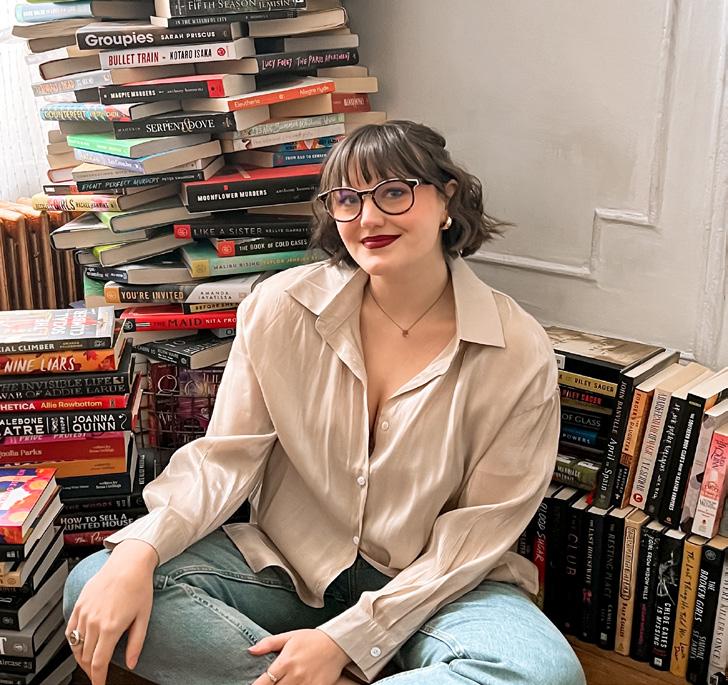 by Hailey Thielen
Klara Asklund
by Hailey Thielen
Klara Asklund
FOLLOW US ON OUR SOCIALS

ART 1 2 YOU DON’T ARGUE WITH PARADISE
NO ONE IS BEAUTIFUL IN HEAVEN by James
15 17 37 38 63 77 FAITHFUL by Rendan Lovell WIND by Rendan Lovell CALVES DISCOVER NEW LIFE
AFTER RAIN IN THE SPRING
SKATE
SELFPORTRAIT by
93 107 THE ORDEAL by
UNDRESS
Diaz
Prashant Mishra
by Alaura Garcia 115 116 HANDS GROWING
EXPECTATIONS
COVER ART
DAYDREAM by Cody Morgan
INTERVIEW
30 IN
OUR EDITORS LETTER FROM THE EDITOR
EDITOR IN CHIEF
Jasmine Ferrufino
POETRY MANAGING EDITOR
Britt Trachtenberg
FICTION MANAGING EDITOR
Mason Martinez
POETRY EDITOR
Alison Van Glad
Sarah Lawless
FICTION EDITORS
Lassiter Jamison
Tabatha Miller
Isha Jain
Jonnell Burke
NONFICTION EDITORS
Emily Townsend
Frederica Danzinger
PLAYWRITING EDITOR
Bailey Peabody
READERS
Thomas Orr
Julia Watson
Shayla Drzycimski
LAYOUT & DESIGN/ PHOTOGRAPHERS
Jasmine Ferrufino
Jack Palmiotti
Dear Readers,
Thank you for picking up a copy of Issue 5. This issue features 24 different creatives ranging in different art and writing forms. This issue is a reminder of what Chaotic Merge is, a merging of different works being unified in one spot representing all of our different perspectives. This issue, although ranging in different formats, touches on common themes. I hope when you read/ see these work(s), you’ll notice the beauty of its creation, the reasoning behind specific placements, and most importantly, the feelings that bleed through the pages. Please take a moment to fully enjoy these pieces and all the heart given to them by the creators, the editors, our readers, and anyone who joined in on the process. Take a piece of us as your read this issue!
Stay chaotic,
Jasmine Ferrufino Editor in Chief
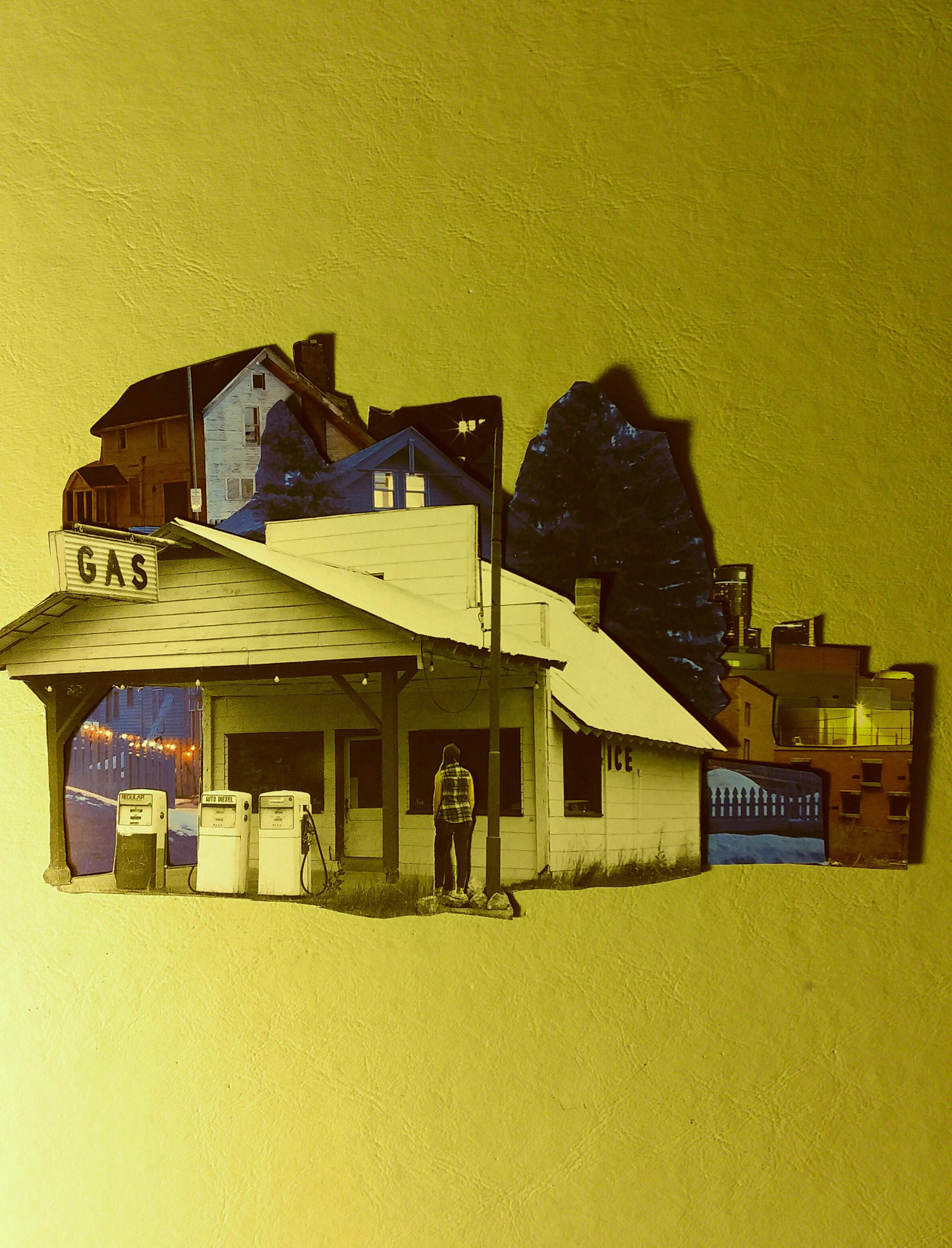
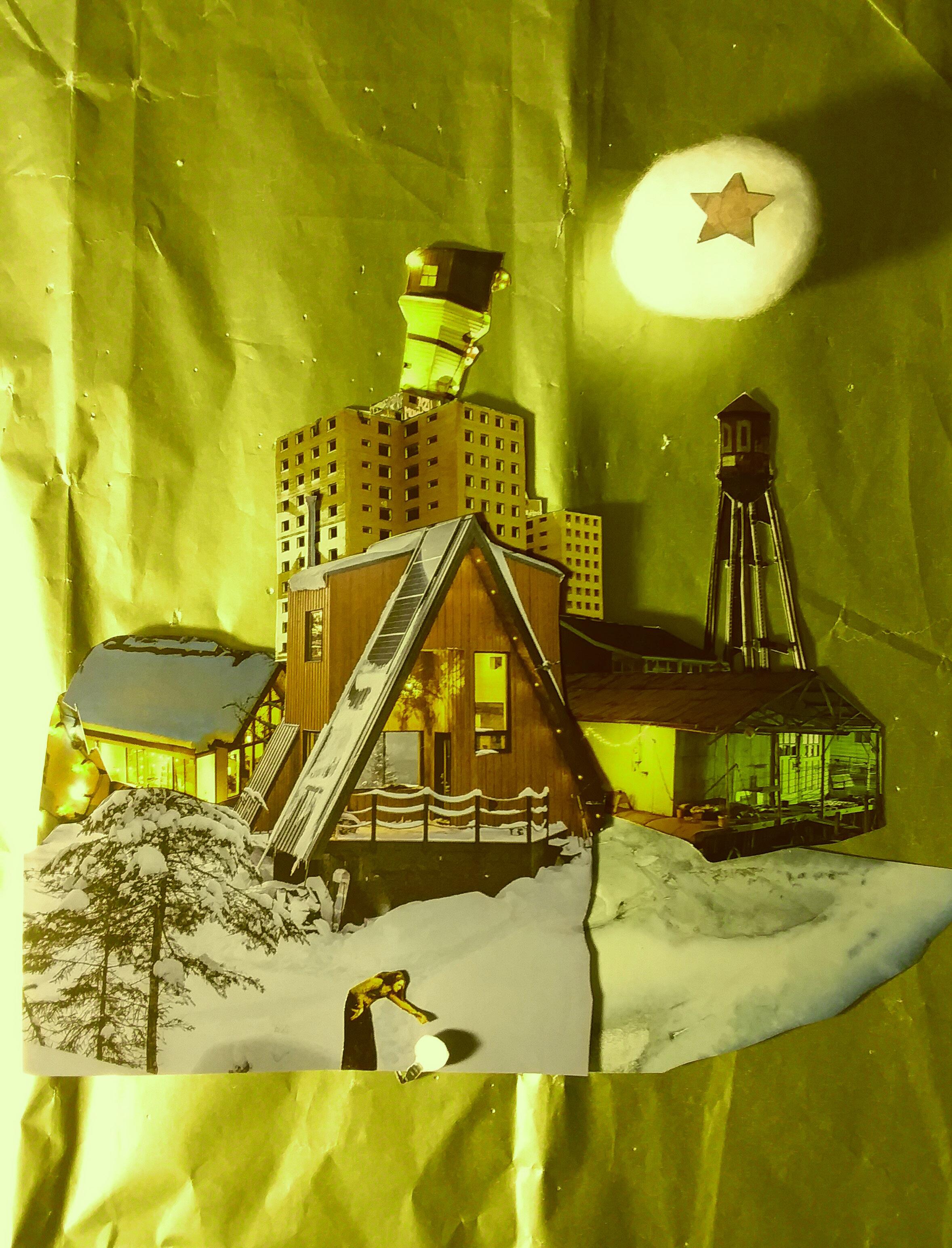
Astroturf
by Kolin
Lawler
Scene 1
Somewhere, deep in the vacuum of space, NELSON and ATTAYA, occupy opposite sides of the stage in imaginary space capsules that are no larger than a sedan. Perhaps they’re represented by rolling office chairs, jungle gym equipment, or cardboard boxes. No matter the case, they are rather low tech and seemingly cost efficient. As the lights come up the two are nervously composing themselves and flickering switches in front of an imaginary screen for their video all.
ATTAYA
Can you hear me? I can see you. Hello?
NELSON
Yes...I can hear you...Still getting a black screen though, can you hear me?
There’s an awkward pause; a technical delay. These are common out in space. NELSON freezes during the duration of said delay. Another delay, this time ATTAYA freezes as NELSON stares at his screen intensely.
ATTAYA
Yes! I can hear you and see you, you’re moving now, and, wow you have such a nice voice.
NELSON
Why thank you. You do as well.
He’s overcome by the emotional weight of human connection.
3 | Issue 5
NELSON (Cont.)
Sorry, I don’t usually cry on first dates. It’s just been so long since-
ATTAYA
If it’s any reassurance, I don’t get many dates out here either.
NELSON
No, not even dates, just, seeing and talking to another person.
ATTAYA
Do you spend much time on general chat?
NELSON
I try to, but it’s not always the most encouraging. Not everyone remembered to bring a webcam, and those who did, those who speak my language, most of the time it’s a lot of crying. A lot of delays, failed connections. Sometimes it’s just dudes jacking off.
ATTAYA
I’ve had my share of those.
NELSON
And the A.I.s? They just make me depressed.
ATTAYA (Deeply sardonic)
Well, before we go forward with this you should know I have quite a robust relationship with my husband, Raul. I designed him myself. He’s got dark spanish eyes and a thick wooly beard. He calls me “Stardust”.
NELSON
Right, so he looks nothing like me?
ATTAYA
Not in the slightest. Maybe that’s why I took an interest in you.
NELSON
Was I just the first person you could reach out to?
Winter | 4
ATTAYA
No, no. I chose you. I wanted you. I still want you. I-
NELSON
No shit?
ATTAYA
There was a certain pain in your eyes. In your picture. And most people have several, usually from back on Earth. But you just had that one. And there was something familiar there, that I feel like I understood? And I mean so far you’re not aggressively jerking off into your webcam, so that’s a plus.
NELSON (With a hint of genuine sweetness) High standards out here.
ATTAYA
Right?
NELSON
Well for whatever it’s worth I think you’re very beautiful.
ATTAYA
Thank you. I think you’re beautiful as well. Have you ever been called beautiful before?
NELSON
Not often. But I believe you when you say it.
Beat. This word has awoken a repressed memory.
NELSON (CONT.)
In high school I used to turn the lights off when I got ready in the morning. Otherwise, I’d stare at myself in the mirror till I cried. For some reason I started to feel beautiful. Which now seems so weird, needed how important that was. Eventually I would look in the mirror, and tell myself, “I am beautiful”, which was the hardest fucking thing for some
5 | Issue 5
Beat.
NELSON (CONT.)
Sorry, I don’t mean to be rambling about myself.
A delay, ATTAYA is briefly frozen
NELSON (CONT.)
Are you still there?
ATTAYA
Yes...I’m here. And it’s okay, I like to listen.
NELSON
Can I ask you something?
ATTAYA
Ask away. I don’t exactly have a lot of hangups out here.
NELSON
Why did you sign up for Space Dates?
ATTAYA
As opposed to just general chat?
NELSON
Well, no. What I meant was, why would you want to go on a virtual date with someone you have virtually no likelihood of meeting or speaking to again?
ATTAYA
Well, I think I just miss the feeling of falling in love with someone, like, truly falling in love. I have this playlist, all of my favorite songs that remind me of that feeling. It’s all so corny I’m sure, but it was my favorite part of the beginning of a relationship. When it felt like it could go anywhere and everywhere. Back in college, I had to walk up this ginormous hill every morning to get to my class. It was freezing. But I was so warm listening to this one song, thinking about Riley, the way he looked at me, the way we kissed, being in the back of his truck-I don’t wanna be too graphic but-
Winter | 6
NELSON
No go ahead. It’s nothing to be ashamed of. You gotta keep these memories alive.
ATTAYA
The way that he would hold me, his skin, his breathe. His body. I would close my eyes and there wasn’t anything else at all, it felt like we were-
NELSON
Floating?
ATTAYA
Well not like this! (She laughs, maybe even snorts) I’m sorry I didn’t mean for that to sound rude.
NELSON freezes for a moment.
ATTAYA (CONT.)
Hello?
NELSON
I’m still here. You’ll have to forgive me. I have a bad relay. I miss feeling that way too. That’s why I made a Space Dates. Sometimes it’s nice just to imagine.
ATTAYA
There’s a song on my list that I really like. I wonder if you’ve heard it. Do you know Blondie?
NELSON
Im aware of her.
ATTAYA
Well, they’re a band but-anyway the song “Dreaming”?
NELSON
Doesn’t ring a bell. How does it go?
ATTAYA
Well, Okay. It’s like: (she sings, it’s quite bad) When, I met you in the restaurant, you could tell I was no debutante... (She laughs) Sorry this feels so weird.
7 | Issue 5
No please keep going.
NELSON
ATTAYA
(She sings again, feigning laughter)
I asked you what’s your pleasure, a movie or a treasure? I’ll have a cup of tea.
(She briefly forgets the words)
Something something.. Dreaming, Dreaming is free
Dreaming, Dreaming is free
That was lovely.
NELSON
ATTAYA
Thank you. I don’t suppose there are a lot of other girls who sing to you in space.
NELSON
No, but I think it’s fair to say you’re the best one this side of the galaxy.
Beat.
It’s strange, it feels so easy being vulnerable with one another.
ATTAYA
It is strange. I don’t ever sing in front of strangers. I just couldn’t-Sorry, are we strangers?
NELSON
Well we’ve been talking for about NELSON (CONT.)
4 and a half minutes.
He checks his monitor
You still keep track of time?
ATTAYA
Well of course I do. Do you?
NELSON
Winter | 8
ATTAYA
I mean, not really. I did. But I guess it really doesn’t matter anymore. Since we’re not rotating around the sun.
NELSON
Cause time dilation?
ATTAYA
Right, it could be 400,000 years in the future on earth for all we know.
NELSON
Not exactly, my clock is synched up with earth’s. And according to my log, I’ve been floating out here for
He checks his monitor again, staring in dismay.
NELSON (CONT.)
Two years, four months, sixteen days, and seven hours.
ATTAYA
But what’s the use in keeping score? Are you planning on going back?
NELSON
To earth? I mean I hope so.
ATTAYA
A while ago I put on an old nature documentary. I couldn’t get very far into it. I just started, bawling my eyes out. Like I never have before. And it wasn’t a comforting cry, it was pure horror. I can’t watch movies anymore. The memories start haunting me and I realize, its gone, all of it.
NELSON
But we don’t know that.
ATTAYA
I didn’t leave early. I waited. Too long. I waited one year, six months, eleven days, two hours, and forty six minutes longer than you did. And when I left, I could hardly recognize the place. The fear, the dread, the faces, as if they were ready to eat each other. I won the raffle. And on my way to the shuttle, they were starving. Furious. Bereaved. They wanted to rip me apart.
|
9
Issue 5
There’s no going back there. Not anymore. Not anytime soon.
NELSON
What’s your plan then?
ATTAYA
Meeting strangers, like you, maybe someone will know something that I don’t. Maybe there is somewhere safe to land out in the nothingness. Because, deep down I still believe that people are good, they just need air to breathe.
NELSON
I’ve been satellite hopping. I follow the wavelengths of nearby satellites, and there are frequencies I tune into, where I’ve heard talks of micro colonies, formed from fellow drifters like us banding together. If I find the right spherical coordinates, maybe I can find others.
ATTAYA
So you believe that, there’s a real chance you can be around other people again, like physically?
NELSON
I have to believe there is. I need to. It’s the only thing keeping me going.
ATTAYA
But what if this is it?
NELSON
This? Like, drifting alone in space?
ATTAYA
What if this was all there is? We dream. Imagine. If we’re lucky we can remember what the feeling was like. But I’m scared I will become complacent, drifting through space, having phone sex with an A.I that looks awfully like a teacher I used to have. And eventually that will be normal to me. All the real things I felt will be forgotten.
Beat.
Beat.
Winter | 10
ATTAYA (Cont.)
Maybe you could help me remember?
NELSON
What exactly do you need help remembering?
ATTAYA
What it was like to be held. To be touched.
NELSON
Maybe you could play that song. The dreaming one. It could help you remember.
ATTAYA
The more I listen to it the more distant the feeling is! If I listen to it even once, I know I won’t be able to stop till it means nothing to me. I hate thatATTAYA freezes, and cuts out.
NELSON
Hello? Can you still hear me?
ATTAYA cuts back in, in tears.
ATTAYA
Nelson? Nelson?!
There’s a spark in NELSON that ignites that we have yet to see.
NELSON
I am here! I hear you, but you’re-Goddamn it. (In tears) I almost forgot the sound of my own name.
ATTAYA
I’m sorry I didn’t mean to startle you.
NELSON
No, you didn’t startle me at all. It’s just, fuck.
ATTAYA
What is it?
11 | Issue 5
You brought me back.
NELSON
Beat.
NELSON
Nelson Elijah Meyers.
ATTAYA
Nelson Elijah Meyers. That’s your full name. Attaya Clarke Madison.
NELSON
Attaya Clarke Madison.
They enter a bizarre limbo of ecstacy. Each repetition grows more intense, as they begin to remember what it was like to be truly alive.
ATTAYA
Say it again!
Attaya Clarke Madison.
NELSON
Nelson Elijah Meyers.
ATTAYA
Attaya Clarke
NELSON
NELSON cuts out and freezes.
ATTAYA
Fuck! Please, please come back, don’t go, fuck!
NELSON
I’m still here, Stardust.
ATTAYA
Stardust?
Sorry, that was really weird.
NELSON
Winter | 12
ATTAYA
No, no, I needed that. Nelson?
NELSON
Yes?
ATTAYA
I don’t know how much longer we have, but I need you to tell me that you love me. And I don’t care if you mean it or not. I just need to hear your voice say those words before you go away forever and are just another memory
NELSON cuts out once again, and is quickly back. He takes a moment and contemplates, breathes deeply, and says:
NELSON
Attaya, I could love you.
ATTAYA
What?
NELSON
I could love you, but you deserve to be loved, truly loved, and held, and kissed, and-
ATTAYA
Maybe there’s a chance?
NELSON
And if not you’ll find someone like me, and I will find someone like you.
ATTAYA
Good luck finding another girl named Attaya.
NELSON
Well, if time and space are infinite, there’s an infinite amount of Attaya’s just like you.
ATTAYA
Well that’s not awfully reassuring!
13 | Issue 5
NELSON
It’s not?
No! But-Well
ATTAYA
Beat.
ATTAYA (CONT.)
If you really think about it, what that means is
ATTAYA’s monitor cuts out completely. NELSON’s side of the stage goes dark. They’ve lost connection entirely.
ATTAYA
Hello?
Blackout. End of play.
Winter | 14


Lilith Fair, 1996
by Abby Hosterman
In retrospect, the lineup was iconic, but what I remember most was the bathroom line was too long to hold it. My mom snuck me into the men’s bathroom. I stayed tightly behind her in an aftershock of patchouli. Keep your eyes down, I focused on my feet not sliding from under me on the oil spill floor and with all the women, their middle parted crooning screams, their bras on fire, I still knew to be scared.
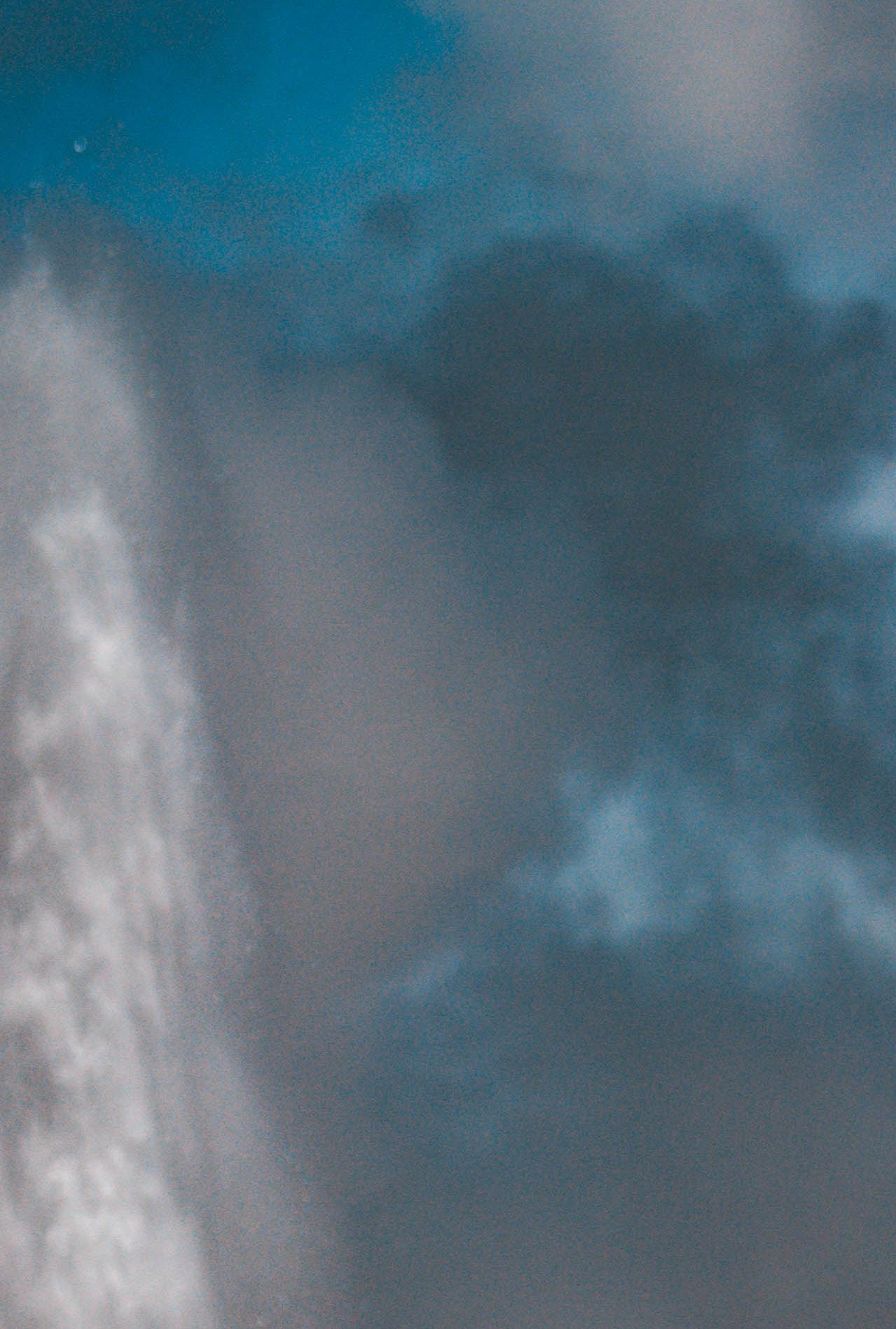
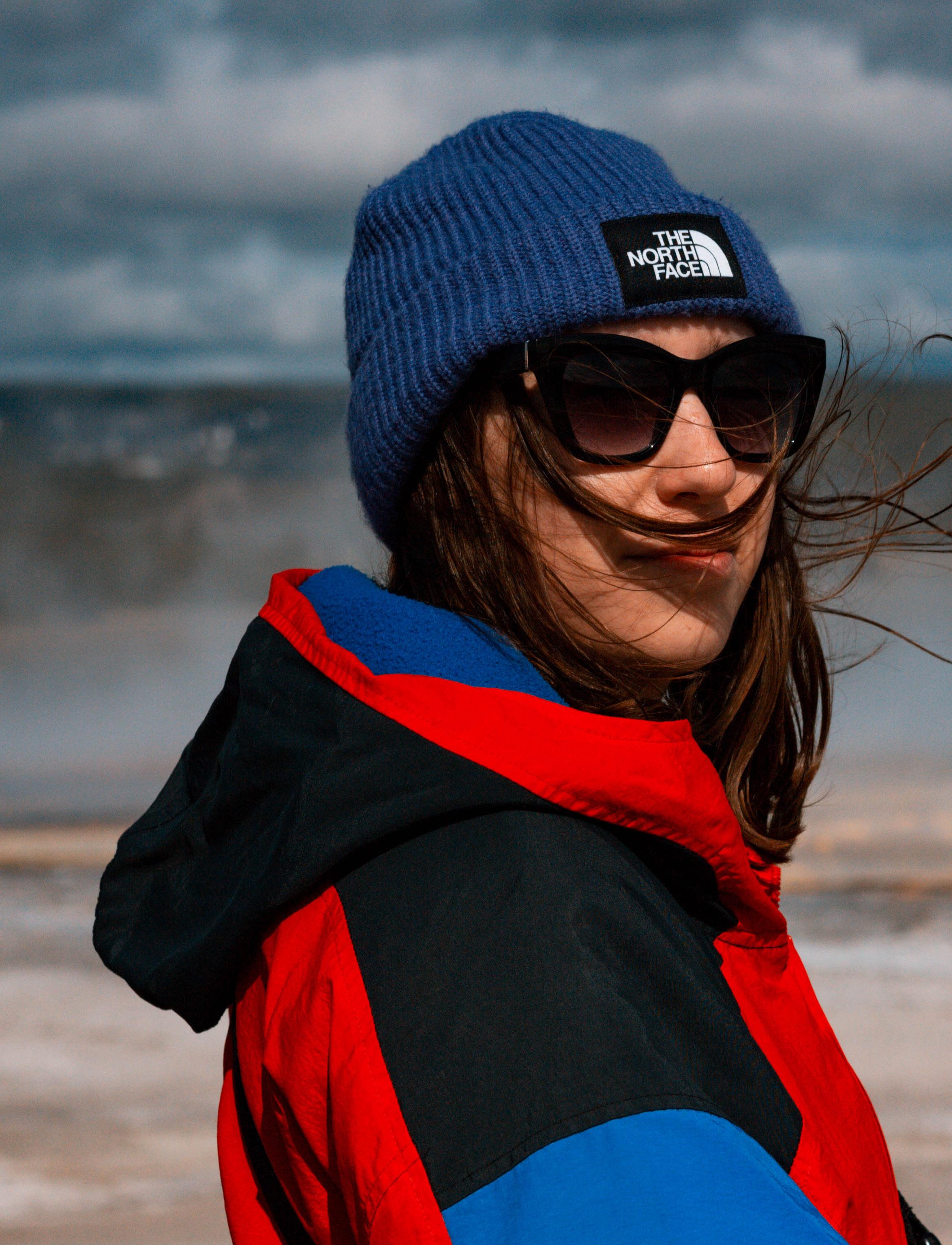

twice over
by Sage Kubis
mid-april: we dig a grave for the cat in the backyard and the earth is so heavy, so clay filled, stuck to the bottom of my boots. your digging boots, she says, digging boots, i say, we laugh, everything is empty and quiet and the sun shines and the radio plays from the house they’re building on the corner and we bury the cat with one hand touching the towel she’s wrapped in so gently and i say This Is Just Her Earth Body, Right, and she says yes but we both stand still and wait. the knees of my jeans are wet..
there comes a point in any major revelation where you stop frolicking in the change and start seeing it for the reality of what it will be, which is to say once the novelty of kissing girls wore off i texted my mother and asked if my grandfather would have still loved me if he were still alive, given that now i’m gay. i do this while i cook eggs and i almost don’t want to ask because it seems trivial and who is she to answer for the dead but she says Of Course and i have nothing else to do but believe it’s true because how is he ever going to tell me otherwise?
loss is disconcerting in its emptiness, by which i mean the spaces left behind are by far the worst. i spend three days thinking at any minute the cat will slink up from the space beneath the coffee table, from under my bed, an elaborate game of hide and seek is all this ever was, that grave we dug was nothing but a tribute, Surprise! Here I Am Please Hold Me. when i visit my grandmother, i think i see him too: we walk in the backfield that’s overgrown since he left us and amongst the weeds i’m sure he’s walking too, maybe hidden
39 | Issue 4
19| Issue 5
by the grass chest-high, smoking his pipe, watching the tree line for deer. i touch the grass with open hands and think if he were here, he would be so disappointed in this.
i don’t remember either of them dying, like my head turned off to see the end, but i do remember the heft of the towel, wow she’s so heavy when she’s dead. my grandmother holding the tupperware full of ashes out to me in the backyard, me turning away. i don’t want to hold what’s left of a living body in my hands, grit seeping under my nails. i would have felt like i was consuming him for days. it isn’t until the cat dies six years later that i understand the closure of the weight of ashes in your palm, spreading them into the garden now neglected, everyone in a scattered ring watching clouds roll in over naked pear trees, jovial in our discomfort and unwillingness to settle in the somber situation. the days after too quiet, adjusting to the space. i don’t believe in god, but i hope they’re in a heaven. i plant flowers and hope he’s watching. both of them, pieces of my heart, shaking their heads while i tear apart the garden.
Winter | 20
characteristics of our charism
by Sage Kubis
1. places and times of silence
across town, someone plays a fiddle on their porch. the wind that smells like summer brings it to me where i sit, high on the porch, holding myself. it is languid, lush, being held in the womb of the sky like this. i think i should say thank you somehow, acknowledge the taste of this being more than i probably deserve. i toy with praying, hold the concept in my hands like water: what if i talked and someone listened? what would it feel like to be heard?
2. cloister appropriate to our life
i pull my knees to my chest in the bath. water rushes into my ears and brings a heartbeat. i loll on my back like a lily pad, endless and silent and so heavy in the still. i wonder what my body looks like from above, in this position. to be a woman feels like two: there is the me in the bathtub, naked and alone, and there is the me floating above and also inside who is saying your knees are too dark. your stomach falls to one side as you lay this way. do you know the left side of your face is more beautiful and as you age the right will get worse? girls don’t look this way. girls who deserve love don’t look this way. look at your flesh. don’t you hate it?
3. wearing of the religious habit
pull clothes clean from the dryer. dog hair lint rolled in a ball goes on the dining room table to be forgotten, thrown away days later. folding clothes feels like slogging through mud. i put on mismatched socks and lay down on the floor. i think about love and i think about creation and i think about the stomach it takes to have confidence in your creation. i think about my mother at 40, four kids in, wearing her own dirty clothes. i pic-
21 | Issue 5
ture God shaping Adam gently, lovingly, not even entirely sure what a body should look like. shaping Adam’s shoulders, knees, stomach, his wet hands with clay sliding slippery down slopes, the intimacy of birth. did He feel the life as it came? i rest my hands on my own stomach. i imagine a child there, under the skin. i think ofhow many miles of arms you must have to give love to all the people you could create. i think about the way my mother had the arms but never thought about the time it takes to extend the love all the way to the end of them, to hold them out long enough for us to feel something, to stay long enough to feel safe. the exhaustion of the constant requirements the human mouth needs is omnipresent. a mother plays God to a house of just-dry clay babies. to play God tastes so sweet. to create is an immense responsibility. my god was my mother. my mother doesn’t believe in God.
4. living community life
red wine on wednesdays on a sticky little patio, dog hair and wet picnic tables and leftover heat lamps from the winter stained with cigarette smoke and rain. i open my mouth to say something but what comes out instead is God, let me be loved by these people. let me see them in front of me and open my insides to scrutiny and let them embrace it with open arms. God, let me say things that will reach down their throats and touch their stomachs, warm them from all the way in there. God God God let me let me let me this is all about me i am hungry like a child i expect these things in return for bringing me here in this place where my skin is never comfortable in this place where my body is something to be learned. my mouth stains and i laugh along and i wonder what my own face looks like from their side of the table. i hold God inside me like a lit match and he burns my throat and pours down my back and sweat droplets cool in his wake, my hair sticking wet to my shoulders. i obsess over unconditional love and i obsess over acceptance especially acceptance from men and i obsess over men, they say men have vagina envy but what i wouldn’t give to close every hole in my body and be the one doing the penetrating, when i picture myself as god i picture myself man because then i could take and take and take and never want for permission to devour whatever i wanted, whole.
Summer | 12
Winter | 22
by Harris PlesKovitch
didn’t have to unfold it to know what it said. “Be Our Guest Chili’s® $10,” stamped “©2014”’ 2014. That was five years prior but felt like a lifetime ago. My chest felt hollow. My hands were steady and my eyes were dull. “I should be feeling more,” I thought. “I should be crying. Open mouthed, ugly crying that leaves you with a headache. Why the hell am I not crying?” I hated myself for not being sad. I hated myself for not feeling angry. I hated myself for not feeling fragile and raw. So, I sat, and I stared, and I willed the tears to come.


23 | Issue 5
I’d gotten the coupon during my junior year of high school. It was early in the morning, about 7:35, but I’d been there since 6:40. The building was decently heated, but every time a bus pulled in, the doors would open and let in the cold fall air. The halls were clogged with students making conversation as they moved towards their first classes. Brannon and I stood along the outskirts of the hallway, out of the way. His hair was messy and he wore his signature purple hoodie.

“You want a coupon to Chili’s?” he asked. “It’s been in my wallet forever.”
I’d loved Chili’s. My family would go once every couple of months when we went out to eat. Maybe I’d be able to get something a little extra with the money saved from the coupon. The thought of a brownie a la mode made my mouth water.
“Does it have an expiration date?” I wondered. It didn’t. Brannon handed me the thick, two and a half by seven-inch slip of paper. It was folded crookedly, its uneven lines bothering me. But the one-minute warning bell rang so instead of fixing it I slid it into my own wallet, thanked him, and left.
The coupon stayed there for a few months, forgotten. How many times did my family sit in a Chili’s booth while the coupon sat in my wallet? Waiting to be used? Eventually it was tossed onto my cluttered dresser to collect dust.
Brannon and I drifted. He shaved his head, I dyed mine. I cut ties with most of that friend group after they let a toxic girl back into the circle. Really, I was angry that Brannon started talking to her again after everything she dragged him through.
I got a new routine, a new best friend, and it wasn’t until a couple months into senior year that Brannon and I began to talk again. On my end, it was right back to “she’s a little sister to me” and “he’s like a brother.” I didn’t realize it at first, but this time I was simply a means to an end. Brannon was interested in my best friend. He was “too short” for her and when he started to realize he didn’t have a chance, we started
Winter | 24
It was folded in half and then in half again, but the tattered edges didn’t quite line up. It was crooked—not at all how I would have folded it. And yet, I didn’t have to unfold it to know what it said. “Be Our Guest Chili’s® $10,” stamped “©2014”


25 | Issue 5
to drift again. We only talked one more time between classes and he was spewing his usual nihilist bullshit. I wanted to be a bit more hopeful for the future.
“I’m trying to find the things worth living for, you know?” I asked him.
“Why?” he asked. “What’s the point?” He’d almost sounded offended.
“Because-”

The bell cut me off and he disappeared into the crowd.
I didn’t chase him.
Winter break came and went. The second half of the school year started as usual. It was the end of the day, a few days into our first week back when the halls were nearly empty. A friend and I were walking in silence. It wasn’t an uncomfortable or heavy silence, but the kind that comes with familiarity.
“I never really talked to him,” he began, “but I’m sorry about your friend.”
My heart dropped. Brannon.
I felt like I’d just been slammed into a brick wall. My heart pounded in my chest and echoed in my ears. I don’t know how I knew, but I did.
I prayed I was wrong and asked, “What do you mean?” I was numb during the car ride home. The rest of the day was filled with forced smiles and small talk with family. I considered bringing it up. But what would I say? How would they react? Would my brother’s enthusiasm for his current school project simmer out? How many questions would my mom ask? Would I even be able to handle those questions?
“How was your day?” My mother asked me.
“It was fine. I got a B on my German test.”
Winter | 26
The coupon still sat on my dresser, a thin layer of dust over it. The edges were more tattered than when I’d gotten it and a tear ran halfway down the center folding. How many times had I looked past it? Reached over it? Shuffled it around with the rest of the clutter?
What’s the point? His words replayed in my head. What’s the point? Finally, the dam broke. A sob escaped my throat and my hands flew to my mouth. “Keep quiet” I thought. “Pull yourself together.” But the tears flowed nonetheless.

I was angry with him. Furious that he’d succeeded this time. He was supposed to be graduating early. He was weeks away from getting out. From leaving this shitshow behind. He’d been weeks away from starting the job he’d dreamed of since childhood.

As angry as I was with him, I was angrier with myself. If he went, I’d go too. I didn’t want to keep the promise anymore and I felt guilty for it. Why had I not chased him that day in the hall? Told him the point of it all? But I hadn’t really known, and if I had, he wouldn’t have wanted to listen. Carefully, I moved the coupon to my bookshelf, stacked with other mementos.
Most of all, I was heartbroken. I’d abandoned my brother and in return he’d abandoned me.
That night I had a dream that I was walking through my neighborhood. I walked up and down familiar streets, looking for something, but I wasn’t sure what. Brannon called my name and I turned around. He was smiling. It’d been a long time since I’d seen him really smile.
“What are you doing?” he asked.
“Looking for you,” I realized.
He smiled again and assured me he was there. He wrapped an arm around my shoulders and we started walking again.
I woke up crying. Knowing he hadn’t truly abandoned me, that I was just collateral damage.
27 | Issue 5
I buried myself in school work, distracted myself with a new romantic relationship, and piled on extra shifts at McDonald’s. Whatever filled my time so I didn’t have to think about Brannon being gone. And after a while, it began to work. He didn’t fill my every waking thought. Sometimes I would go days without thinking about him. Most of the time, I was ok.
Nighttime wasn’t always so forgiving. After everyone else had fallen asleep, I’d be up. My clock would show 2 a.m. and Brannon would slip back into my thoughts. I’d mull over the girl that broke his heart. Why couldn’t I have just forgiven him for becoming friends with her again? Why did I allow my anger to drive a wedge between us? Why didn’t I stop him when he asked me that dreaded question? Why? Why? Why?
Tears would flow more often than not. My head and throat would ache from trying to keep my sobs quiet. Why? What’s the point? I’d come up with hundreds of answers for him. None of them quite right, all of them too little too late.
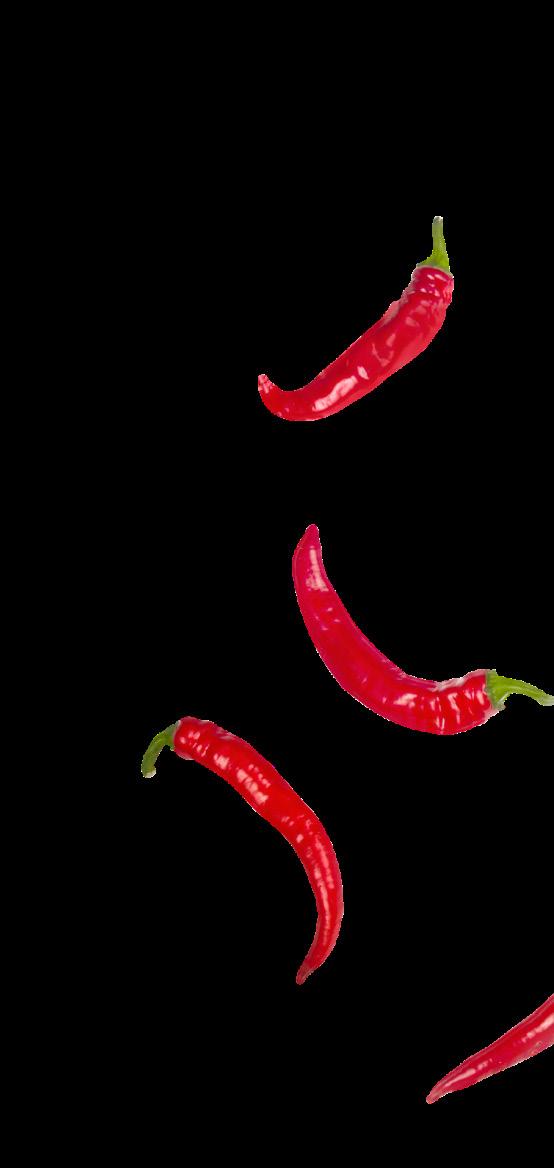

Two years after Brannon, Grandma passed. My mother and I made the long drive back to Illinois. It was a bleak winter; it seemed like every day there was a new record low. It was also Uncle Andy’s record low. He’d been the baby of the family, a Mama’s boy. He’d been the one to stay behind and take care of her in her old age. He’d been the one beside her at the hospital bed. The one who took the interstate as fast as his car could go to make sure she wasn’t surrounded by strangers in her final moments.
A blanket of snow covered the fields surrounding the church. The funeral procession went quickly and lowering Grandma into the ground went quicker. Everyone was eager to get out of the icy cold.
I went to heat up the car and Uncle Andy followed shortly after. His eyes were red and swollen, his beard unkempt, and his coat a size too big. We sat in silence for a minute. As much as he wanted to properly honor Grandma, I think he wanted to leave the cemetery more. I think he was thankful for the cold.
Winter | 28
“It won’t ever be ok,” I told him. “But one day it’ll be more ok. Not today, not tomorrow, not even a few months from now. But one day. And it’ll keep getting more ok. And one day you’ll wake up and it won’t hurt all the time. You just gotta hold out for that day.”
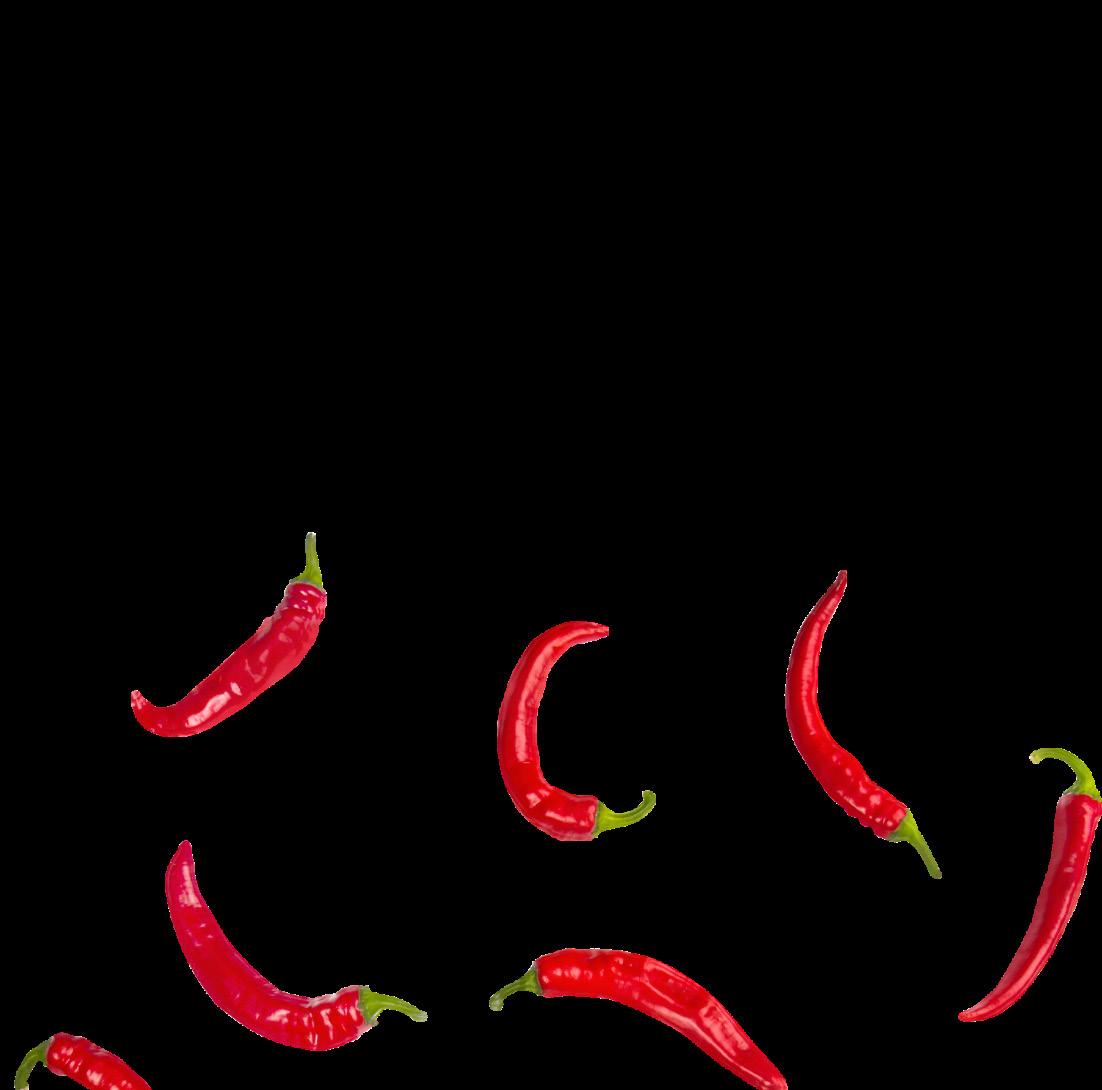

He asked me when I’d gotten so grown up.
My thoughts drifted to Brannon. Some days, I didn’t
creator of NYC Book Hoes

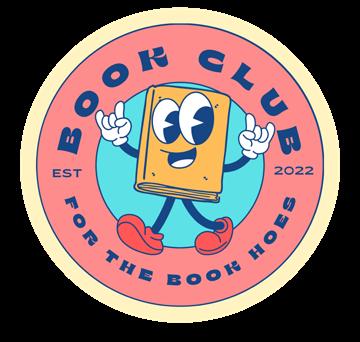
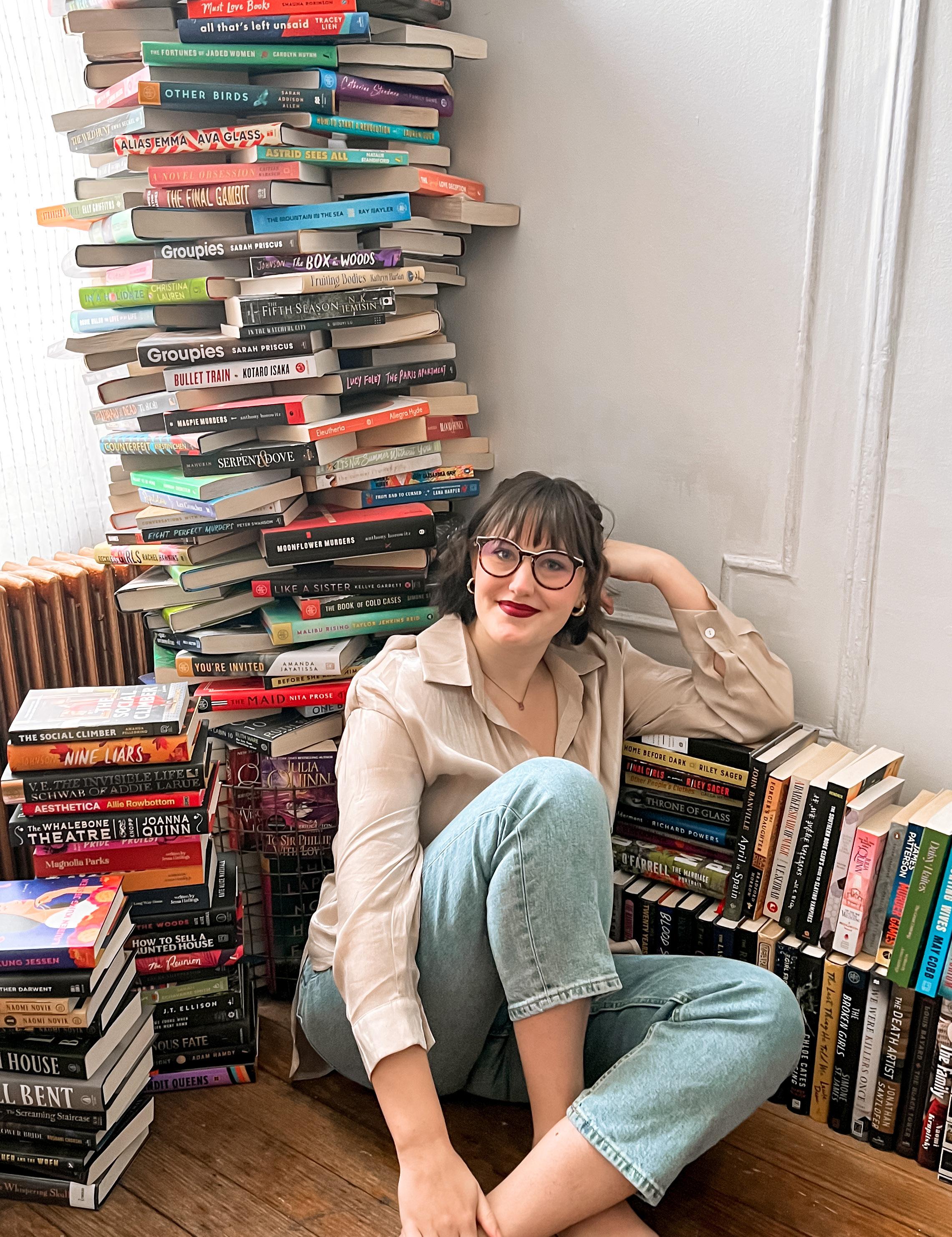 In Conversation with Zoë Mahler
In Conversation with Zoë Mahler
Jasmine Ferrufino: Before NYC Book Hoes became NYC Book Hoes, you were making videos on TikTok with the iconic intro, “Hello, my fellow book hoes,” as you went all over NYC trying to visit all the bookstores. I would love to hear why you started these videos? What inspired it and if you imagined it growing at the speed that it did?
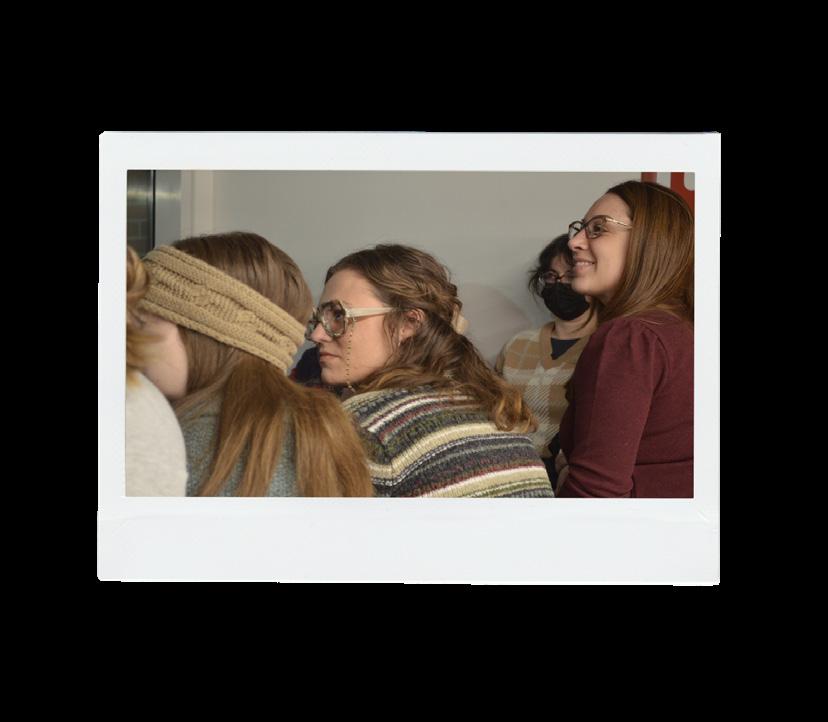

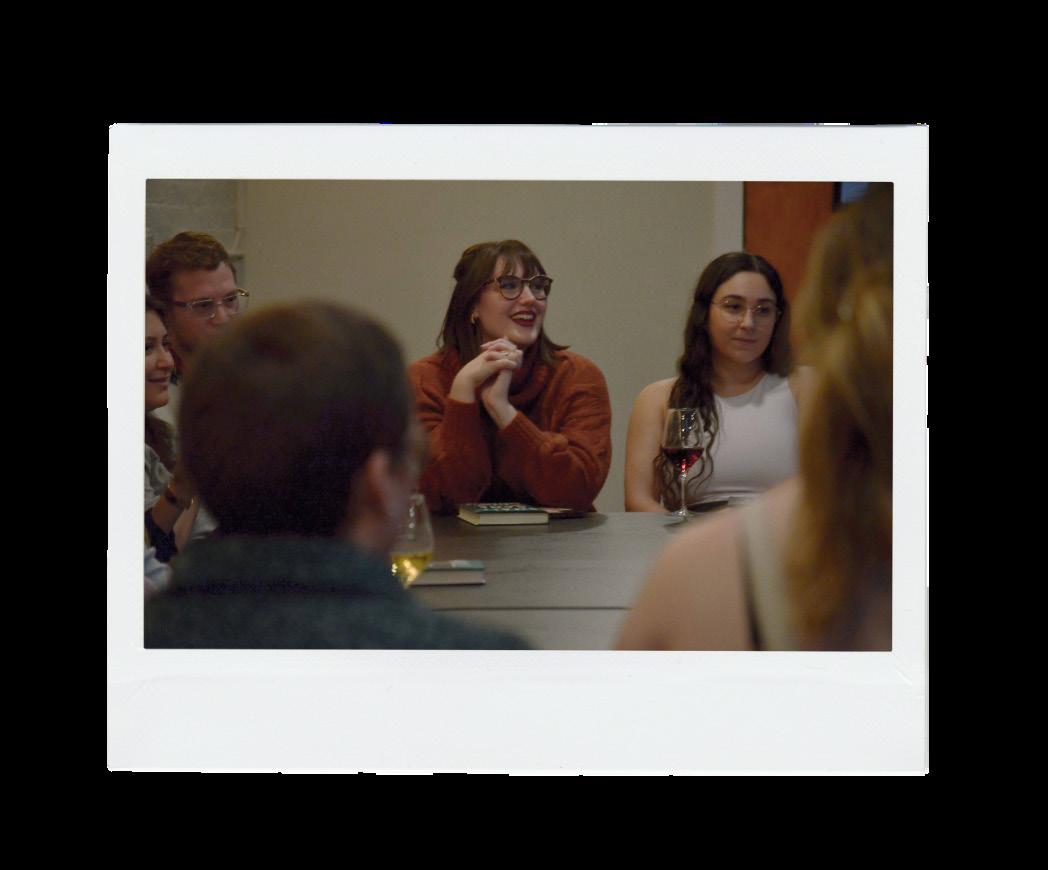
Zoë Mahler: No, I mean, obviously, I had no idea. I started the account because one of my friends lived out of state. And when she came and visited, we hit six bookstores in the time that she was here. And she was like, oh, I’d love to see all these bookstores and explore them. I liked the idea of seeing everything. I was in grad school at the time, so I needed a reason to get out of the apartment other than school, and I also had been living in the city for a good amount of time, but I didn’t feel like with COVID and everything that I had been able to explore and, you know, see a lot of places. So it was a good excuse to leave the apartment and have a place to go. And then I could explore as I went along the way.

When it came to TikTok, I had already visited around 20 bookstores before I started the account. I started it for my friends, thinking it was a private account because I didn’t know how to run TikTok whatsoever. I made a funny little intro that I was like, Oh, she’ll find this hilarious. The first video that I did was the Strand or McNally Jackson because many people already know those, and I figured, why not start strong with the ones she had already seen? And then it blew up. Like, I was not an ticipating it at all. It got hundreds of thousands of views and I panicked and deleted the app, thinking it would delete my account. It did not.
I was planning on putting it on private because I already had, at that time, 3000 just from those few videos, and that was way more than I would ever handle. I panicked, and my friend said, No, I think you should keep doing it.

31 | Issue 5
And see where it goes. I am not one to put my face on the Internet and say, “This is what you should read,” or “These are my thoughts on these books.” I thought it would still be fun to research different bookstores and explore those, and then it wasn’t until two Lower East Side book crawls ago, a random girl approached me and said, I love your TikToks. I saw you. I just wanted to say hi. And I again immediately panicked. I shut down. I was incredibly awkward, but I got her information, of course. And then it wasn’t until a few hours later that I messaged her like, “I’m so sorry.That was so incredibly awkward,” and now we’re best friends. So it spanned from, oh, people are actually watching. She had found out about the book crawl both through me and from, you know, starting to follow bookstores as well.
JF: As I mentioned in the first question, NYC Book Hoes has grown, and you are now consistently hosting 5 different book clubs, doing book mixers, and now author events. What made you want to gear your audience and yourself towards event planning & what do you see as the future for Book Hoes?


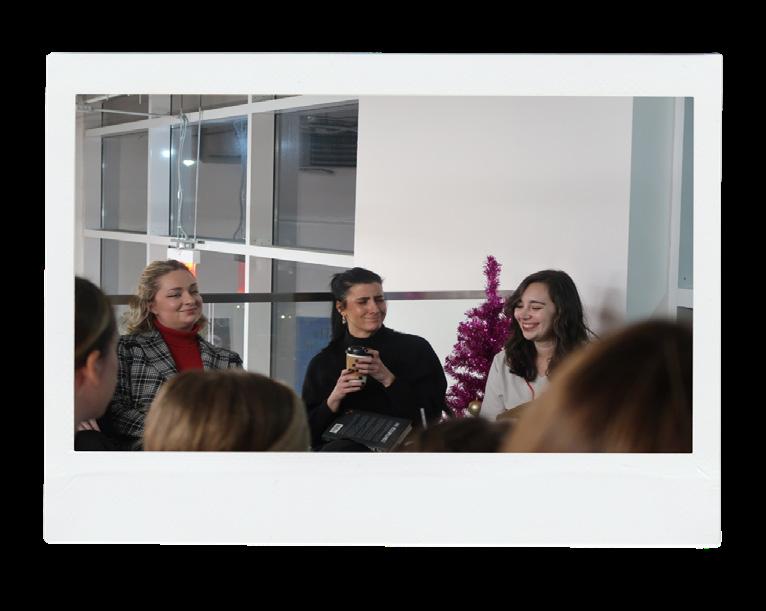
ZM: It wasn’t something that I planned on doing more than like once a month type of thing. I joined a book club at the bookstore, Book Club, and I loved it. And it was the first time I had put myself out there to meet people. I got there early. I saw that the chairs were in a circle. I panicked, and I left. And then I talked myself into going back. I ended up having a really good time. And now I’ve been going for five or so months. It was the first meeting they had in a long time, like it was their first official meeting, and so that was a really special moment for me, being Oh man, I wish that this had been here a long time ago. When I first moved here, I wished that I had something like this because I made friends there, and it was something to read. As the summer hit, I finished grad school. Honestly, it’s going to sound really

Winter | 32
lame, but I was feeling incredibly lonely. Like I would get up, and I would go to work, and then I would come home, and I would stop at bookstores, and I would eat food, and that was it.
I started to get this idea that I wanted to create a book club because I started attending a few different book events at different bookstores, and I loved seeing all the people there. And so I began to, and I was like, let’s meet in the park. It’ll be super chill. I made one video, I had 40 tickets for two book clubs, and they both sold out immediately. It was such a good time. I met a lot of people who were saying the same thing, like, “Oh, I moved to the city a week ago,” and other people were saying that they had been here five plus years, and it was like the perfect thing for them to get back into meeting people. So those two book clubs were the beginning of it.
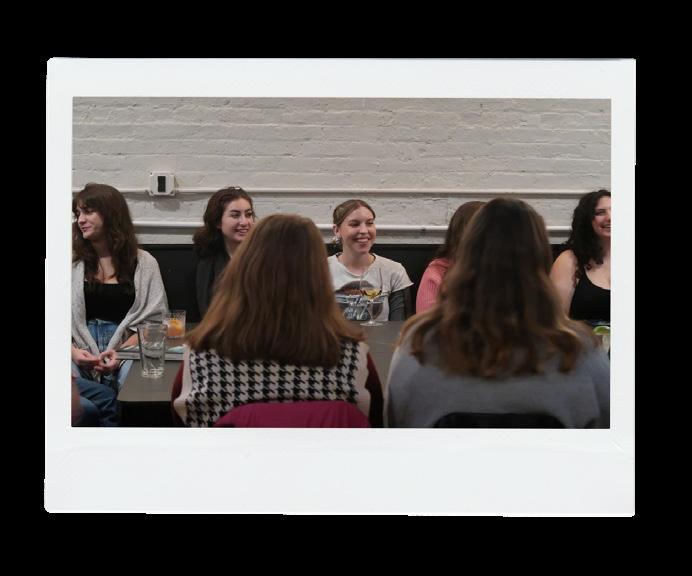

The first event that we did was a book exchange and a trivia night. We had maybe 40 people, probably 30. It was fun. We went to the Center for Fiction Literary Happy Hour that they used to have. Then we did a book exchange right before Thanksgiving, like a week or so before. I put a video on TikTok instead of just reaching out to all the people who are already in the book club. I thought there were already so many amazing people at the book club, but it would be great to
to bring in more people and provide people with an opportunity to chat and discuss. And that blew up way out of proportion from what I expected. We sold 170 tickets, and I had never had to cap an event before because I’d never experienced more than 30 people. And so I woke up the following day; I had to call the bar and ask, What is your capacity? Because I’m starting to wonder if we’ve passed it. And they said, You’re good, just don’t sell anymore. It’s just wild to me that people keep coming back, and just the veracity that some people read.
JF: I noticed that your book selection had been geared toward debut books & authors and more unknown books; I would love to hear more about your process in selecting your monthly book club reads.

33 | Issue 5
ZM: And once again, that’s a really embarrassing answer. I am an insomniac. I probably sleep 2ish hours a night. I spend a lot of time on book blogs and reading about what’s coming out and what people are interested in. And it’s hilarious because one of the things I started at the beginning of last year was Book of the Month for the first time. It was like my Christmas gift to myself. Not that I didn’t have access to a million books with all the bookstores surrounding us, but I found a blog that would try and predict what the next month’s books would be, and it would go into debut books. They could be nonfiction and fiction and whatnot. And I became fascinated with authors who I had never heard of or like people who were just putting their first book out there into the world. That concept was so fascinating to me because I realized that I was reading a lot of authors that I just already knew.
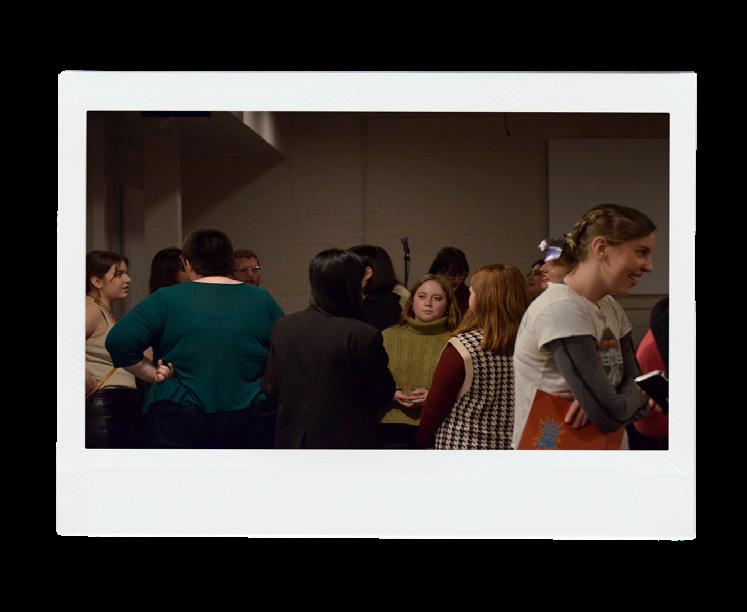

And so it was a happy accident because there were two books that I wanted to read over the summer, and that was a book called Groupies by Sarah Priscus. And then How to Be Eaten by Maria Adelmann, and both of them were debut novels. And the conversation that came out of that was intriguing because these are people who have loved reading and have their favorite authors, and they know what they like. And so, reading something new where you have yet to learn what the style will be, you don’t know what they will lean towards with plot and characters, and you’re surprised every time you read. It’s new every single time. And so that became the norm.
Also, debut authors are so accessible. We just had a conversation last night with Nikki Payne, who wrote Pride and Protest. I tagged her in one Instagram post, and she immediately said, I will talk to you guys. I would love to hear everything you have to say. If any of your writers, I’d love to talk about the debut process. In the middle of this conversation, I was like, Who is letting me do this? I have no right to be interviewing this fabulous author. Like, this is insane to me. But it’s like a fun way to know that every time you go in, you never know what you’ll get. BookTok has a very curated playlist. And for someone who is on TikTok, I don’t watch a lot of content. I hear a lot about it, though, from people in book club or whenever I coerce a bookseller at a bookshop into talking to me.
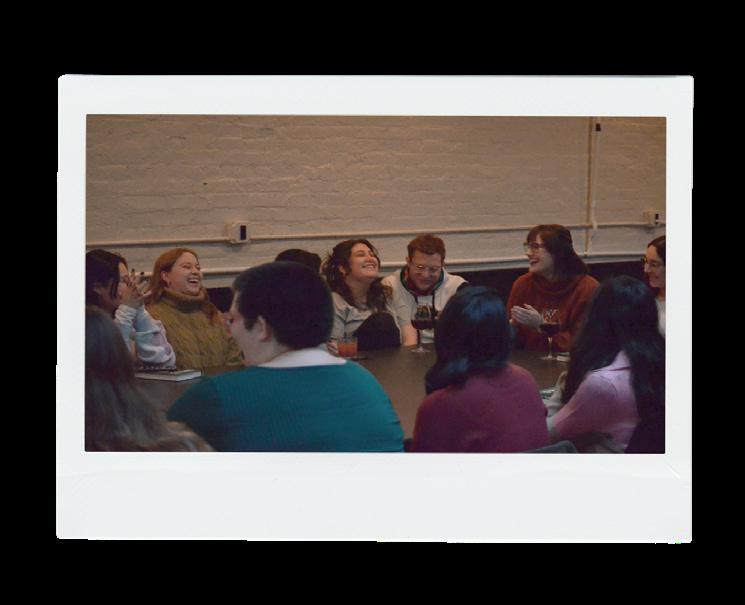
Winter | 34
I met a lot of people who were saying the same thing, like, Oh, I moved to the city a week ago, and other people were saying that they had been here five plus years, and it was like the perfect thing for them to get back into meeting people.



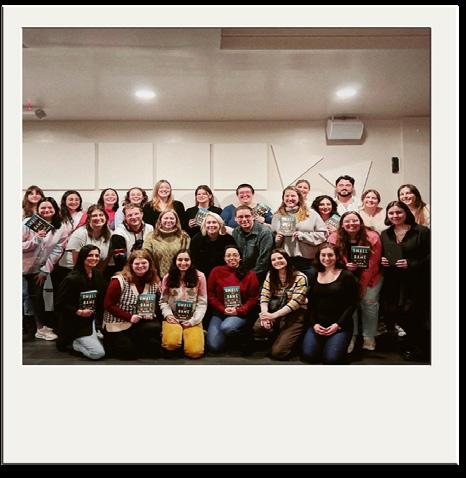

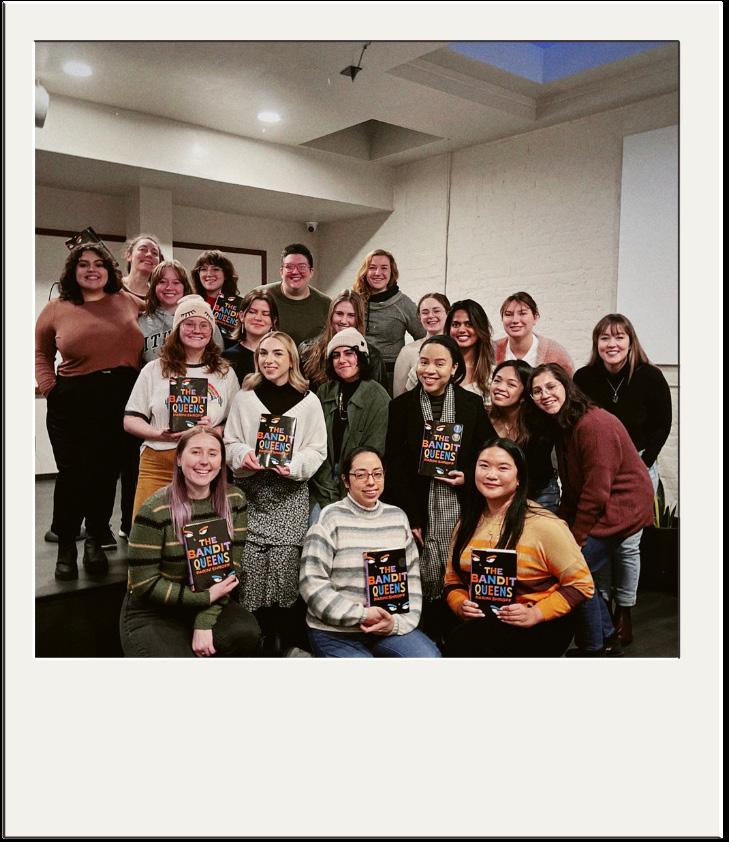
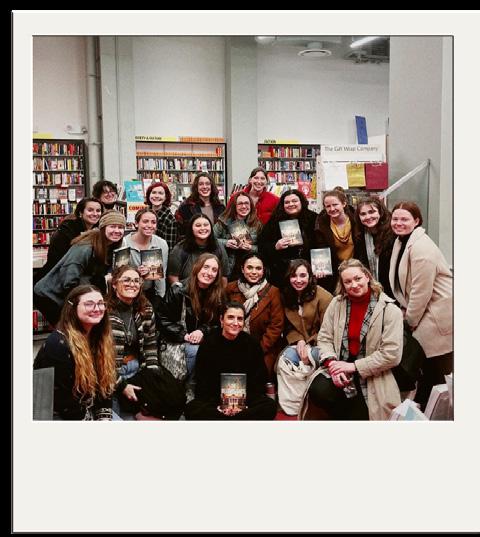

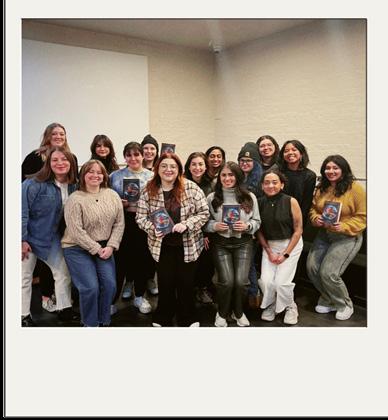
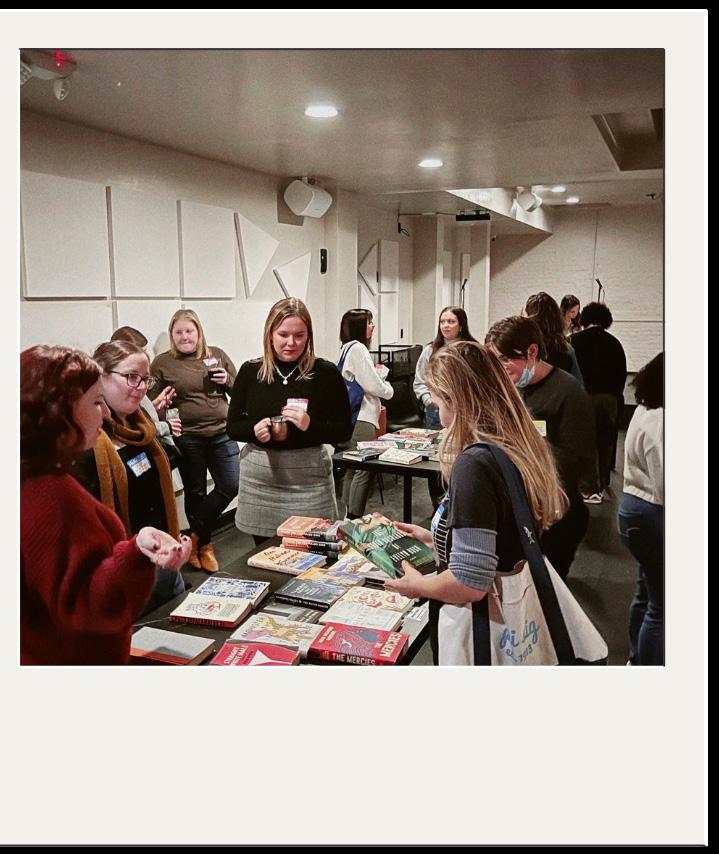

I was not anticipating it at all. It got hundreds of thousands of views and I panicked and deleted the app, thinking it would delete my account. It did not.
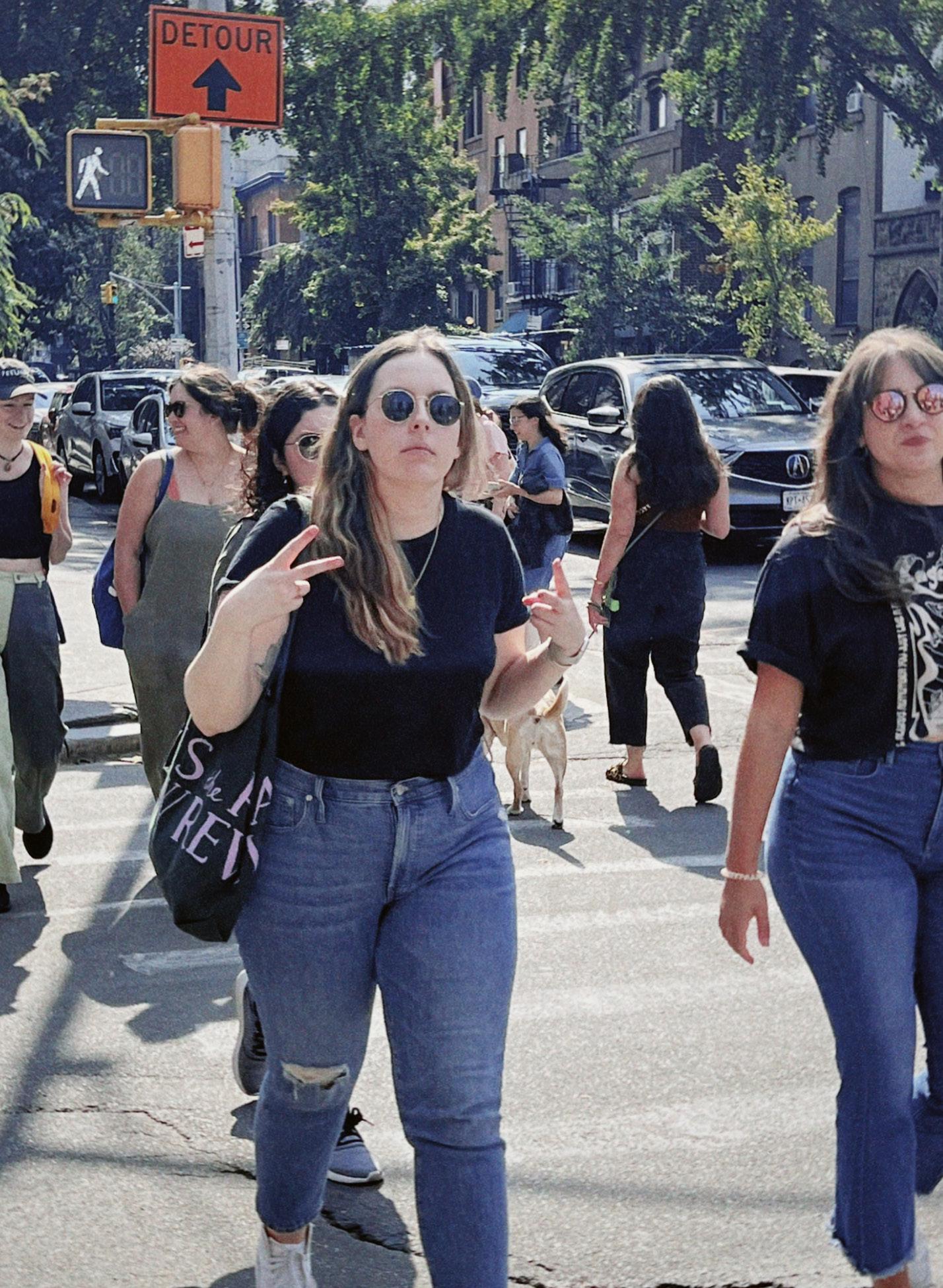
It’s always the same stuff, one might call it the Colleen Hoover effect, but honestly, it’s just perpetuated by the same authors over and over again. I didn’t want anybody to feel deterred from attending book club. I wanted everyone to be on a similar playing field when we arrive. Like, this is the first time we’re all reading this author. So it’s been really exciting to see the new things that come out.

JF: You have been running this account since 2021, hosting events since 2022. There must be many great moments, funny dynamics, and hiccups that occurred. Is there anything experience that you associate with NYC Book Hoes? or an event or moment you are truly proud of that came from NYC Book Hoes?

ZM: I’m not a very sentimental person, and I’m incredibly hard on myself. So every single time we have a meeting or anything, I go, that was fine. People might have had a good time. And as I’ve gotten closer to people who are in the book club, they know to text me afterwards and go, I had A great time.
The moment I was moved to tears was the mixer in November when we had 125 people for a book exchange. I set up different tables based on genre so people could drop off their books and take whatever they wanted. We had people come from New Jersey and a girl who came from Connecticut. I was so surprised by how hungry people were for that event. At one point, I had to give a speech, which was terrifying. On the way up, I had two people hand me drinks to make it up there. I slipped into this weird psychosis where I got up there, and I was like, Hello, my fellow, book hoes, and like, there was cheering. And I was like, All right, who’s letting me do this once again? I tried to talk to as many people as possible that night, and I ran out of time. It was supposed to go from 7 to 9, and I didn’t leave until 12:30. But that was a turning point. I think many people realized that it was accessible and available to them.
I tried to start a book club when I was in fourth grade, I invited my whole family, and they were not into it. They did not want to do it. And I had this weird trauma from that. So when I started the first book club and I saw the person walk over I was like, Oh my gosh. Like, it’s actually going to happen. Even if it’s just one person, you know? And whenever people talk about past book clubs in a current book club where they’re like, Oh, do you remember when we were reading this, and we talked about this? That makes me feel emotional because people are connecting to memory and experience, which is exciting. And at our core, we’re all just like a hoe for a good book looking for friendship.
Winter | 36
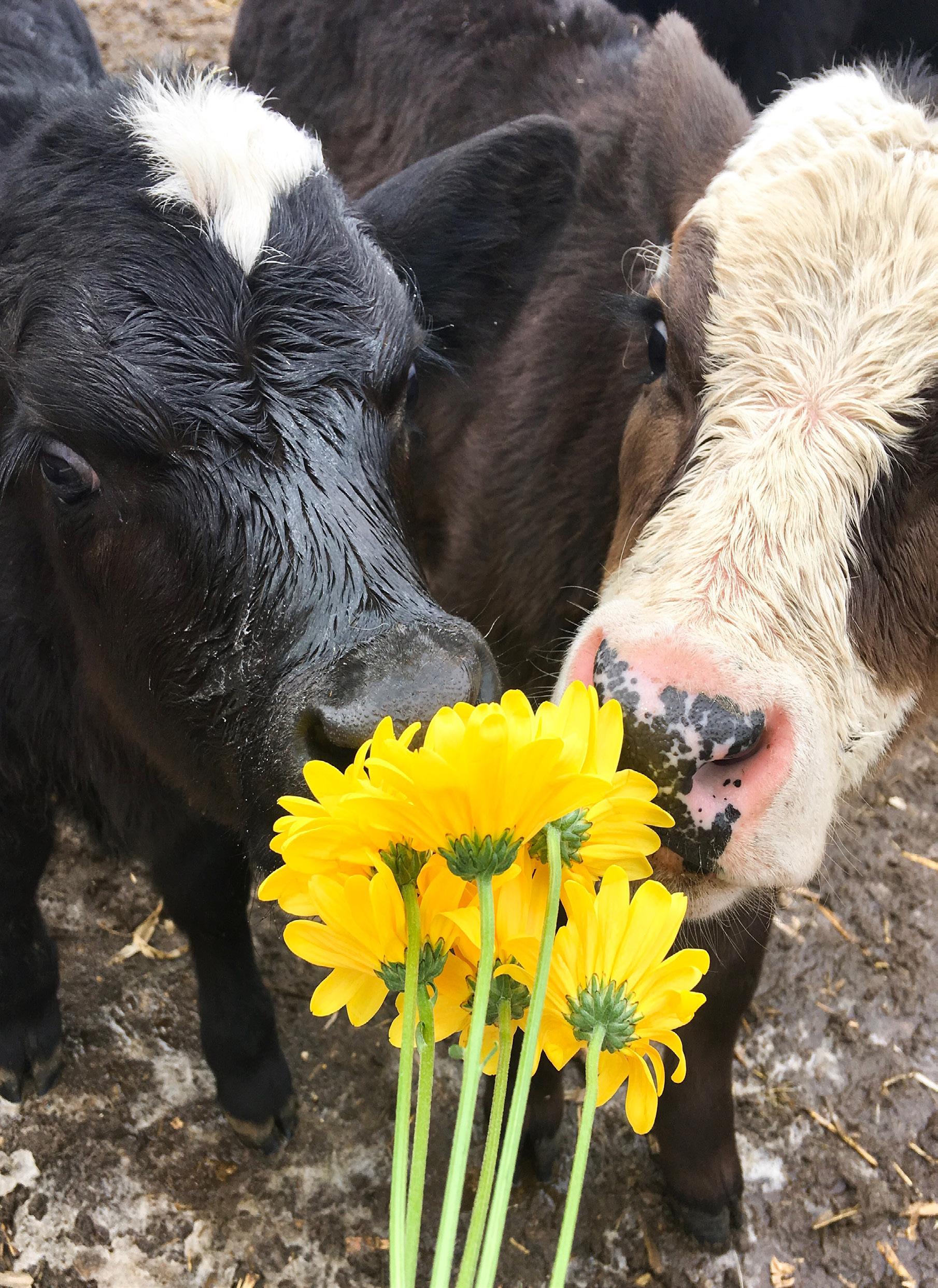

How to Be Catfished over AIM at Age 14
by Erica Hoffmeister
My first—and only—AIM screenname was created after meticulous thought, after my mom yelled at me a half-dozen times from the kitchen to the den, the one place the desktop computer could be plugged into our landline phone jack. We bought our computer out of a catalog that summer. The summer my grandma died, her death lingering on the shower chair my mother would sponge-bathe her on and in the corners of the paperback mystery novels I’d read to her on our back porch. After she died, I moved back into my own room, after sharing with my sister who was seven years my junior, her room wallpapered floor to ceiling with ancient puke-pink floral, a closet with as many fist-shaped holes through the back of the drywall that it took for me to balance the color out.
It was early fall of the year 2000. New millennium, new me. We had already survived Y2K—the global, technological meltdown that never happened. We had survived freshman year and our first season of formal dances—I wore the backless red dress, tied tight across winged shoulder blades, when polyester dresses and Japanese-print clutches filled rented ballrooms two towns over, our stomachs full of grill-marked, thawed-out steak from a big night out at Steer n’ Stein, not a single date on our minds under hairsprayed glitter barrettes and mom-crafted updos, our hands and arms catching desert-dust in fistfuls out of the limo sunroof. It was a small town. One road in, one road out.
I needed my AIM screenname to be cool, but not obvious. Not give away the hours it took thinking of some

39 | Issue 5
obscure pop culture reference—one unique enough to not need the add-on numbers at the end to distinguish me from the other high school girls with the same ideas. Nothing like my email account, blink182goddess86@Hotmail.com, that would give me away at the first ping of a digital door swinging open. Sitting there at that huge, tacky, particleboard desk, I at last decided on a movie reference. Boiler Room was a relatively recent, obscure enough movie starring early-aught hotties Giovanni Ribisi and Vin Diesel. A film set in New York City—of course—the center of the world on the opposite coast, where people were sophisticated and ambitious and knew things. It was what adulthood was supposed to be like, according to movies like this. What our future held, according to adults like this.
My screenname had just enough letters to complete and check the little box, transform my body through Y2K into adolescence, into adulthood, by transporting my existence across digital planes and through dial-up cables that my mom let me hog only before dinner, before someone might call in emergency. Before emergencies were ever that urgent, no more than making sure dinner was on the table in time for my dad to get home in heavy, concrete crusted work boots. Before homework was at least half completed, before The WB Channel 5 aired my favorite TV show on Tuesday nights, speckled with commercial interruptions, with snack and pee breaks. With enough time to hear that AOL dial-up ringtone just past bedtime to check if anyone left me a response to an equally meticulously crafted Away Message—lyrics riddled with sexual innuendos that I didn’t exactly understand the meaning of.
There was this boy, and of course, he was a popular boy, or this story wouldn’t exist. No stories would, not in the year 2000, anyway. I was letting the hot top ramen noodles bathe in cold puddles of fast-melting ice, to lasso around my tongue in opposing temperatures before I swallowed them whole, then pull each noodle out from my open throat like a sword-swallower. A disgusting habit, a party trick before I knew what party trick and open throat and swallow meant in certain contexts. I was always eating top ramen because
Winter | 40
On this particularly hot, September evening, I signed onto my newAIM screenname: whitecollarcrmnl. It was hot, because it was always hot after our air conditioner blew out the first summer we moved to that little desert valley, and every year thereafter would be scored with box fans pushing orange blossom scent through tangible heat.

41 | Issue 5
we were working class, but as a teenager in a small, suburban town full of comfortably middle-class kids, we just felt poor, because there was a lot of us, and there wasn’t something in our kitchen called a snack cabinet. Just rows of bulk ramen and bowls of cereal that I’d fill and snap a Tupperware lid onto and hide around the house so by Wednesdays, I was the only one that still had breakfast and laughed when my siblings had to finish their week in the free breakfast line in the school cafeteria. I was too busy pretending to be not poor, pretending we didn’t just have internet because I collected all those free AOL Trial CDs, pretended that we didn’t buy our whole computer delivered in a big box—the Encarta CD-ROM collection included—with the money from my grandma’s death, pretended I wasn’t equally excited about reading a digital encyclopedia as much as I was to chat with kids from school on AIM.
On this particularly hot, September evening, I signed onto my new AIM screenname: whitecollarcrmnl. It was hot, because it was always hot after our air conditioner blew out the first summer we moved to that little desert valley, and every year thereafter would be scored with box fans pushing orange blossom scent through tangible heat. That small town that I naively helped my mom convince our family to move to because I had watched Now and Then too many times and thought I’d be spending my summer afternoons riding around on bicycles with pudding balloons in my bra listening to oldies and jumping into reservoirs. That was a fantasy that never conceptualized. Instead, it was triple digits in September, and we had an outdated intercom system and an outdated central air conditioner in that outdated town that we now affectionately describe with the phrase it used to be. And it did—it used to be this way.
I checked to see who was online as a digital door sounded open. It was the sound of potential popularity, of secret notes that could appear and disappear and not be handed to the wrong boy in class, not be intercepted by a teacher, like that time in French class Madame Burke made me read those things Craig B. said about my tan lines showing and made me blush in places I wasn’t ready for. There was no handwriting,
Winter | 42
no pen of choice to tie me to anything. That was the magic of how internet used to be—it was like disappearing ink. Nothing lasted. No digital footprint, whatever that meant. Nothing followed us to school the next day. Nothing was real, we weren’t real, basically nonexistent. The internet then: anonymous.
I remember the boy’s real name, but not his screen name. I remember him sending Hi and then me sending back Hi. He was popular and I was pretending at everything. He was pretending at being a nice boy in return. This was my first lesson with popular boys. With boys in general, now that the millennium was new, that my body was new. Now that I was also learning how to pretend not to care.
I chatted with this nice, popular boy in one-to-twoword messages about Chemistry class, about our teacher who was known to wear tinfoil hats to keep the aliens from sucking out his thoughts, about how shitty it felt to be getting my first ever D because I couldn’t balance the pretending, and the not caring, and the memorizing obscure directors from my VHS rental collection to seem too cool, and the hiding cereal bowls from my brothers, and the avoiding yelling at my dad who was just starting to drink several cases of beer a day again after that very, very brief moment when we thought he had stopped, and the going to Youth Group on Wednesday nights and Sunday mornings and Sunday nights and Friday nights to avoid him, and the yelling, and my brothers, and the yelling, and my mom, and the yelling, and how nice it was to just have the sound of the little pings of our messages after the whole world went to sleep.
And eventually, he said: can I have your email address and I thought: no, no way, blink182goddess86@Hotmail will give it all away. But I had already given it all away. So, we emailed. We didn’t make eye contact in Chemistry class the next day. He was nice and popular and so, he sat in the front. He was probably getting an A. I sat in the back, being too cool, directly in front of the cute, stoner kid who reminded me of my dad with his long, blonde surfer hair and squinted, red eyes. The stoner was more my type, I knew deep inside, but I was busy pretending to be a good girl.
43 | Issue 5
By the end of the week, there was a surprise waiting for me on that bubbled monitor screen that sat in the corner of our faux den with the fireplace no one never really needs in the half-desert, half-valley of Southern California. The fireplace my dad hated because he was a bricklayer by trade, and a really good one, and the previous owners decided to paint over all that precious brick, that damn hard work, with hideous, glopping white paint. Waiting for me in the computer corner beside the sliding glass windows that looked on to a cement patio where my half-dozen younger siblings played and ignored me, under the fruit trees when our backyard was still filled with fruit trees, before the drought, before all the yelling, was a response to my Away Message:
- Do you want to go to the dance with me next Friday?
- It’s the Sadie Hawkins…I am supposed to ask you.
- Well, do you want to ask me to the dance next Friday?
- Yeah, OK. …Do you want to go to the dance with me next Friday?
Nothing. Because then, you could spend all day and all night saying nothing and there was nothing you could do about it. Every digital door could swing closed, and then it was just you, and the loud, slow hum of a tower modem for days at a time.
After the long, quiet weekend, after I cleaned out my ramen stash, after I avoided the nice, popular boy’s eyes all Monday morning during Chemistry class, I got home and checked my Hotmail account.
Why would anyone want to go to the dance with you?
You’re just a big-tittied hoe. That’s the only reason anyone even talks to you. HE was never emailing you. It was S— and D— the whole time, you dumb, big-tittied hoe.
Winter | 44
I loved Now and Then more than any other. I played the VHS until the ribbon wore out, as many times as it’d make me feel dirty for how Devon Sawa and Christina Ricci made me feel in equal measures, in the parts I was taught I wasn’t supposed to feel anything. I didn’t tape down my boobs with anything but my elbows. They seemed to grow overnight that summer before sophomore year, making themselves known during swim sessions every afternoon for summer school P.E. My young step-grandma was pretending to be cool so she bought me my first bikini: bright orange with bright blue piping and a white nylon little turtle with the phrase Speed Kills before I could understand the joke, before I knew my boobs would fill in the triangles and that skimpy little string bikini would define puberty for me forever, my high school reputation forever, categorize me as something other than myself. Because I didn’t want to be Teeny, I wanted to be Roberta. But now they were all just staring at my fucking boobs all the time. I guess that’s what we wanted boys to do. What we were supposed to want them to do. I guess I really was a big-tittied hoe.
I printed out the email. We were out of black ink because we were always out of black ink, and so the text shone in lime green, half-toned dots. Holding the fresh paper in my hands, I knew it was real, what had happened. I held it like a postmarked letter, like a war-torn love letter, like something I could rip up and burn and watch turn to ash into the Santa Ana winds and never speak of again. I handed it to my best friend at school the next day. I said, I’m not going to the dance. I said, I’m going to delete my AIM account. I tried not to cry. I was too cool to care. Because I also knew, by then, that big-tittied hoe was also code for hot girl, but I didn’t want to pretend to want to be either. She said, those guys are assholes. She said, let’s just go to the dance together.
For the two years that followed, until those not-nice popular boys graduated high school, left our half-desert, half-valley town for fraternity parties full of big-tittied hoes and party tricks, before my teenaged body was written into the Senior Will–a contraband document composed by the departing seniors to bequest items to the remaining student body, the curves of my body a gift, an inheritance–not once,
45 | Issue 5
but twice, for being not-taped-down in a way I was supposed to take as a compliment, that I should be flattered by the catcalls and the dirty notes, my best friend called those boys assholes to their faces every time she passed them in the school hallways. We didn’t have to pretend who they were any longer. I scrubbed out the white-out penises drawn on her locker in return. Asshole. Asshole. We never spoke their real names again. When I packed the boxes that would cram my dorm on the East Coast, I traded my neon string bikini for something black, something badass, something new to pretend to be. Unplug the modem, become someone else entirely.
Winter | 46
I Won’t Be That Person
by Sarah Elizabeth Grace
SETTING: An apartment in a major metropolitan city. October 2020.
CHARACTERS
SAM: femme, early 30’s. Openly queer and non-monogamous.
ANNIE: femme, early 40’s. Married to Matt. Closeted.
Playwright’s note: Please have an intimacy coordinator, or at least practice the modalities of intimacy coordination, while blocking this play.
SETTING: An apartment. Early evening, October 2020. There is a kitchen and living room, and doors that lead to a bathroom, bedroom, and front door. The living room has a couch.
AT RISE: Lights are off. No one is home. Then, an explosive opening of the front door.
SAM, a woman in her thirties, bursts through the door, breathless. She flips on the lights. Burning up, she strips off her jacket and shirt, and tries to catch her breath in her bra. She has a tattoo on her ribs.
She rushes to the sink (or grabs a bottled water from the fridge, whatever’s easier for production) and gulps down water.
Hydrated, she steadies her breath. Then, she looks at her phone.
SAM Shit. Shit shit shit shit. 47 | Issue 5
One minute!
She rips out some make-up from her purse and frantically puts it on her face by looking in her blush’s compact mirror. She is battling her face sweat, smoothing out her hair, and desperately trying to look presentable.
Suddenly, there’s a knock on the door.
SAM (cont)
She dabs her sweaty torso with paper towels before throwing on her shirt again. She grimaces as the shirt is still soaked in sweat.
She takes a big breath and opens the door.
ANNIE, early forties, stands in the doorway, smiling. She’s holding a bike helmet and has a backpack on her shoulder.
ANNIE (playful)
Hellooooooo.
They kiss. Then Sam motions for Annie to come in.
ANNIE (cont)
This is so great! I didn’t expect to see you for…well, at least a couple days. I thought you and Chelsea were on vacation til tomorrow?
Annie sets her backpack and helmet down and takes off her shoes as she talks. While she does this, Sam stares at her with a flurry of different feelings she’s trying to hide.
Winter | 48
ANNIE (cont)
I got so lucky with the bike share stations this time. I’m gonna keep riding here as long as there’s no snow on the ground. Fastest way to get to you! Ok. (she’s done dumping her stuff) Hi, babe.
Annie kisses Sam hard.
ANNIE (cont)
I missed you.
SAM (almost teary)
You’re so beautiful, Annie. God, I love you.
ANNIE (touched but also a little concerned)
Sam! I — I love you, too. Are we — are we back to saying that now?
SAM
You can say anything you want. There are no limits tonight. Except for your curfew, I assume.
ANNIE
Oh, yah, I should set a timer. I said I was “going to the climbing gym” so I should leave in like…an hour and a half?
Annie opens her phone to set a timer. As she does, Sam presses herself against Annie’s back, wrapping her arms around Annie and kissing her neck.
SAM (intoxicated)
God, I forgot how you smelled.
ANNIE (laughing)
I biked for forty minutes! You’re sweaty, too!
SAM
No, no, you smell incredible.
49 | Issue 5
Sam voraciously kisses Annie on the lips. She starts to grope Annie, who loves it. Sam is undressing and kissing her body as Annie talks. They’re still in the kitchen.
ANNIE
I have to admit…I was so sad last time, after we saw each other. I respect your boundaries, but the thought of not having this for weeks…it was going to be hard. It’s selfish, but I never want this to stop.
SAM
No off-ramping today, baby. Full steam ahead. Sam puts a hand in Annie’s underwear, warming Annie up for an orgasm.
ANNIE
(losing control)
Babe, babe, let’s go to the couch at least!
They kiss their way to the couch, Annie laying back and Sam on top. Annie takes off Sam’s shirt, still kissing her throughout the process. Sam quickly hops off the couch to takeoff her pants. With the pants off, a tattoo on her thigh is revealed. Sam starts to climb on Annie again, but Annie, seeing the tattoos on Sam’s ribs and leg, sits up and away from Sam.
ANNIE
(indicating the tattoos)
…what are those?
Sam freezes.
SAM
Would you believe me if I said I got them on my trip?
ANNIE
They don’t look new.
Winter | 50
Sam gives Annie a blanket, which is draped over the couch, and starts to pace.
SAM
Ya know, I had to do so much to make this happen. I must’ve had some shitty blinders on, trying to make it here, all in one piece. Because it wasn’t easy. It’s exhausting, in fact.
…our situation?
Time travel.
Very funny, Sam.
You saw the tattoos. I’m not the Sam you know. I’m from 2022.
Ok, well, if that’s true, how the fuck do we go from a global pandemic to having time travel?
SAM
We have a limited amount of time together. You want me to eat that up by explaining it?
Sam continues talking as she gets her purse from the kitchen. She also retrieves the water she drank earlier.
SAM (cont)
One of the agreements with time travel is that anyone we interact with has to take this pill. When you fall asleep, it essentially gives you a “blackout drunk” experience. You’ll forget we ever met up. Any information I give you is useless.
ANNIE (putting it together)
And the timeline stays clean.
ANNIE
SAM
ANNIE
SAM
ANNIE
51 | Issue 5
Sam takes the pill out of her purse and sets it down with the water on the nearby coffee table.
SAM
Right. You’ll also forget the rest of tonight, too. Sorry about that. Might have to rewatch whatever TV you fall asleep to.
Annie nods, wrapping herself up in the blanket a little more. She processes this, then:
ANNIE
Oh my god…do I die? Am I dead when you are?
SAM
I promise you’re alive and healthy, Annie. And so is your husband.
Annie takes in that slight.
ANNIE
And you? You’re ok?
SAM
I’m here, aren’t I? I mean, shit, time travel is fucking exhausting, but you know me. I’m a textbook strong female character. I’ll sleep it off when I get back.
Annie hasn’t seen Sam this world-weary.
ANNIE
What happens, Sam? SAM
That’s how you want to spend this?
ANNIE
My lover just time-traveled here and won’t tell me why. That doesn’t exactly make me wet.
Sam’s face crumples.
SAM
I’m sorry. ANNIE
No! No, no, no. C’mere. Come under here. Tell me under here.
Winter | 52
Annie opens the blanket and makes room on the couch for Sam. Sam shuffles over and becomes Annie’s little spoon, and Annie wraps both of them up in the blanket.
SAM
I just wanted to be with you. When you loved me so much. When things were at its easiest.
ANNIE
You’re shaking.
I never thought I’d see you again.
SAM
ANNIE
God, Sam, you…you love me so much.
SAM (looking at her)
Of course I do.
ANNIE
You now — the 2020 you — I know you like your other partner more. And I understand why. Chelsea is openly non monogamous, like you. She can have you over. Me…I was trying to backdoor our relationship into something legit, but I ran into road blocks. I never thought Matt would turn down the chance to open up our relationship. You didn’t want an affair. So when you asked to “off-ramp” last week — to space out seeing each other, to stop saying “I love you”, to not be so demanding of nudes — I got it. I’d change.
SAM
Annie, you don’t want to change.
Annie shakes her head. She kisses Sam. Sam starts to cry.
ANNIE
The off-ramp?
53 | Issue 5
It lasts two weeks. ANNIE
Oh. SAM
Then I break up with Chelsea before Thanksgiving.
ANNIE
Oh? SAM
Things get intense after that. We see each other all the time, for months. It’s like a fairy tale.
Sam looks away, ashamed to feel so vulnerable. Annie pets Sam’s hair.
ANNIE
That’s what I want, Sam. I love you.
Sam is still not looking at Annie. SAM
You get a dog in March. I realize you’ll never leave him. I break up with you in May, after everyone’s been vaccinated and the world feels like it’s finally real again. ANNIE
…oh. SAM
It felt right. I had some dignity. We thought we could even grow into friends, somehow. We’d be soulmates in our own way. And if it wasn’t sexual so be it. It would be hard, but it was worth it to us. ANNIE
Another off-ramp.
SAM
Winter | 54
SAM
Then you found out you’re pregnant.
Annie is blindsided.
SAM (cont)
Yah, you gave IVF one more shot. Before our break-up. You didn’t tell me.
ANNIE
We tried to get pregnant for years before I met you. Nothing ever happened!
SAM
You say it just like that, too! Takes you months to admit it wasn’t a natural accident but a planned baby Hail Mary. ANNIE
Is the baby ok?
Annie thinks about it. She’s very conflicted.
SAM
She’s great. ANNIE (encouraged)
So you know her? SAM
Not at all. ANNIE
Oh. SAM
You and I try to be friends in the first trimester. But then Matt won’t touch you. And I desperately want to. And you need me so terribly. And you were so beautiful. I fall back into you. And the next five months are the most intense time of all. I’m secretly joining you for walks, coming over when Matt’s out, right up to the week you deliver. Then it ends.
55 | Issue 5
Why would I stay with Matt?
Annie sits up.
ANNIE
Sam sits up, not expecting this.
Annie gets up from the couch, starts putting on clothes as she thinks out-loud:
ANNIE (cont)
He barely has sex with me as it is. And then to wrap me up into some sort of Madonna cocoon when I’m pregnant? I don’t like the sound of those gender roles. And Sam, god, I would love to start a life with you. I’d give anything…(a beat) What did you do? SAM
What did I do?! ANNIE
I would never let you go. You must’ve chickened out. Or Chelsea came back. Or you fell in love with someone with less baggage. But if you had promised to be there for me, for the baby, I would be here, with you, forever. Forever, Sam. Sam stares at her like she’s a ghost.
Sam stares at her like she’s a ghost. SAM
You know what I do? I betray myself. Again and again. Because you never leave. You can’t leave his enthusiasm for fatherhood. His nearby family. His six figure salary—-
ANNIE (cutting off)
That doesn’t matter!
Sam dresses as a means to avoid eye contact as she talks:
Winter | 56
SAM
It will! You’ll get scared. Your impending family life feels inevitable and inescapable. Everyone is sending you baby stuff, organizing meal trains, throwing you showers. None of this includes me. I’m a secret. Still. Certainly not close enough on paper to include me in any of this.
ANNIE
Sam, I couldn’t do that to you! I love you more than anyone!
SAM
Instead of walking away, I tell you I’ll take the scraps. “I’ll take you for as long as I can.” I chop off pieces of myself and offer them to you like the fucking Giving Tree. Because the idea of losing you feels worse than death.
Annie sits on the floor.
ANNIE
No one has ever loved me like that.
Sam takes the pill and the water bottle off the coffee table.
SAM
I’d have been a great step-mom.
ANNIE
I thought you didn’t want kids.
SAM
You changed everything I wanted.
Sam sits next to Annie, still holding the pill and water.
ANNIE
I can’t believe I become the type of person who’d walk away from you.
SAM
You don’t. I had to do it. Almost killed me.
ANNIE
I’m awful.
57 | Issue 5
I wouldn’t be here if you were. ANNIE
I will be awful. SAM
You will…be you. In those circumstances. ANNIE
Don’t make me take the pill. I can fix this. I’ll do whatever it takes. SAM
You’re supposed to take the pill.
And break your heart? SAM
You don’t just break my heart. You almost break me, entirely. ANNIE
Fuck. What the fuck is wrong with me? SAM
Annie, I broke my own heart, too. ANNIE
How can you kiss me, let alone look at me, after everything that’s happened?
SAM
You haven’t done it yet, babe.
She touches Annie’s face.
SAM (cont)
I came here because I missed you. It’s been over a year.
ANNIE
I know, in your present, I’m missing you, too.
SAM
ANNIE
Winter | 58
Sam nods, knowing it’s true, and then offers the pill and water to Annie. She sips the water and takes the pill.
ANNIE (cont)
I’m doing this to follow the rules. But I — I’ll force my unconscious to make this better. Somehow. I love you more than I’ve loved anyone. I won’t turn into someone who’d hurt you. I won’t be that person.
Sam knows this is impossible.
How much time do we have?
Annie looks at her phone.
Over an hour.
Will you kiss me? ANNIE Yes.
Annie kisses her.
Will you make love to me? ANNIE
Yes.
Tell me how much you love me.
Annie takes off Sam’s shirt, and then her own. They make out and desperately touch each other, trying to cover every last inch of one another’s flesh as they continue: SAM
SAM
ANNIE
SAM
SAM
59 | Issue 5
ANNIE
I love you, Sam. I don’t know what I’d do without you. I’m myself when I’m with you. Nothing is more real than us, right now, together…
They start to make love. The lights fade.
SAM
Tell me you’ll save us.
ANNIE
I will, Sam. I’ll remember. I’ll save us. I’ll be brave. I’ll be yours. We can have it all, babe.
Blackout.
END OF PLAY
Winter | 60
when Houston becomes Venice
by Stephanie Holden
The first time the roads became rivers fear had not yet met my trembling lips.
My art teacher standing in the parking lot of my middle school told me to turn around and go home. There was water in the chapel. The stained glass had shattered
in the storm. The first time my house became an island we went to stay with my
grandparents on the other side of town. My uncle in his new pickup truck
drove two hours on a highway turned to mud to bring us a generator for the refrigerator.
I wanted to use it on the TV but the TV only showed more water.
The first time the city became swamp school started again before the neighborhood regained power. My principle sweating through his suit pretended we were explorers discovering the streets for the first time. We wore rainboots to recess. We wondered where the dragonflies had gone.
61 | Issue 5
Debris by Carolyn Martin
foggy morning on I-205 and orange vests black bags pickers gloves unpack themselves from the sheriff’s van a groggy crew sentenced to harvesting coffee cups clamshells cigarette butts soda cans the waste of lives uncontrolled uncontrollable
*
asks a clueless cop why do you vandalize read headlines she mumbled to stained cinder blocks hers not graffiti strokes nor metaphors hers real plastic islands splayed above distraught ocean waves no need to defend or explain indictments was all she needed to say
*
somewhere in a New Jersey landfill vestiges of my mother’s life keepsakes from Poland Egypt France Greece packs of holy cards rosary beads a plastic Joseph without his Mary a button from her husband’s Navy uniform memories he came home safe and stayed *
my uncle the junk man wound his truck through neighborhoods bells rung for metal scraps recycled for the crippled kids housed outside of town decades late frost bite from a Black Forest stint did his legs in a double amputee a six-pack kept him company *
snips of poetry scattered on shopping lists bank receipts and pads from every charity asking for more the weight of waves the smell of sweat and loneliness the speed of rush the length of dark tricked into guilt not always so unwasted words safe waiting for a home
Winter | 62
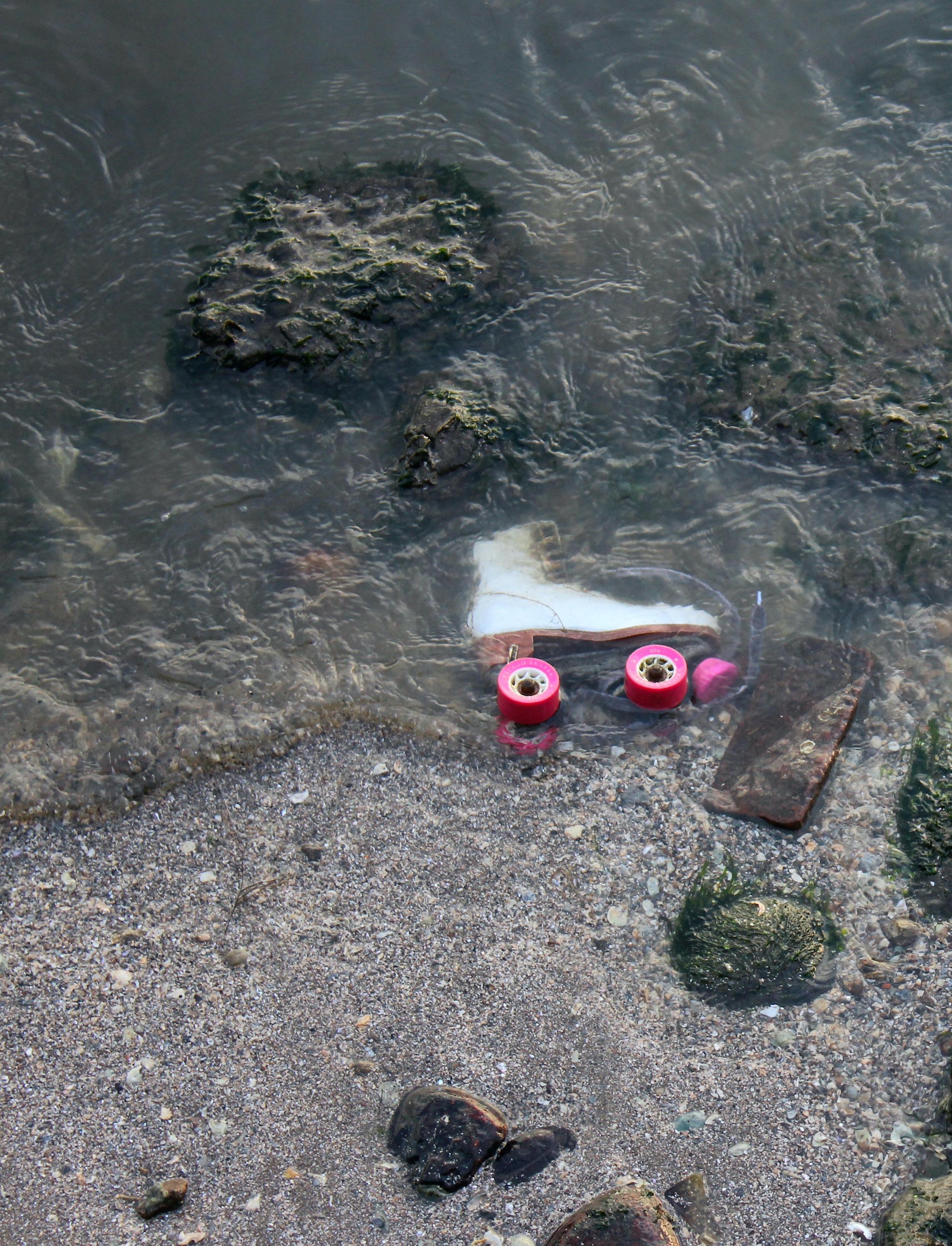

On Eggshells
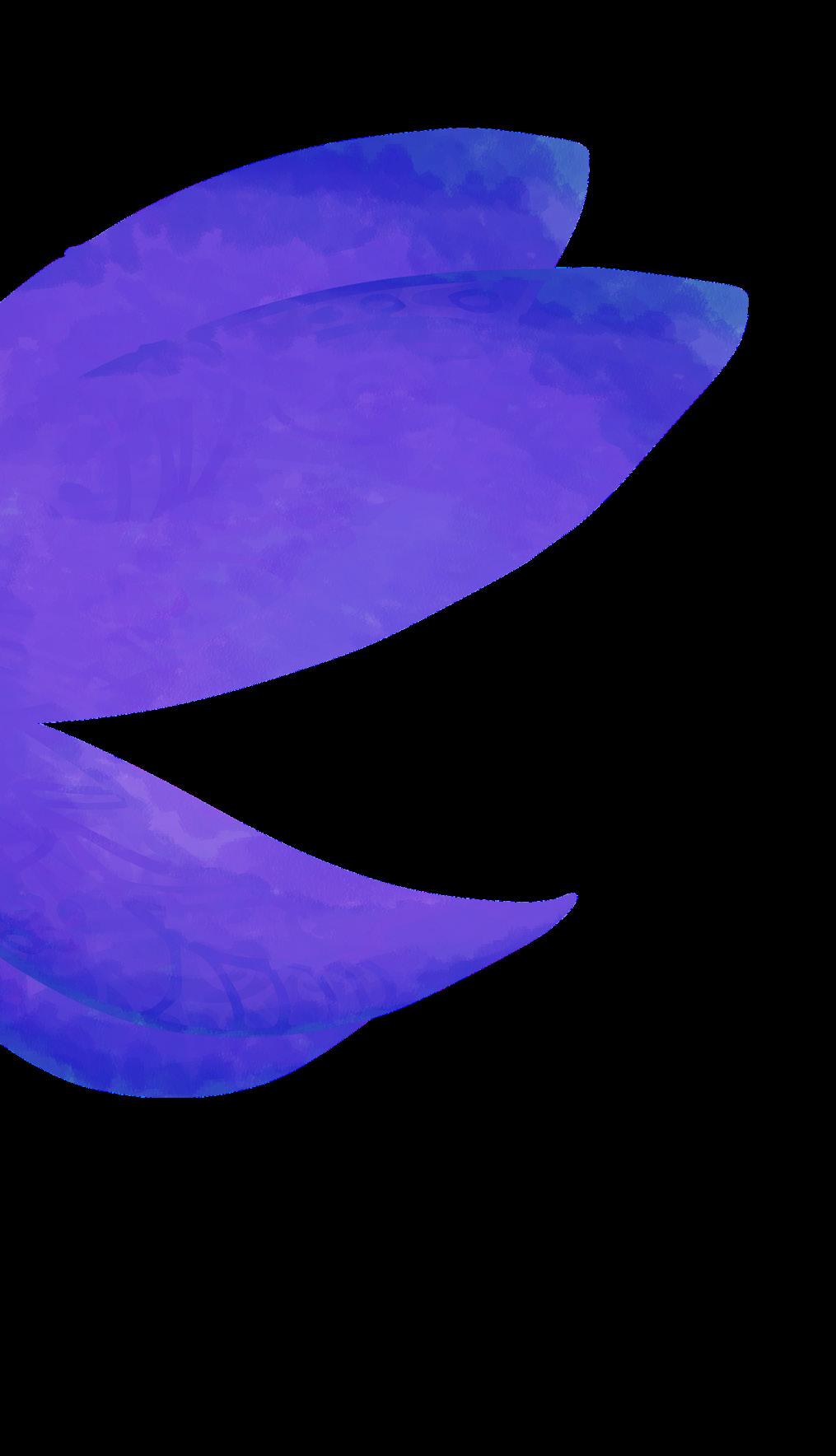
Audrey Carroll
She should have been at peace, or else delirious with joy, as she stared out at the miracle that was her child. Instead, Maya stood at the counter with her shoulders tensed, distracted from the cutting board despite the fact that one unintended shift in the wrong direction could have serious and bloody consequences. The white lace curtains filtered the scene in the yard, making it seem gentle and delicate. Her mother-in-law sat on the patio, out of Maya’s eyeshot, but she was keeping watch. Elysia’s little legs dangled from her tutu as she perched on one of the plastic swings that Maya had personally pieced together. Elysia’s head hung as she wobbled to and fro. Wisps of hair moved freely along her rounded face. The girl was barely out of toddlerhood, and the melancholic curve of her back made Maya’s heart ache.
Maya cleared her throat, lowering her gaze to the fruit she was chopping for brunch. She dared to reach forward, not caring about the possibility of staining the lace with citrus as she tugged it to the side. Then she cracked the window open, too, fresh air rushing in. Viscous sweat clung to her forehead and along her spine; it was especially warm for a spring day. Guilt weighed heavy in her gut for making Elysia wear such a thick jacket. She had to protect her daughter, though, no matter how much it pulled at her heartstrings, no matter how much she wanted to abandon all social norms and let her daughter finally be free.
There was a knock at the door; Maya recognized the cadence and the strong scent of heather. It was too early for heather to grow, of course, but this was not a fragrance born

65 | Issue 5
of any garden. Maya settled her knife on the counter, between the cutting board and the platter of freshly baked blueberry scones. She grabbed the nearest dishtowel, wiping her hands and dabbing at her forehead. Though she felt like the living embodiment of frazzled, Maya tried to take a moment to appreciate the sunlight in the room, the way that it reflected off of the pale yellow walls and made everything bright and cheerful. That was, she knew, the façade that she had to project for the day, no matter how much her nerves protested on the inside. Hoping that her hair and makeup was not too much of a mess, Maya took a steadying breath and headed for the front door. She did not mind having the family over, but her brain did activate a certain panic button when she was the one in charge of hosting duties. She was glad that Thanksgiving was her mother-in-law’s job, and that Christmas was her sister’s. Maya picked at a thornlike cuticle on her thumb just before she reached the front door and opened it.
A tall pale woman stood before her. Her golden hair was in an elaborate braided crown on top of her head. Her green silk dress spilled to the ground all around her. Her wings extended past the door frame, and they were taller than she herself was, the sheer appendages iridescent, catching the light like a prism. She had the extreme and regal presence of someone who expected to be seen in a room—seen and heeded. Her eyelids lowered slightly as she regarded Maya, the faintest curve to her lips. In her arm, she cradled one of the willow baskets she always brought. This time, it was overflowing with oranges.
“Rosmerta,” Maya said, monotone. She turned and walked back to the kitchen, knowing that the woman on her doorstep would surely follow.
The door closed behind them. Rosmerta did not make a sound; her feet never betrayed signs of her presence. It might have been disturbing if Maya hadn’t had quite a while to get used to it. As it was, the strangenesses that Rosmerta brought with her were simple details of their lives. Without pausing anywhere else, Maya returned to her station at the cutting board and resumed her work, cubing the last of the pineapple and shifting right along to the strawberries.

Winter | 66
The question was simple and innocuous, but it sent a chill down Maya’s spine. The fairy had asked that question before, during the months when Maya would check ten times a day to make sure that she was not having another miscarriage, and then it would inevitably come and a bitterness for the world would corrode some intangible place deep inside her.

67 | Issue 5
She was making every effort to keep her head down and focus. But, in her periphery, something invaded her waking world: a thin white shell, cracking in ten places along a single curved line, the thin white membrane dangling in the gaps. As Maya’s head snapped up, she remembered the blood—pink veined with red—and it was so vivid that she thought she might have lost a fingertip in her confusion. Maya squeezed her eyes tight, taking three shallow breaths before opening them again to the realities of lace and bloodlessness. The hair that Maya had so carefully pinned half-up was defying its confines, lingering in her face like mosquitos on a muggy night.

“Happy Mother’s Day,” Rosmerta said. Her voice had a quality such that Maya couldn’t tell where in the room the woman stood.
“Thank you,” Maya said. She had been up for hours—getting ready, getting Elysia ready, cooking and baking, arguing with Elysia about the coat. But no one could see Elysia without it, especially not Rosmerta. Maya had to admit to herself, when she wasn’t being stubborn, that it was getting more and more difficult for Elysia to hide herself. It was exactly this fact that had caused Tristian to decide to work straight through Mother’s Day with no regard for even his own mother, and with a specific and festering disdain for his wife. Leaving Maya to do all of the work had more or less been the point.
“And how is my goddaughter?” Rosmerta’s voice had gotten no louder, but the smell of heather strengthened, overpowering even the citrus juices on Maya’s fingers and the banana bread baking in the oven.
Maya glanced over her shoulder. From this angle, just by the sharp profile of her face, Rosmerta seemed like an ordinary godmother asking after her godchild. That was far from the case, of course, just as Elysia was no ordinary girl. “Fine,” Maya finally said, slightly more defensively than intended. She tossed the berries into the large serving bowl, and then the grapes. “A little sad sometimes.”
“Oh?’ Rosmerta said, failing to hide the edge in her voice. “And why is that?”
Winter | 68
Elysia was not on the swing anymore. Maya’s gut seized for a hundred reasons. She held her breath, trying to search the yard discreetly. Rosmerta would scorch the Earth if something was amiss. It took at least thirty seconds for her to find Elysia; Maya’s mother-in-law was helping her climb one of the hawthorn trees, the one with three thinner trunks that had twisted together and, for all intents and purposes, become one. Maya exhaled again, swaying a little.
“You know,” Maya said, her words bouncing with the shadow of a lie. “Tristan’s been gone for work a lot. She misses him.” A half-lie, anyway.

“Mm.” Rosmerta had become especially cold toward Tristan when, at Elysia’s first birthday party, he had run to get his phone to take pictures of Elysia waddling and she, in his brief absence, had fallen. There had been an unseemly amount of blood, and more than three years later she still had that scar on her nose.
Another knock came at the door, loud and melodic. Maya took a sharp inhale, turning to the oven clock and remembering that it only revealed the temperature. She checked the coffee maker instead. It was 11:11, plenty of time after she’d told them all to come. “Shit.” Maya wiped her hands on the dish towel again, clearing the hair from her face with the back of her wrists.
“How can I help you?” Rosmerta asked.
The question was simple and innocuous, but it sent a chill down Maya’s spine. The fairy had asked that question before, during the months when Maya would check ten times a day to make sure that she was not having another miscarriage, and then it would inevitably come and a bitterness for the world would corrode some intangible place deep inside her. The fairy had heard Maya’s pain, sharp and singing, and came to ease what ailed her. Rosmerta did not deign to tell Maya, even all these years later, why her, why then, why anybody, why not everybody. But the fairy had chosen her. This time, however, the solution was a simple one. “You brought oranges?” Maya looked around the kitchen until she saw the basket on the island. “Can you start cutting them for me? I can juice them for the mimosas.” She tugged
69 | Issue 5
at the hem of her cable-knit sweater so that it would fall just right, smoothing over any imperfections before somebody noticed them.

“How would you like them cut?” Rosmerta asked.
“Halved, please,” Maya said.
It might have seemed strange, she realized, this painfully mundane conversation about brunch with such a grand winged creature, but she didn’t have the time or energy to think about that now. Rosmerta took the chef’s knife that Maya had been using for the fruit salad; its blade looked particularly sharp in the woman’s hand, the steel still stained with red and seeds. Maya rushed toward the front door as quickly as she could without actually running. The knocking came again before she was halfway down the hall. She opened the door, finding a horde of people waiting outside. Maya’s chest tightened at the sight.
“Hello, dear!” Maya’s mother said. She leaned over, kissing Maya on the cheek. A warm casserole dish pressed into Maya’s stomach. Some heavy, chemical-rich perfume that her mother had been wearing lately lingered in Maya’s hair; Maya made a sincere effort to keep her expression pleasant. “Where would you like me to put the biscuits and gravy?” her mother asked.
“There should be counter space in the kitchen,” Maya said, letting her mother pass. Maya felt flushed, the wind knocked out of her lungs and a certain dizzying quality to the room. It was only after her mother was out of earshot that Maya remembered she should have wished her a Happy Mother’s Day, but by then it was too late. She would make an effort to offer the words before her mother left for dinner at her sister’s.
A gaggle of children came running in next, varying in age from six to twelve, all older than Elysia. They rushed past Maya without so much as a wave.
One of Tristan’s sisters clicked her tongue. “Ugh! Kids!” she hollered after them. She rolled her eyes, kissing Maya on both cheeks. “I am so sorry. Hooligans, the lot of them.”
“Kids are kids,” Maya said, smiling hard and shaking her head. “Don’t worry about it.”
Winter | 70
As her sister-in-law cleared the way, the second of Tristan’s sisters came in next, taking Maya by the hand. “What do you need?” she asked very seriously. She was the oldest sibling. Her lipstick was dark in a refined, mature kind of way, and her hair had been straightened within an inch of its life. Nothing out of place was acceptable.
“Oh, shoot.” Maya looked at her wrist, trying to read a watch that she didn’t have before blinking away her embarrassment. “You know what? Could you grab the banana bread from the oven?”
“You got it, honey.” Her sister-in-law squeezed Maya’s hand and rushed off, her heels clicking violently against the floor.
“Oh, and can you change it to 425?” Maya called after her.
“Done!” she called back as she left Maya’s sight. The eldest sister’s husband was next, carrying their three-year-old on his hip. “Hey, Maya,” he said, wandering inside.
Maya could hear her sister-in-law talking with Rosmerta in the kitchen. Everyone found themselves on edge around the fairy; her very presence was an intimidating thing, even before she opened her mouth. No one dared remark on her strangeness, at least not directly. There had been questions, early on, about Rosmerta. Rosmerta’s answers were brief and thorny, explaining her presence as merely a companion to Maya and guardian to Elysia. Maya closed the front door. Back in those days, family members had been curious about Elysia’s sudden appearance, but Maya never divulged her daughter’s origins. Everything, it seemed, had become secrets.
Maya edged down the hall, trying to keep her steps as quiet as the fairy’s. Maya didn’t want anyone to see how worried she was, the way she was hovering over Elysia even from a distance. The pictures hanging along the walls on either side of her were all outdated. There was only one of Elysia from the past year. She didn’t like taking pictures anymore (“They don’t look like me,” she’d said around her fourth birthday), so most of them were from before she could talk. At the end of the hall, Maya looked through the glass sliding doors. The

71 | Issue 5
kids were all running around and roughhousing in the back, blurs of energy in the freshly cut grass. Elysia’s tutu blossomed around her. She was poking around at something in the dirt, her chin tucked tight against her neck. Her expression was drawn and somber. Maya ached for her daughter— to be close to her and protect her, to help her look to the skies instead of clinging to the ground. And yet, any time Elysia’s jacket shifted, the way that Maya’s throat seized told her exactly where her heart truly laid on the matter. Hiding was the only guarantee of safety, and even that wasn’t a true guarantee these days.
After forty-five minutes of mayhem in the kitchen, Maya was juicing the last of the oranges. Her wrists were spasming from the repetitive motion, and she hadn’t had a moment to let her guard down with her daughter’s fairy godmother constantly at her back, asking questions about Elysia’s favorite animal and whether or not Maya had gotten her promotion at work. It might have been pleasant if it were anyone else in the house, but she was worried that Rosmerta was too perceptive, that she would notice something in Maya’s body language and realize after all this time that there was something for her to hide.
Maya could not hear the most recent question. It felt as though every time she let the juicer make its obnoxious little whirring sounds, Rosmerta would choose just that moment to speak. After the third time this happened, Maya tossed the semi-mangled orange half at the sink and snapped, “What?!”
Rosmerta drew herself up, somehow even taller, her wings gleaming more than they had been and a spark catching in her eyes. Maya’s body went rigid. “How dare you speak to me that way,” the fairy hissed. She smelled like rotted flowers, then, like wilted and scorched leaves in the summer sun. “Without me, you would not be able to celebrate Mother’s Day at all.”
Maya’s lungs went cold. She wanted to scream back at this creature, to take all of her frustrations out. But she could not dispute the point. It was Rosmerta who had offered them the help; it was Rosmerta who had brought them the egg in the willow basket with the conditions that she be named the

Winter | 72
child’s fairy godmother and be allowed to visit the child twice a year. Of course, Rosmerta had also gotten Maya to promise that, once the child hatched, she would cut off its wings and bury them in the woods beyond the yard. The world did not tolerate difference, Rosmerta had said. The fairy made clear that she was neither interested in being hunted nor in what harm might come to the child if its difference was so obvious a thing. Then Maya smelled something sulfuric. It took her a moment to realize what the source might be.
“Oh no!” she said, rushing across the kitchen. “No, no, no!” She opened the oven and reached in, grabbing the baking dish and then immediately pulling her hands away. It took a moment for her brain to process the pain in her palms, and then she shrieked the first syllables of several curse words.
“Here,” the fairy said, calm and commanding. She started the sink water and gestured Maya toward it. As Maya stuck her hands in the water, Rosmerta removed the frittata dish without any protection at all, setting it on one of the stovetop’s cold burners. She closed the oven door, and then there was an uncomfortable silence between them, only filled by the water spluttering against the metal bottom of the sink. Maya winced as she pushed the handle to turn the water off, then assessed her hands. They were bright red and she could already tell where the blisters would likely grow.
“I’m sorry,” Maya said. “Everything has been a lot lately, and…” She exhaled her aggravation. “I’m sorry.”
“Yes, well…” Rosmerta stared past Maya’s shoulder at the window. She scowled at Maya, then the window. “Why is she wearing that?” Rosmerta asked, suspicion thickening her voice.
“She’s always been very into tutus,” Maya said absentmindedly. The pain was making her skin throb, and it was hard to focus on anything else. “You know that.”

“No. Her coat,” Rosmerta said. She glided toward the window, standing beside Maya. “None of the other children are wearing such heavy things. And you are not. So why is she?”
Maya knew she had a million excuses cooked up in the middle of the night when anxiety would allow her no rest.
73 | Issue 5
Elysia was smaller than the others. Elysia was more prone to get cold. Maya was overprotective. Maya’s mother-in-law was overprotective. Any of these were at her disposal and yet, before she could even try one of them, there was no longer a point. At the same time, Maya and Rosmerta saw one of the cousins accidentally run into Elysia’s arm. The heavy jacket shifted. Elysia must have been fiddling with the zipper again. Maya was moving first, because she knew what this would mean, but Rosmerta was faster once in motion. They both seemed to fly out the back door, racing to Elysia. The little girl’s jacket was half off now, revealing one dainty little wing as it unfurled. Elysia, who turned to see what was happening, lost the rest of her jacket along with it.
And then the gasps came. And the whispers. Maya and Rosmerta could not shield the little girl in time. The two oldest children laughed. The adults grimaced, horrified and repulsed, looking between the child and the full-grown fairy. All these years Maya and Tristan had kept this secret. The two of them had been fighting lately, unsure how to handle this inevitable outcome. He had taken an especially long job a couple of weeks ago to avoid it all because, as he reasoned, it was Maya who couldn’t do what needed to be done in the first place. She’d shouted after him as he left, accusing him of not being able to do it, either, but, in truth, Maya knew that she never would have let him even try.
Maya’s heart pounded as she gaped down at her sweet daughter. She’d had every intention of following the mysterious fairy’s orders, but then the child was born. Maya had seen her pretty little wings and the idea of cutting them off was suddenly obvious in its monstrosity. After cleaning the streaks of pink and red away from her hair and skin, Maya had swaddled her, careful to tuck her wings in safely without breaking them. She had held that little baby in her arms, swaying in her rocking chair, and she could not bring herself to perform such a barbaric act.
Elysia had never understood before. She wanted to show everyone her wings. She didn’t know why Maya wouldn’t even let her cousins see. But then, as Elysia’s face began to crumple, Maya knew that she understood on a level that words could not convey. Maya did not want this for her;

Winter | 74
she did not want her to live in fear, or in misery. All she wanted was for her daughter to have all of herself. But this was Maya’s fault. Elysia began to cry.

“Oh, my sweet love,” Maya said. She fell to her knees, reaching to give Elysia a hug. Elysia evaded her, racing away as fast as her little feet would carry her. She evaded Rosmerta’s efforts at comfort, too, the fairy’s extended hands left wanting. Instead, the little girl kicked off the ground. And then she was flying, up above the hawthorn tree, up where the songbirds stretched their wings.
“I couldn’t do it,” Maya said, her voice breaking.
“This is why I warned you,” Rosmerta whispered, glaring around them. “Humans can be cruel. Once they see a difference, especially a difference that gives someone something special…”
Maya’s jaw shook. “I couldn’t clip my daughter’s wings, even knowing how the world would treat her.” Her eyes were hot with tears, but Maya no longer cared about appearances. She cried out, and then covered her mouth. “Go after her!” Maya finally screamed at the fairy as she forced herself to stand. If Maya had wings herself, she would have already been in the air. She would go anywhere with her daughter, to let her daughter finally be free.
“I will keep watch,” Rosmerta said, “as I so often do.” Her wings began to move gently, building up in speed. “But the girl will not return home until she is ready.” With that, the fairy was gone.
Maya had spent so long trying to keep her daughter safe that she had never noticed it before. She had never seen her daughter in her full glory, in the bright reckoning of sunlight. Suddenly the people around her did not matter; the questions and demands did not matter. She was simply a mother watching her daughter fly, free for the first time. She was a mother who mourned the years that she made her daughter hide herself, a mother who resented the choice between protecting her child and letting her be who she was always meant to be.
Maya was laughing, then, all of the emotional turmoil inside of her spilling out in the most unexpected of ways. She was moving without thinking. There were two spots in the
75 | Issue 5
sky, hidden from her by distance and glaring sunlight. Maya reached out to find the roughness of bark, taking hold and climbing even as it pinched the places where her skin was burned. She ascended in the hawthorn tree until she was sure it would no longer bear her weight, and, even then, she stretched her hand upward toward the endless above. She wished so desperately that she, too, could fly, and only then did she realize that she was mourning something that was not solely for her daughter’s sake.

Winter | 76

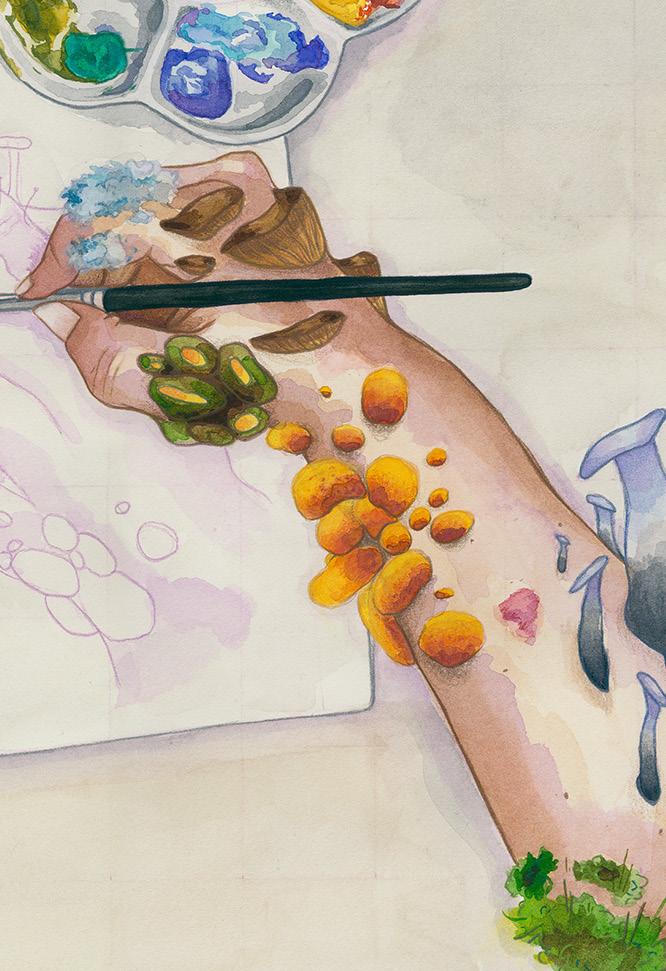
Backseat Lovers
by Sam Carberry
The first thing she told me after kissing me for the first time was that her ex-girlfriend left her after reading Carmen Maria Machado’s In the Dreamhouse. If you are unfamiliar, this is a memoir written about a woman’s struggle to get out of an emotionally abusive relationship with her girlfriend. I knew this, but told myself it was merely a coincidence. After all, there was no way someone who made me feel this good could ever hurt me, right?
I texted her first. We were in an online class together, and something about her piqued my interest (this is my eloquent way of saying I could tell she was gay, and I was lonely). After a few days of simple-minded small talk, she texted me and said, “I’m really curious about your age, but I also kind of like the idea of not knowing.” This remark confused me. We had definitely been flirting, so why did it matter now? I asked her what she thought it might be.
“19,” she replied. Naturally, I asked what hers was. “Older than you,” she responded. I have never really been good at guessing games. Finally, after several incorrect answers, she told me, “26.”
On the other end of the phone, I felt ill. Shocked, even slightly unnerved, by the realization that I had been flirting with a woman seven years my senior. It felt like she wielded some ambiguous power over me. Looking back on this moment now, I feel even more disillusioned. She knew (or at least had a hunch) about my age, and yet she still flirted
79 | Issue 5
with me. Still, let me flirt with her. She knew all of this and still used my age against me at any moment she could. Making me feel inferior to her and all her grandiosity.
A few days after I learned her age, we planned to meet for coffee before class. I hadn’t been on a date in months. Was this a date? No. It was simply two lonely lesbians who had been flirting for weeks, going out for coffee. I was incredibly nervous. I have never really been good at this sort of thing, platonic or not. We both sat down, nervous giggles and awkward introductions exchanged. Maybe it was because we were sitting outside with the sun shining and birds singing, but I had never felt so relaxed with someone. Something about her made me feel as if I could tell her every little detail about myself. She was so easy to talk to.
Before I knew it, we were late for our first class of the day. I had never skipped a class before, but being with her was intoxicating, and I wasn’t ready for it to end yet. I told her about growing up gay in a Southern Baptist household, my tendency towards anxious attachment, and my strained relationship with my mother. I told her about how my therapist had told me my neediness and insecurities stemmed from this relationship, and how I always felt like I had to earn my mother’s attention. She listened and told me about her own upbringing. Her relationship with her parents wasn’t that much better than mine. Her mother was invasive and often judged her for where she was in life. Her father wasn’t much better—a semi-alcoholic with a tendency towards fits of anger. She spoke to me as if she knew everything about me. She told me all about the reasons why I felt anxious or depressed. She psychoanalyzed my past and present as if she were a therapist with decades of training. Almost all of her assumptions about me were incorrect.
We missed our second class as well. We were now sitting together in the back seat of her truck. There was hardly a molecule of space between us, and I was hyper-aware of every inch of my skin aligned with hers. Suddenly, we were kissing, and I had never felt more electrified. She would stop every few minutes to tell me I was beautiful or to ask if this was fueling my “mommy issues.” I would stop every few minutes
Winter | 80
Sometime in March, I started new antidepressants. They worked for a while. Or at least I thought they did. Soon, though, I started crying. Every night chest clenching, suffocating, crying. Soon after that, the thoughts I knew my therapist wouldn’t approve of started coming back. Sometimes I would call the twenty-six-year-old and tell her the ugly truth about how I was feeling.
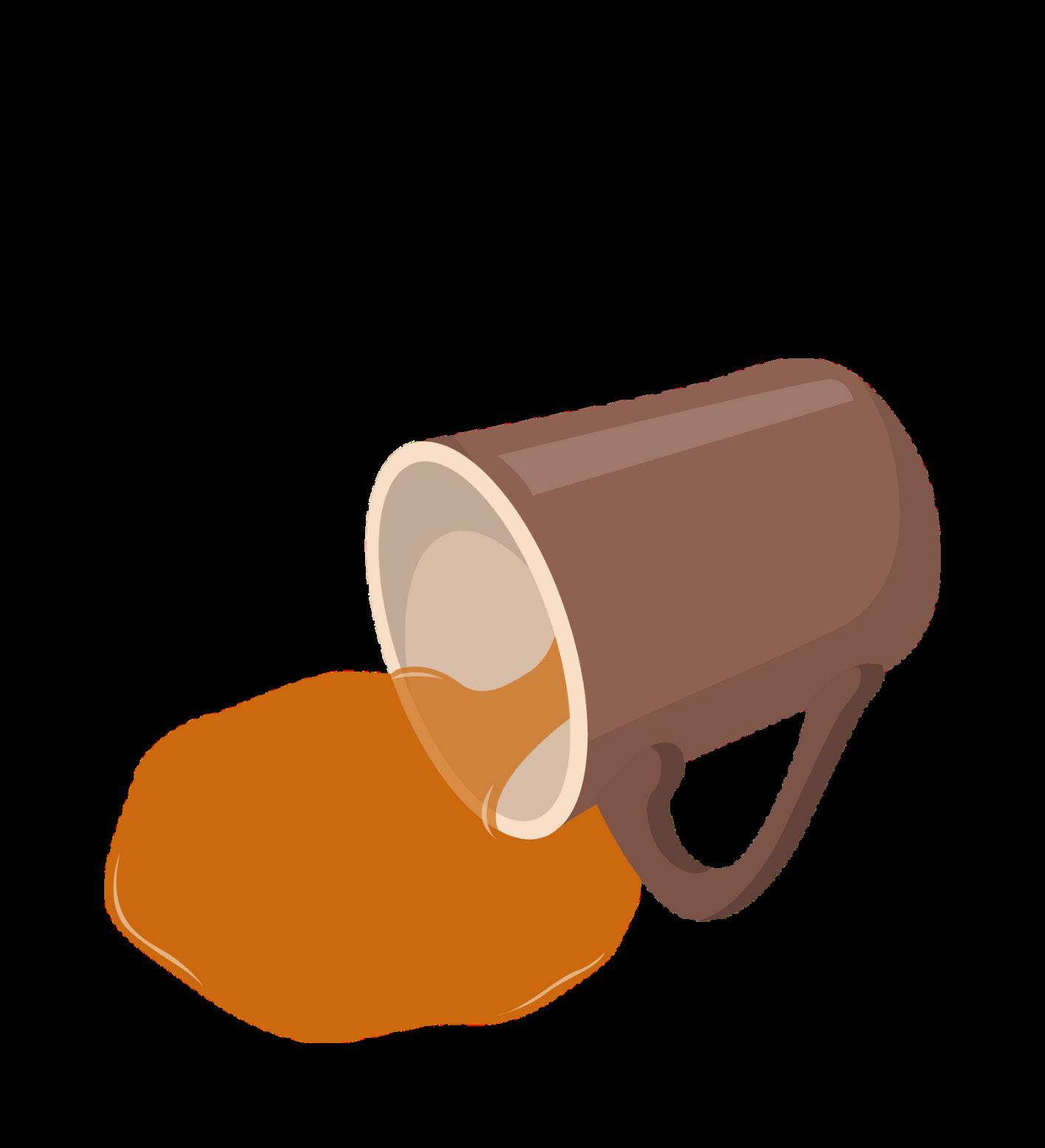
81 | Issue 5
to ask, “Am I doing this right?” She was the first person to make me feel genuinely beautiful. She seemed so sincere. She pointed out all the things I disliked most about myself and told me they were gorgeous, that I was.
It was the day before I left for spring break. The early March air was warmer than it had been in months, and we had plans to go to a garden center. My heart raced as I heard her truck tires scrape the gravel on my driveway. I climbed in, childishly eager for our day together. She smelled like coffee and laundry detergent. The scent of the oranges in her cup holder mixed with my vanilla perfume and sunscreen as she kissed me.
“You smell like sunscreen,” she said while kissing my neck hungrily. I added that to my mental list of things she loved. From that day forward, I practically bathed myself in SPF 50 every time I knew I’d see her, hoping she’d kiss me with that hunger again. She never did.
After about two solid weeks of late-night phone calls and sexually charged text messages, we planned a sleepover for the weekend after spring break. I was buzzing with excitement. After all, I hadn’t had sex in three years. Everything was perfectly planned. She would come over on Saturday night and leave sometime on Sunday. Two days before our sleepover, she texted me. “We can still have sex, but I’m not sleeping over because I don’t do that. I’m sorry that I told you I would, but I clearly wasn’t feeling like myself.”
We never did have sex. Funny, how my mother always warned me about the dangers of premarital sex. These dangers were not just pregnancy or disease, but abandonment. She said that because of a woman’s hormones, I would become attached to this sexual partner, and that attachment would only be broken when they inevitably decided to leave because, after all, “it’s just sex, right?” I never even had sex with her, and yet I was tethered to her. Unable to let go. In retrospect, I was never simply attached. I was addicted. Addicted to the volatility. Addicted to the way she made me feel smart and needed one minute, then stupid, childish, and
Winter | 82
hated the next.
Sometime in March, I started new antidepressants. They worked for a while. Or at least I thought they did. Soon, though, I started crying. Every night chest clenching, suffocating, crying. Soon after that, the thoughts I knew my therapist wouldn’t approve of started coming back. Sometimes I would call the twenty-six-year-old and tell her the ugly truth about how I was feeling. She told me medicine was futile anyway. If I’d just meditate. If I’d just stop being on my phone all the time. If I’d just stop eating saturated fats. If I’d just smoke more weed. If I did these things, I wouldn’t be feeling like this. I didn’t need medicine, I just needed the earth. I thought for sure that as a psychology major, she would understand how much medicine really helped me and how none of her remedies could ever “cure” me. A few days after the thoughts set in, I stopped taking my meds. She told me she loved how deeply I felt things. She told me she was jealous of the purity and strength of my emotions. I never understood how someone could love or be jealous of something so close to killing me.
One day, on the phone, she said, “I don’t think I could ever date anyone under twenty-three.” I found this odd, considering she clearly had no qualms about making out with someone under that age. When I brought this up, she called me a brat.
After a night out at the movies, she told me, “I wish you were next to me while we slept.” A week prior, while looking for apartments, she said, “Move with me to Richmond.” The following week, she told me I was insane for even thinking we could be together. She told me she resented my age and that she would often become annoyed just at the thought. After this, she texted me and said, “I don’t know why I keep doing shitty things. It’s like I’m stupid. How do you know how to treat others better than I do? I’m seven years older.”
83 | Issue 5
One day, she invited me over after class. I was so excited, it was impossible to think about anything else. She opened the door, and I was hit with that same intoxicating scent of coffee and laundry detergent. It’s a really strange feeling walking into the home of someone you’ve mostly gotten to know over the phone. Seeing the decorations they chose, family photos, dirty dishes piled in the sink, pillows, sheets. It all felt so personal, intimate even. At first, everything seemed fine, but I could tell her mood seemed slightly off. I figured she was just tired. She made me promise to do thirty minutes of work with her before we could do anything else. I diligently worked on homework while she read. Slowly, her demeanor became even harder to read. Before I knew it, she was sitting against the wall with her head in her hands, and I was sitting on her bed, confused as to how we got here.
“What’s wrong?” I asked.
She looked up at me and said, “I... I just feel like we have nothing in common.”
This left me stunned. I mean, what was she even talking about? Why would she say that? Why now?
“What” was the only word I could muster.
“I don’t know, I just feel like we have no similar interests. Why do we even hang out? It makes no sense.”
We sat in silence until she said, “Never mind, forget it.”
She left her spot on the floor to come lay on the bed. She turned her body away from me. Acting as if I were a ghost. It was almost as if she forgot I was still in her house, let alone next to her in bed. In these moments, everything began to fall into place. The volatility she provided was no longer sexy or exciting. She was unstable, and I was receiving the consequences. She only wanted me when she was lonely or needed to rant. I wanted to cry more than anything. More than that, though, I did not want her to see me cry. Sure, she could hear me cry over the phone, but this was different.
Finally, I said, “Do you even want me to be here right now?”
She turned towards me now and said, “Honestly, no.”
I told her I should go. Silently, she walked me to the door. I knew I would have cried if I had opened my mouth.
Winter | 84
So, I left. The second I escaped her neighborhood, tears poured like they never had before. I swore to myself that this was the final time I would let her hurt me.
It was now April. I hadn’t seen her since that day at her house. I didn’t really want to see her, but she had one of my favorite books. Something about her owning a part of me felt wrong—violating, even. Everything was meticulously arranged; she would meet me outside the campus bookstore and return what was mine. Immediately, I noticed how the humid air seemed to bounce off of her icy demeanor. I no longer felt drunk off her energy. It was sour and alien. Feeling pushed by awkwardness to start small talk, I asked her about her day. She looked at me as if this gesture was fueled by pure insanity.
“Why are you even asking me this?” she said in a tone I was all too familiar with.
“Oh, um, because we are friends,” I said, almost as if it were a question, because honestly, I had no idea what we were. Do friends typically kiss and hold hands? Do friends discuss what it would be like to have sex? Do friends tell each other everything and comfort each other in their darkest moments? Do friends neglect each other and then spend the rest of the night apologizing as if they won’t do it again the following week?
“We’re not friends,” she said quickly and matter-of-factly.
The old me would have fought this remark, maybe cried. I would have become anxious at the thought of her no longer wanting me. That is, if she ever did want me. The present me, however, simply accepted this remark and walked away, finally content with never seeing her again.
85 | Issue 5
By Alec Evan March
He has a nose like yours—hooked, slim, and ringed in the right nostril. It’s uncanny. The rest of him looks nothing like you—buzzed head to your long hair, unnerving blue eyes to your cozy brown. Twenty-one, a water polo player, and a collage artist. He’s tall; taller than you, taller than me. There’s none of your decisiveness in his walk. He moves as if he never has to get anywhere, and with a posture curiously bad for a semi-professional athlete. But that nose. That nose looks downright stolen.
It’s Monday, late August, five in the afternoon. We meant to visit the modern art museum today, but by the time I reached his house, the news was warning of extreme weather conditions and oncoming rains. Domestic flights were delayed. I bit my nails over the international ones. San Francisco to Tel Aviv, Dubai to Manchester, passing right through the turmoil. That was all an hour ago. Just a summer storm, we’ll wait it out. Outside his window, clouds have gathered in packs, and there’s wind enough to shake the trees his neighborhood doesn’t have, but no rain.
His studio apartment is littered with cut-up magazines, empty Powerade bottles, tight tees, baggy jeans, and thrifted paperbacks. I hate being holed up in here. We’re stacked atop each other on the single bed, me on my back and him pressed against the wall under the window, head on my chest. Our shirts are off because, rain or not, the summers downtown are brutal, all this heat gathered up in the cement and hurled back out into the atmosphere. We can’t open the window or we’ll go mad with the sound. Besides, the air’s not
Winter | 86
casualties
cold. I went out to the balcony for a cigarette and came back sweatier. His ceiling fan tries but can’t cool us off either. All it does is mix and spread the odor of our shoes by the entrance with that of the pesto sauce he cooked last night in the kitchenette.
On the TV is someone else’s war. It’s all they’ve shown today, save for the weather report. Country A claims part of Country B belongs to them, plans to annex the entirety of Country B for good measure. Country B recently discovered untapped oil reserves, who would’ve thought. The US is playing both sides, who would’ve thought. It’s the same old story. He watches for a plot twist. My fingers play with his ear.
Around the window, the wall above his bed is a cluster of images. Polaroids of his friends. An empty vinyl case of Vespertine. Posters of Italian horror movies, like Suspiria and Cannibal Holocaust. A collage he made of a black-and-white Yukio Mishima squatting over a banner of the hammer and sickle. A page of blackout poetry. He holds me a little tighter, sighs.
He’s not the first. It’s been two years. You know he’s not the first.
About a month after it happened, your absence got to me. All those unanswered texts. I texted even after your mother said I was upsetting her. And I texted after each of those first transgressions, texted while they slept unknowing next to me, with the impossible hope you’d call and voice your disappointment. I texted until they canceled your number.
There have been others. There have been plenty. It’s not callousness. I’m not trying to offend you. Some grieve through celibacy, others through fucking. None of it means anything, none of it makes a difference.
Twenty past five and it’s still not raining. A suited-up blonde reports straight from the warzone Country B’s leader is determined to see this to the end, while 87 | Issue 5
There have been others. There have been plenty. It’s not callousness. I’m not trying to offend you. Some grieve through celibacy, others through fucking. None of it means anything, none of it makes a difference.
Winter | 88
Modern art Museum M Monday July 17, 2:16pm Modern art Museum M Monday July 17, 2:16pm
soldiers in the background teach children to not pick up stray toys, as they could harbor explosives. “A tragic image, really,” commends the blonde, and I realize she’s not in the warzone. There’s wind in the background footage and her hair’s not moved an inch. Green screen. My mistake.
He stirs against my chest, a hand teasing my crotch. Whatever, let him have it. It’s not like we’ve got anything to do until the storm’s over, and that hasn’t even started yet.
I met him three months ago on the same app I met you. He didn’t have a lot of pictures but I liked the one of him in his speedo, flexing his muscles in the locker room mirror after practice. I messaged him expecting it would take the usual route—an exchange of names, fantasies, addresses.
A great conversationalist, even in texts. I had a hard time finding an opening to end the chat and arrange a meeting. Founded on a common affinity for horror movies and garage rock music, a connection developed there, online.
When we met, a whole week later, we took up the conversation from where we had left off. That is, medieval torture methods. What got us there I can’t remember, but we drifted about the city, first debating whether it’d be better to die through rat torture or on the wooden horse, and then, having again imperceptibly switched the subject, whether Beckett’s Waiting for Godot, which I had to study for class and which he had read for fun, argued for or against hope. Back and forth we went, and I left with only a kiss on the cheek and the promise of another date, a promise well kept.
There was no bowling night or picnic lunch, no flea market stroll or karaoke bar. You were the one that could come up with these things and plan them out. He and I are non-creative daters. Today’s museum was the most elegant we’ve gotten, but even that effort has so far been proven futile. So our second time was at a coffee shop he liked, where we talked some more. The third time was a restaurant, more talking.
We slept together the fourth time, after a night of club-hopping. We’d gone out in his area so there was no way
89 | Issue 5
for me to return. He invited me over and we stayed up to wait for dawn. We did it on his unmade bed, half-dressed as if in a hurry, pants around our ankles and our shirts still on.
After, as the sun came out, he made hot chocolate and I flipped through his books. We talked about movies until I fell asleep.
I press his cheek against the carpet. It’s half past five. In a lowered volume, the TV is still reporting on the war.
We tumbled onto the floor soon after we started. Used to it by now, we kicked away discarded clothes and empty bottles and continued there. He writhes beneath me, arches his back, and opens his mouth for my fingers. I slap his ass twice, his face once. He likes it most when I lose control, but today I’m going through the motions with the alienated efficacy of a factory worker.
The UN is threatening sanctions. Country A’s leader remains unconvinced. “My people are with me,” the translator speaks over him. “All my people are with me.”
Do you remember that time in the park, deep in the trees, away from the pond? Always away from the pond, you were so scared of ducks and their serpentine hissing. Remember how we thought we were alone? How you laughed and glowed red at the sudden cacophony of children playing hide-and-seek at the other side of the bushes?
“…and you will agree with me, it is this unnecessary cruelty that shocks us most of all. The bombing of the hospital…”
Does it bother you we never saw Naples? All this talk of it and we never managed. I was the one who wanted it most. When I’m feeling selfish I like to think it’s the universe telling me there are some things I must experience alone, some wishes I must save for another lover to fulfill. Of course, the universe doesn’t speak. I attribute meaning to what I can and forget it when I need it most.
My mother calls me on your birthday and tells me to take care. I try not to worry her.
In breaking news, Country B has pushed Country A’s forces out of a village in the west. “Yes,” keens the reporter, Winter | 90
“but they have lost three more in the north.”
I turn him around so I can finish on his chest.
His shower’s too small, so we rock-paper-scissor and I get to go first. When I come out, he’s naked in the kitchenette, opening and closing cupboards.
“I’m making coffee,” he says. “Do you want some?”
“No,” I say, reaching for the hair dryer by the foot of the bed.
While I was away, the TV quit talking about the war. “Although the black box is yet to be located, experts are suspecting pilot error,” says the reporter over images of a crashed aircraft. “In the meantime, the injured are being carried to the hospital and the families of the dead are being informed. The sheer scale of the accident—”
“Why’d you turn it off?” he asks.
I look at the remote in my hands, my finger on the button. I hear myself say it is too much for me.
“We’ve been hearing about war crimes all day,” he says, half-jokingly.
I stare at the black, empty television screen. “I don’t wanna hear about a plane crash.”
His arms wrap around my waist. In both his hands, coffee cups. “I accidentally made too much,” he says as he offers one to me. “You don’t have to drink it,” he says, so I don’t.
I leave while he’s in the shower.
I abandon the coffee undrunk on his bedside table by our tickets to the museum. Shoes on, I take a last look around the studio. In the nebulous sunlight, it presents itself to the spectator the way one of his collages might, up for interpretation, and I can’t decide if it’s a tenderly curated personal space or a painfully artificial attempt of someone eager to convince his visitors he’s got something to say.
Out on the street, I block his number on my phone.
91 | Issue 5
It’s half past six and the clouds have bulked up but there hasn’t been a drop of rain. No water. Bad weather for the sake of bad weather. Winter
| 92
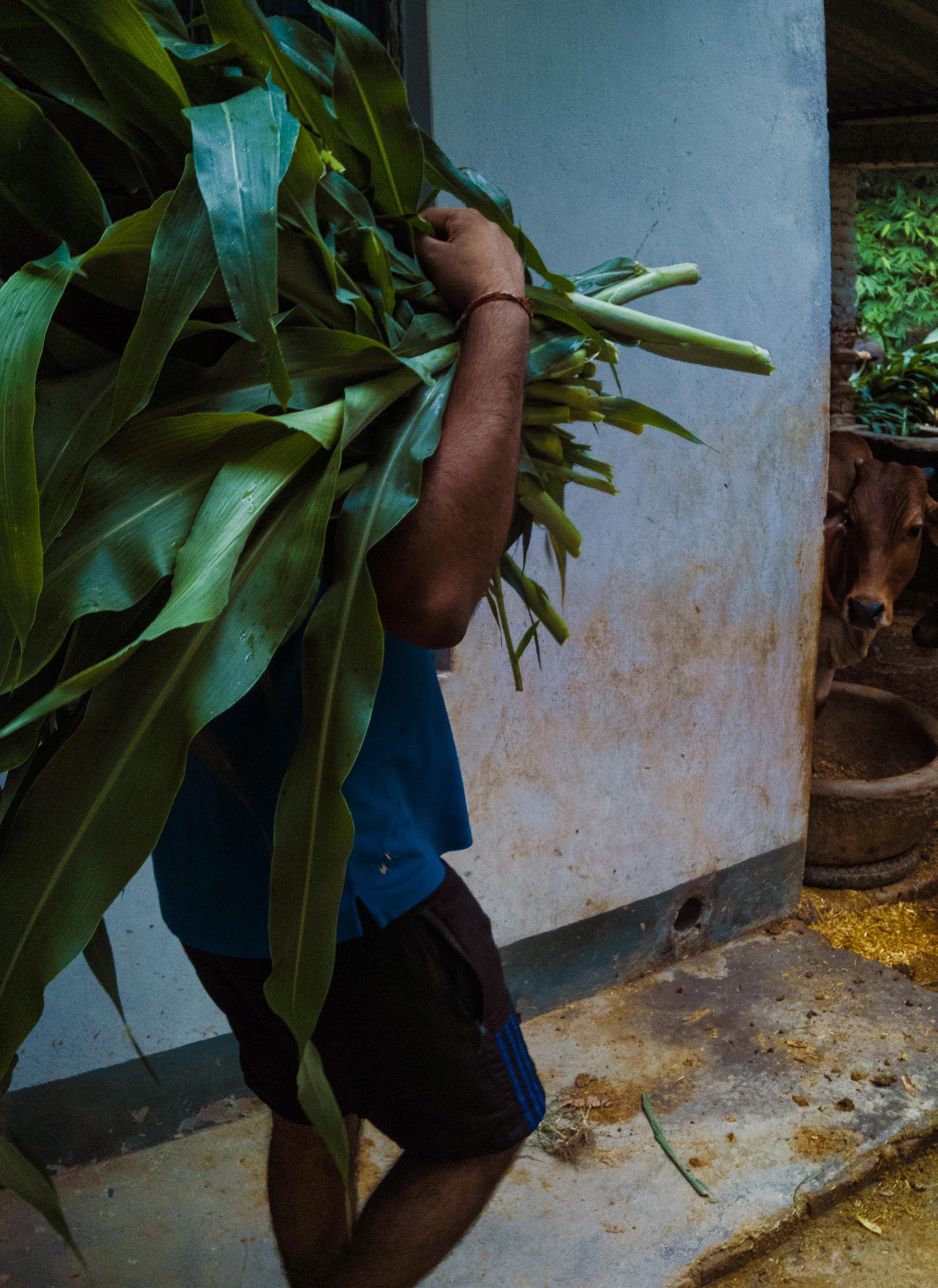
In Georgetown Guyana
by Smitha Sehgal
the streets are neatly lined up in 90-degree angles mornings clenched in handfuls of jazz flowing on the streets pigeons mate shamelessly beneath almond trees I open the door to the draught that wanders Later that I realize that I have become a canoe, to this osprey of Sky, I have given away the tone of my skin to the tribes of this country. They have caramelized our words after the sugar cane has been harvested. Who lived here? What language did they speak? The tribes of the rainforest grow in their fate lines. When the invaders came, they flew away into deep jungles, disguising themselves as birds. They watched as the land was set on fire. Deep in the jungle, it rained incessantly. I came with nothing but the color of my skin and the wine of my words. Now I search each man’s face for my trace. I have wandered by the banks of the Thames, I have swam in the Ganges, I have paused by the grass growing tall by the Demerara. If there is one moon, it is me that shines upon Nila. On the verge of blue dawn, there is no other, neither man nor woman. On the day of resurrection, I must gather my rotting bones. Dust the infinite regrets off the shade of my skin. There is no Hamlet or any man that I may call Lord. Snapping inside the clouds I melt the ache inside my head into pure gold. Dreams of untraversed maps froth on my fate lines.
Winter | 94
Keeping Secrets
by Rich Rubin
CHARACTERS (2M)
BOBBY: twenty-six, a man with AIDS
TOMMY: twenty-four, Bobby’s brother
AT RISE: The place, a tiny apartment in Brooklyn. The time, August 1985.
The AIDS epidemic has been ongoing for several years. The causative virus has been identified but no effective treatment is available. It’s a scourge that many people choose not to talk about. It’s a scourge that the President of the United States chooses not to talk about.
BOBBY and TOMMY – two brothers in their twenties, casually dressed – are drinking coffee in the kitchen of BOBBY’S rundown apartment. They listen to a newscast on the radio.
Though BOBBY is only two years older, he appears frail, physically wasted.
NEWSCASTER (on the radio)
… According to a Pentagon spokesman, as of October 1st, the military will begin testing all new recruits for the virus. In other news, President Reagan … Bobby clicks off the radio.
TOMMY Hey! BOBBY What?
95 | Issue 5
TOMMY
Why’d you shut it off? The weather guy is next.
BOBBY
Tommy –
Yeah?
TOMMY
BOBBY
You just got here, what – like a half hour ago, right?
TOMMY So?
BOBBY
So you were just outside. You already know what the weather is.
TOMMY
Today’s weather, sure. But not tomorrow’s.
BOBBY
Tomorrow? Who the hell cares about tomorrow?
TOMMY I do.
BOBBY (sarcastic)
Yeah? Well, good for you. ‘Cause I don’t! And thanks for pointin’ out the difference!
TOMMY
C’mon, Bobby. That’s not what I meant and you know it!
BOBBY (beat)
Just remember what I said, OK?
Winter | 96
About what?
TOMMY
BOBBY
About Mom. Just don’t tell her, alright? I want you to promise me.
TOMMY
Jeez, Bobby. We already had this conversation. Like ten times already.
BOBBY
So? I’m just reminding you. ‘Cause you know what? If she found out, it would kill her.
Beat. TOMMY stares at BOBBY.
BOBBY
What’s the matter? Why’re you lookin’ at me that way?
TOMMY
Forget it.
No. Tell me.
BOBBY
TOMMY
You sure? ‘Cause you’re not gonna like it.
BOBBY
Just tell me, OK?
TOMMY
I think Mom already knows.
BOBBY (beat; it takes a moment for this to sink in)
What?
I think she knows.
TOMMY
97 | Issue 5
Shit!
Look, it’s just a guess, alright?
BOBBY
TOMMY
BOBBY
A guess?
TOMMY
Yeah. That she suspects, well, you know, that somethin’s goin’ on. That’s somethin’s not right.
BOBBY
Why? What’d she say to you?
TOMMY
Nothin’. She hasn’t said a word. At least not to me. She just seems real nervous, that’s all. Even more than usual.
BOBBY
Nervous how?
TOMMY
I dunno. Like we’ll start talkin’ about somethin’ – maybe somethin’ she saw on TV, some celebrity – and suddenly she gets all quiet and serious in that real low voice of hers. You know, like someone –
BOBBY (beat)
Like someone what? Like someone died?
TOMMY
That’s not what I said, so quit puttin’ words in my mouth, OK?
BOBBY
Listen, man: I need to know: Did you say somethin’ to her or not?
Winter | 98
No way! I already told you!
TOMMY
BOBBY
Swear to God?
TOMMY
Swear to God.
BOBBY (beat)
I think you’re wrong about this. About Mom.
TOMMY
OK. Who knows? Maybe I am.
BOBBY
I don’t think she knows anything. I mean, why would she know?
TOMMY
Look, man: You’re probably right. I’m probably readin’ way too much into this.
BOBBY
You understand the rules here, don’t you? I want you to stay outta this. Not a word to her. I mean it, Tommy. Nothin’ about me. Nothin’ about the virus.
TOMMY
Sure, Bobby. Whatever you say.
BOBBY
I’m serious.
I hear you, OK? I get it.
TOMMY
BOBBY (beat)
Which celebrity?
99 | Issue 5
What?
TOMMY
BOBBY
On the TV – when you were watchin’ with Mom – which celebrity were they talkin’ about?
TOMMY
I dunno. I wasn’t really payin’ attention.
BOBBY Rock Hudson?
TOMMY Maybe.
BOBBY
What do you mean “maybe”? It either was Rock Hudson or it wasn’t Rock Hudson!
TOMMY
Look, I don’t remember who it was, OK? All I know is that she saw some guy, some famous guy, on the news – some guy with a real skinny face – and she said, “Look how much weight he’s lost. Just like Bobby.”
BOBBY (beat)
She said that? Those exact words?
TOMMY
Pretty much. Yeah.
BOBBY
OK, then. That settles it. We gotta come up with a plan.
TOMMY A plan?
BOBBY Right.
Winter | 100
TOMMY
What kinda plan? What are you talkin’ about?
BOBBY
Look, here’s the deal, OK? Just tell her I’ve been on some sorta diet. Somethin’ I read about, I dunno, in some magazine. And that’s the reason I’ve lost all the weight.
TOMMY (incredulous)
You’re jokin’, right?
BOBBY
Hell, no! I’m not jokin’. What makes you think I’m jokin’?
TOMMY
‘Cause Mom’s not stupid, you know. She knows you’ve been sick with somethin’.
BOBBY
Oh, yeah? How? I thought you didn’t say anything to her.
TOMMY
That’s right. I didn’t. C’mon, man: All she has to do is take one look at you and she can tell. Not about the virus, maybe. Just that you don’t look that way you used to look. The way you oughta look. Even as a kid she could tell, remember?
BOBBY
Oh, yeah. Definitely. Her special power: Just one look and she’d know. If you were fakin’ it and just tryin’ to get outta school, she could figure it out in less than a minute, right?
TOMMY
Faster than any doctor, that’s for sure!
BOBBY (beat, mulling this over)
OK. So maybe we should scratch the “diet” story.
101 | Issue 5
TOMMY
Totally. She’ll realize it’s a load a’ crap from the get-go.
BOBBY (beat, thinking)
I know. We’ll tell her I had the flu.
TOMMY
Bad idea. I don’t think that’s gonna work.
BOBBY Why not?
TOMMY
‘Cause that’s what I told her before. Like a month ago. That you were sick with the flu and couldn’t come over.
BOBBY
So? I got it again.
Beat. TOMMY stares at BOBBY, a look of doubt on his face.
BOBBY
What? You can’t come down with the flu more than once?
TOMMY (beat)
Can I say somethin’?
BOBBY
Sure. As long as it’s not too dumb. Which, for you, I know is hard.
TOMMY
Maybe we should tell her. You know, face-to-face.
BOBBY We?
Winter | 102
TOMMY
OK. Maybe you should tell her. The full story, beginning to end. I mean, she’s gonna find out sooner or later anyway, right?
BOBBY
Look, Tommy, I know you’re a good guy and you’re just tryin’ to help me out, but –
TOMMY (interrupting)
Trust me, I’m not so good. I’m just your brother, that’s all.
BOBBY
Yeah, well, brother or not, you need to mind your own business!
TOMMY (sarcastic)
You know what? I was waitin’ for you to say that.
BOBBY
Good! ‘Cause I just did!
TOMMY (beat) Ha! It’s really amazin’, isn’t it?
BOBBY
What?
TOMMY
How much we suck at this. Both of us. Tellin’ lies, I mean.
BOBBY See? That right there’s your problem.
TOMMY Problem?
103 | Issue 5
BOBBY
The way you’re lookin’ at this. ‘Cause what we’re talkin’ about here – it’s not a lie.
TOMMY
Oh, no? Then what is it?
BOBBY A secret.
TOMMY A secret, huh?
BOBBY
Yeah. A secret. And if brothers are good at anything, they’re good at keepin’ secrets, right?
Beat. TOMMY stares at his brother.
BOBBY
Smile, Tommy. It’s me you’re lookin’ at. And what I said before – I take it back. I wasn’t bein’ honest.
TOMMY
About what?
BOBBY
Tomorrow. Despite the virus and all the other bullshit, I’m actually plannin’ on bein’ here. You know – still yankin’ your chain. Still tellin’ you what an asshole you are.
TOMMY
Good.
BOBBY
Yeah. But anything after tomorrow, who knows, right?
TOMMY (beat)
Listen, man: I gotta go, OK?
Winter | 104
Sure. Work still good?
BOBBY
TOMMY
Fine. I’m up for assistant manager.
BOBBY
Good for you. You deserve it. And Denise?
TOMMY
We’re cool. Still. She sends her regards. And Will?
Beat. BOBBY hesitates before answering.
BOBBY
It’s a long story.
TOMMY OK.
BOBBY
I mean, like a really long story.
TOMMY
OK. And anytime you wanna talk about it –Just know that I’ll be around, OK? I’ll always be around.
Beat. BOBBY hugs TOMMY.
BOBBY
You take care of yourself, alright?
TOMMY
You, too, man. You, too.
They continue hugging for another few moments, then BOBBY pulls away.
BOBBY (re: the hug)
You know, I’ve been wonderin’: Maybe we shouldn’t get this close.
105 | Issue 5
TOMMY (stunned)
What are you tryin’ to say to me? We shouldn’t hug each other any more?
BOBBY
Maybe not. It’s just a precaution. This virus – they say it’s really contagious.
Beat. TOMMY stares at his brother.
TOMMY
That’s OK. I’ll take my chances.
TOMMY gives BOBBY a loving pat on the face.
BOBBY
Tommy
Yeah?
TOMMY
BOBBY
Wash your hands. As soon as you get home, OK?
Beat. The two brothers stare at each other.
TOMMY
See you next week.
BOBBY
Yeah. See you next week.
TOMMY exits.
BOBBY stands alone in silence, staring at the door.
End of play.
–
Winter | 106
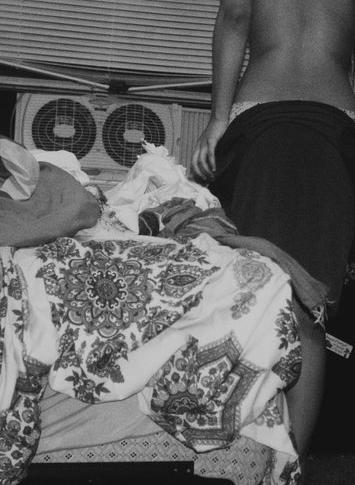
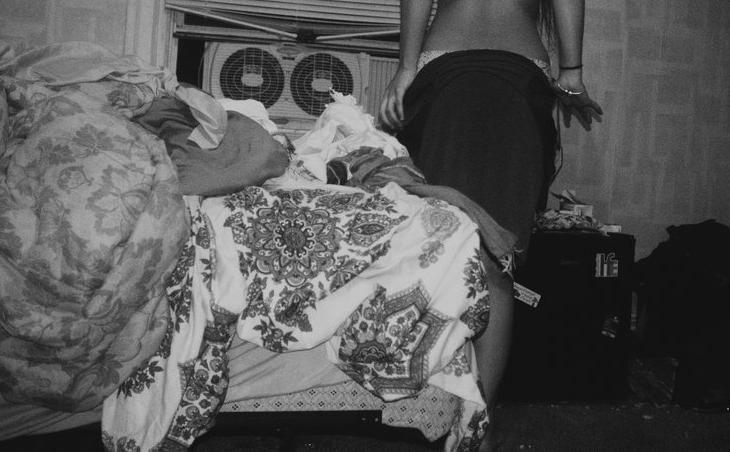 Soiled by Reece Herberg
Soiled by Reece Herberg
Frankie fingers for the lighter on the bedside table in the dark before drawing it to the unlit cigarette at her lips, sucking in slowly. Paul preferred the lights off during sex. And after, for the most part—excluding the occasions on which he had requested Frankie read excerpts from whatever novel had been consuming her thoughts at the time. Frankie didn’t mind Paul’s propensity for the dark, finding her focus drawn to the fluctuating glow of the end of her cigarette as she laid on her stomach on the bed. She asks him if he’s staying over tonight. No, I have work early tomorrow, he says. Friday meeting at 9. She nods mid exhale. He’s a data engineer of some sort, what that means fully Frankie never attempted to seek out. She found talking about work during pillow talk to be dreadfully misplaced, like discovering a fork in the bathroom cabinet.
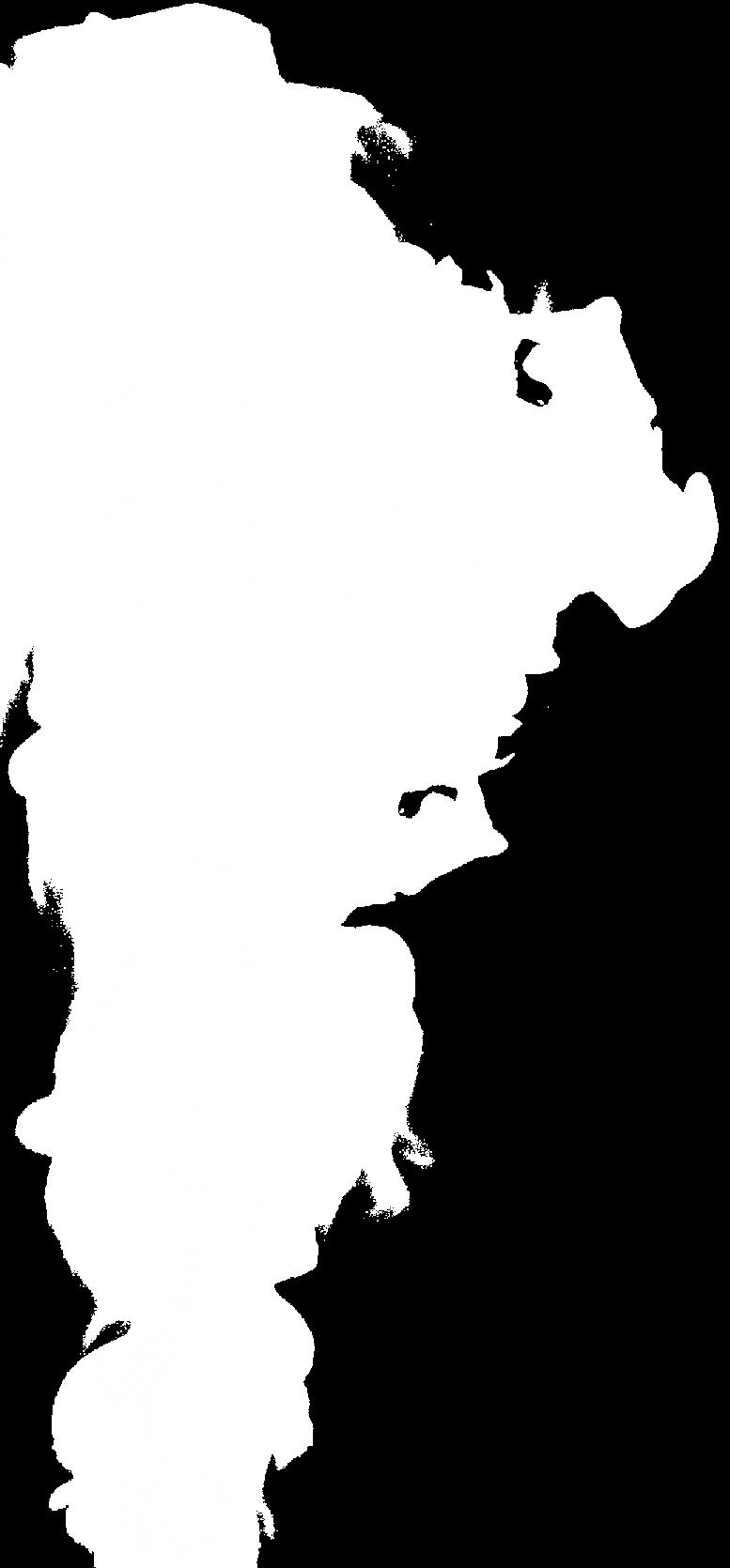
Besides, Paul hadn’t expressed much interest in Frankie’s work, or in Frankie at all for that matter, as was defined by the natural bounds of their situation. Paul would text Frankie, usually under the guise of a transparent attempt at small talk like, How’s work treating you? or How’s your night going? and then quickly drop the act and ask to come over. They would fuck—usually in the bed of Frankie’s apartment—but sometimes in the shower or on the living room couch, and one time in Paul’s car when Frankie’s pipes burst, and she was staying with her sister. Never at Paul’s apartment.
Frankie never bothers to ask why. She isn’t big on public transportation to begin with and enjoys the conve-

Winter | 108
If she was honest with herself, she rarely found sex as satisfying as how she could make herself feel. But she found comfort in the way men treated her during it. They couldn’t see her, not really. Frankie was a body beneath them, a form onto which they would pant and grab and bite and say things, things that were nonsensical, things they didn’t really mean.
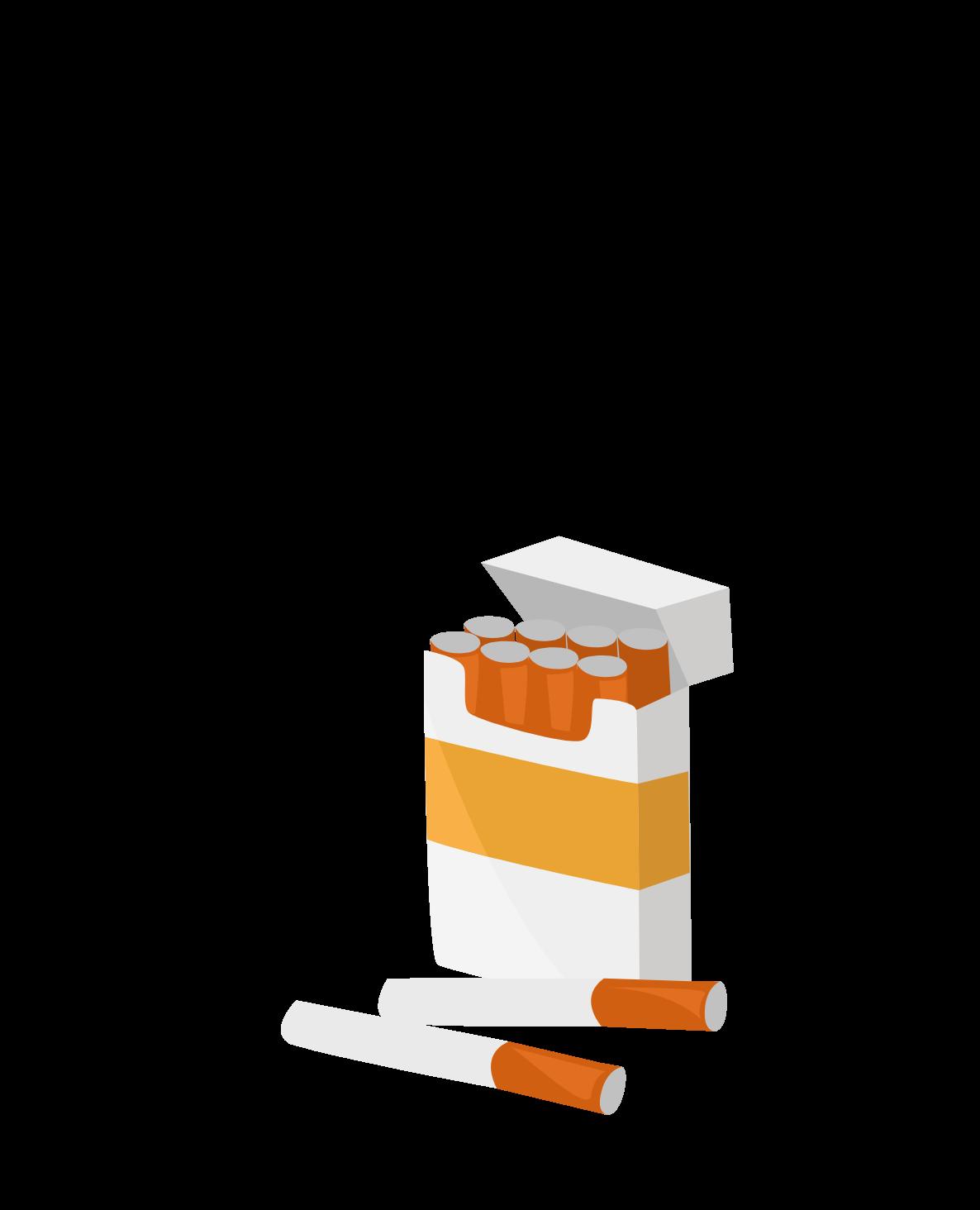

109 | Issue 5
nience that comes with Paul. He’s older, more experienced than the men in their early twenties that she usually hooks up with and keeps everything no nonsense which Frankie likes.
Their weekend ritual held a certain level of comfort and consistency that was absent in other areas of her life. A car is always ordered to Frankie’s apartment, small talk is mutually entertained and short lived, and then they have sex (probably more than once), followed by whatever excuse Paul makes to head home for work the next day without sleeping over.
How he operated, lived, and felt outside the dimensions of her apartment was uncharted territory. He would arrive each time as barely an outline of a real person. Frankie resisted questioning Paul as to avoid filling in his outline, as to avoid allowing him to materialize before her, like a ghost entering human form. She wanted him to remain Paul, the guy from the internet that she fucks sometimes.
What’s your schedule like this week? Paul pulls his sweatpants onto his legs from the end of the bed, his back facing Frankie.
She pauses a moment, reflecting on what she needed to accomplish this week and suddenly feeling overwhelmed and distracted. Dunno, she says. I’ll have to text you when I find out.

Alright then, Paul responds. I’ll be around. Except he was already walking away at this point, distractedly ordering an Uber on his phone as he clumsily shoved his left heel into the opening of his sneaker with each step.
Frankie locks the door behind him and pours herself a glass of water from the filtered pitcher. She debates whether she will spend the rest of the night smoking a joint and masturbating or finishing up the pages she has due tomorrow by 4. She decides on the first option, grabbing one of the prerolls from the coffee table and sitting down on the couch.
If she was honest with herself, she rarely found sex as satisfying as how she could make herself feel. But she found comfort in the way men treated her during it. They couldn’t see her, not really. Frankie was a body beneath them, a form onto which they would pant and grab and bite and say things,

Winter | 110
things that were nonsensical, things they didn’t really mean. And then they would leave, and Frankie would feel visible again, like she had left her body as one leaves a job on vacation, only to reenter herself straight from the airport with her unpacked luggage in hand.
This is an unhealthy mindset to have about sex, is what Dr. Greenfield had told her. She had said it a lot nicer, but Frankie tended to see through that kind of bullshit.
How do you feel during sex?

Frankie pauses for a moment. She had never considered that it held much importance. I guess I feel like I’m playing a part, she says. Almost like I disappear. Can we dig deeper into that? asks Dr. Greenfield. I don’t know how to describe it, Frankie says. The things I do, the things I say, that I ask to hear….it feels like a role, like a part I’m playing. Like, in real life, in the real world, the Frankie sitting here right now would never do those things. But during sex, the rules change, it’s different.
I want to revisit the part about what you ask to hear from your sexual partners, says Dr. Greenfield. Could you be more explicit?
Frankie shifts in her seat. She turns her head to the window. She had a perfect view of the garden surrounding the entrance. Three gardeners were working in assembly line fashion from the white trucks parked in the front lot, carrying,and passing forth bulky bags of soil to one another. They move in fluid, synchronous motions, as each intently anticipates the choreographed exchange of the next, never faltering. Frankie watches, mesmerized by their efficiency and thankful for the distraction from the conversation.
Dr. Greenfield politely coughs to regain her attention, and Frankie looks back at once, suddenly disoriented. I like when they tell me the things they want to do to me. How they want to ruin me, Frankie replies.
And why would you want somebody to ruin you?
Frankie stares back out the window. The men from earlier had almost finished their task, moving busily through the garden as they began to unload the final bags of soil from
111 | Issue 5
the bed of the truck. Suddenly, the man farthest from her line of sight pulls a bag all too quickly, grabbing it with great force. The bottom is caught against the protruding handle of the truck. In one swift motion, the bag is ripped open, and soil falls in a tragic pile onto the pavement. The man at fault desperately scoops the scattered soil into the tattered bag, which has been split down the middle. The other two men stand motionless, seemingly irate at the abrupt misstep. This hiccup will surely cause a delay in the schedule.
Frankie turns away, embarrassed, as if she had been involved in the catastrophe and was culpable, and they would see her staring and know she had played a role. When she returns her gaze to Dr. Greenfield, she feels her question hanging heavily in the air, creating a humid density that begins to clog her throat.

If I do or if I don’t, Frankie says, it doesn’t matter. I don’t think it matters.
Of course, it matters, replies Dr. Greenfield. Of course it does.
I just like sex. I don’t think that’s a bad thing, says Frankie.
I don’t think you like it, says Dr. Greenfield. Or at least, you don’t like the sex that you are having.
Then why do I do it? asks Frankie.
Dr. Greenfield shrugs. I’m not sure yet. But that’s why you’re here, so we can figure it out together.
Frankie ashes the joint, saving half of it for later. She hated smoking before a big assignment was due because she found it clouded her thoughts the next day, but also lacked self-control. Her phone buzzes beside her on the couch. A text from Paul.
Good seeing u tonight. Text me when ur free this week. Sleep well.
Frankie likes the text and plugs in her phone to charge. She opens her nightstand, preparing for the second part of her plans for the evening. As she grasps the familiar plastic beneath the duvet, she imagines Paul hovering over
Winter | 112
her, viewing her naked body with a religious focus. She wonders how their connection could feel so intense and intimate at one moment, and then dull and detached the next—like a shard of glass that only reflects light at certain times of day. Without thinking, she finds her hand reaching back for her phone to reply to the message.
good seeing u too! and ok def. wish u were here :/
She pulls down the comforter and stares down at her half naked body, adjusting her red tank top to reveal the top of her cleavage. She then extends her left hand in the air to hold her phone at an upward angle while resting the other on the black lace of her underwear. As the flash of the back camera goes off, she turns her eyes upward and lightly pouts the top of her lip.

It was important that she looked sexy, but not trying too hard. If her pose looked too forced or if her smile was too wide Frankie would immediately delete the image and try again. Nothing about the final product could seem rehearsed.
After repeating this cycle for several more minutes, Frankie decides that one of the pictures fits her standards. She stares intently at her phone, inspecting every aspect of the photo before pressing send. Paul responds almost immediately.
So sexy. Bed looks empty without me. ;)
Instead of the gratification she expects to feel, Frankie rereads the message again and again and turns numb. The image above it now seems unrecognizable. Her face looks distorted and unfamiliar, like a person broke into her house, put on her clothes, and crawled into her bed. Her memory of Paul shifts and changes shape, turning into something too heavy to hold, too hot to the touch. Remembering his low grunts in her ear as he pounded inside of her makes her wince with a creeping shame. Their movements with one another now seem performative, disjointed, and strange to
113 | Issue 5
Frankie, who begins to recall the arch of her back, the stiffness of his fingers, the brunt force of his words and moans, the strangling of her hair in his firm grasp, their infrequent synchronicity. She shivers beneath her comforter, moving from the side of her bed that bared his scent still.

Suddenly she visualises the scene of the three landscapers outside of her therapy session. She thinks about how the two men watched the other man rip the bag open and struggle with repacking the soil and did nothing. She thinks about how he was unable to fully clean up all the soil that was spilled, how even with his best efforts, the remnants of his mishap were still scattered across the pavement.
As she confronts the details of her night with Paul, she feels like all three of them, watching herself rip her body open time and time again, unable to ever preserve it completely. Constantly repeating the mistake, each time with less and less of herself.
Left alone to stare at her own scattered remains on the bedroom floor.
Winter | 114
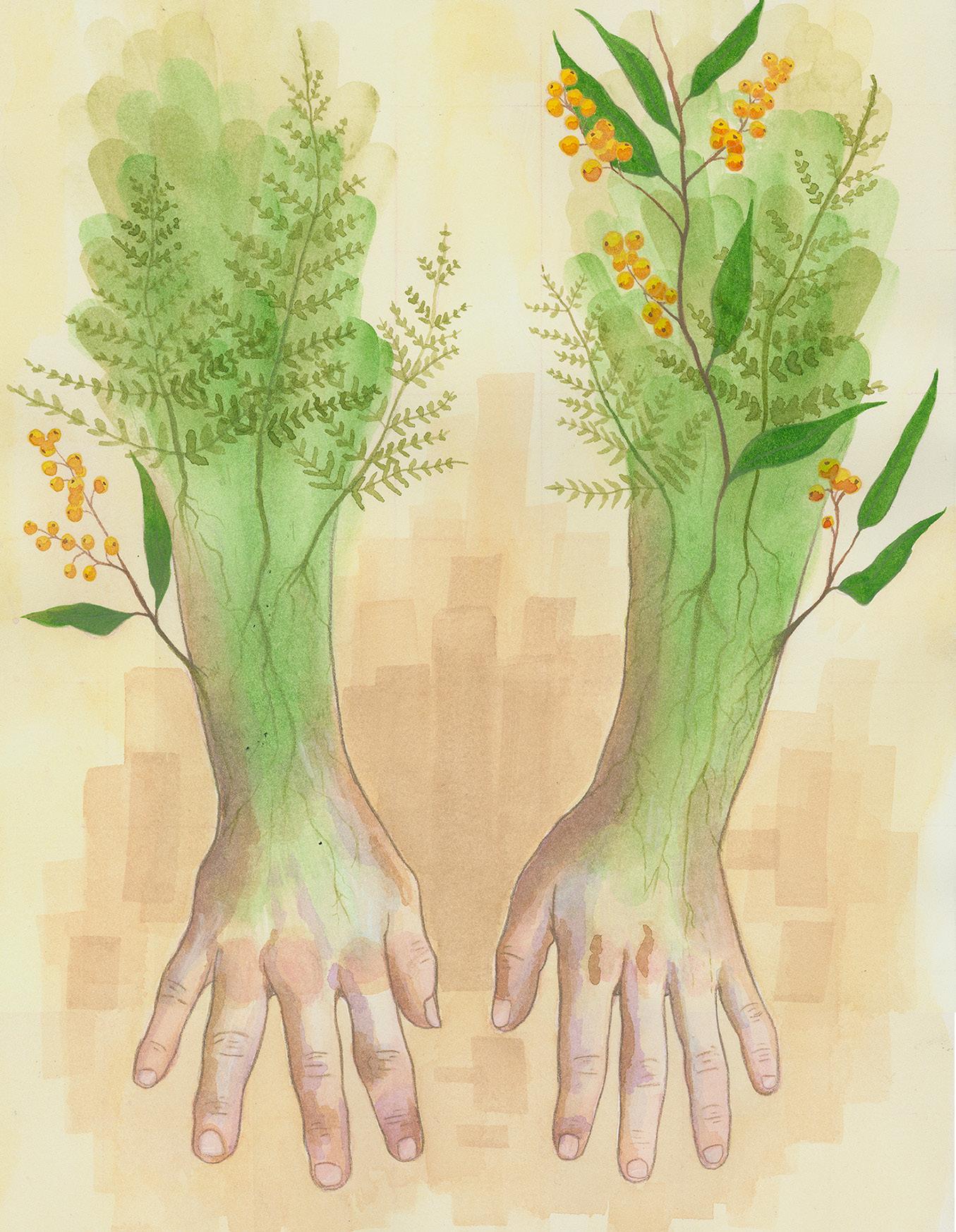
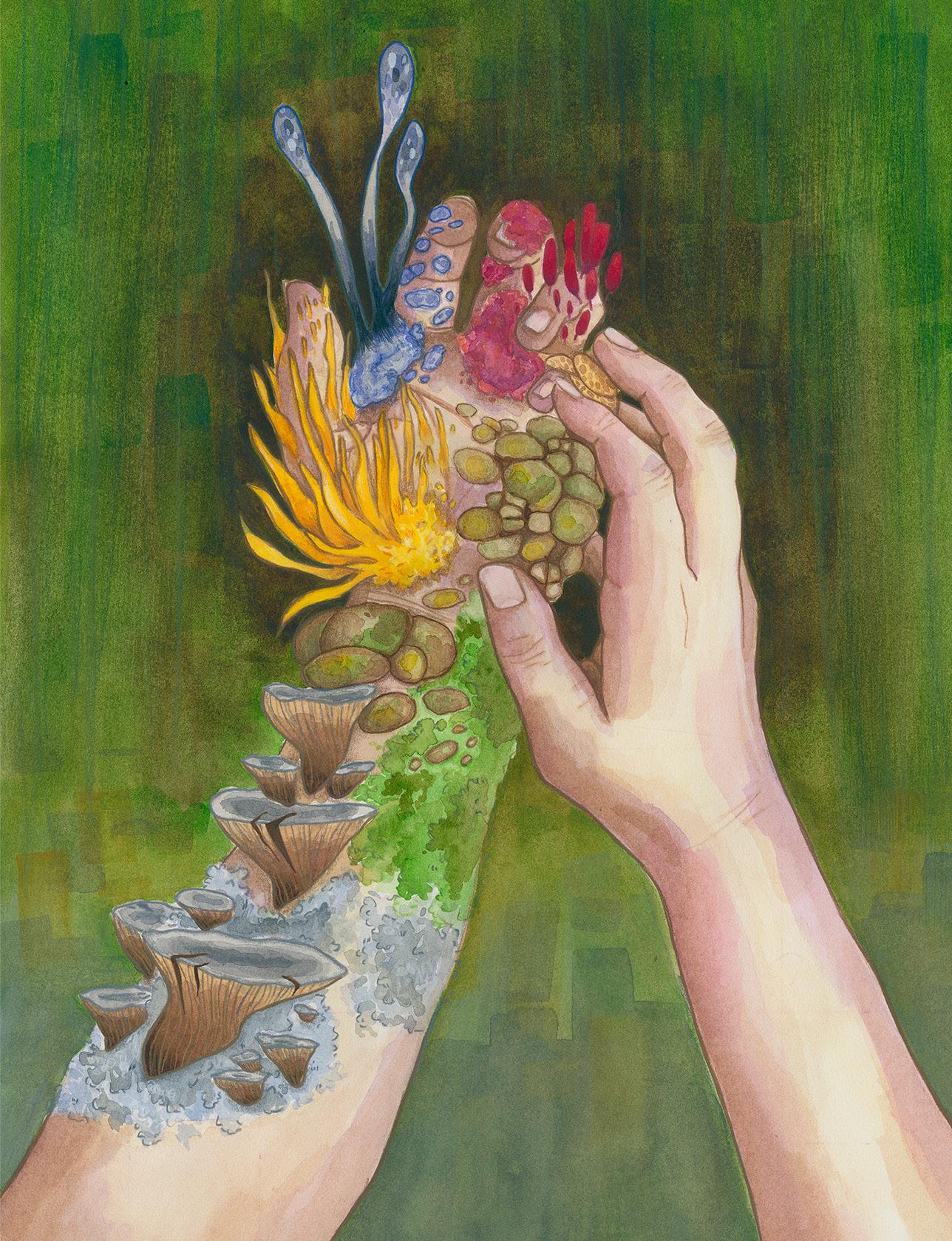
The Dust that Remains
by Charmaine Arjoonlal
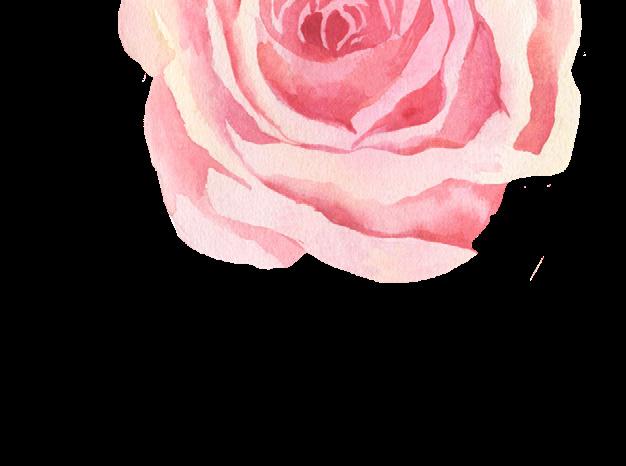
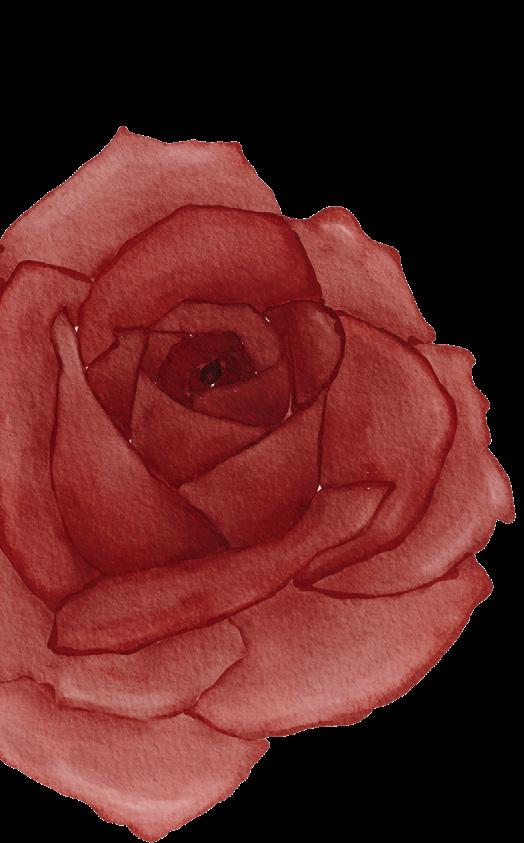
After our adoptive parents passed away, my sister and I had three days to empty their Peterborough home. Our father had died fairly quickly of prostate cancer and leukemia. A year later our mother had followed him—of “unknown causes”—we didn’t press the coroner for an autopsy. It wouldn’t make her any less dead.
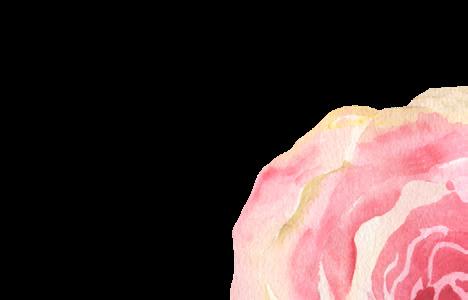
This wasn’t their first house, nor their first time living in Peterborough, Ontario, having moved frequently throughout their adult lives. Perhaps they had found some happiness the first time around or maybe they returned to make it their final resting place. I suffered through high school there but it never felt like home. Now my sister Susan and I needed to decide what to do with the accumulation of their shared lives. We weren’t prepared, but is anyone?
“It smells in here, “I exclaimed to Susan as our feet crunched the carpet in the front foyer and looked down to discover what appeared like pet food. Our father had purchased the black and brown carpeting without our mother’s input and it lay dark, laden with secrets. I pinched my nose but could still smell a blend of mold, mildew, stale tobacco smoke, cat urine, dust, perfume and some unnamed thing— perhaps disenchantment or regret or despair. It sank deep into my pores, but perhaps it had never left.
We were grateful to Susan’s husband who had arrived a week prior to capture our mother’s cat, who had become feral. It took my brother-in-law two hours of scrambling around in tight spaces to emerge covered in scratches, a piti ful mewling emanating from the travel cage. Our mother was
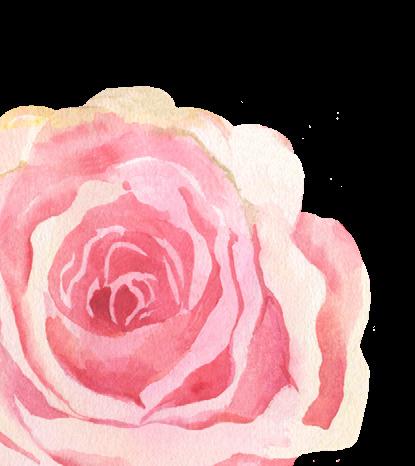
117 | Issue 5
a lover of all animals and growing up, our home had overflowed with them—cats, dogs, rabbits, birds, goldfish, gerbils. It must have broken her heart to tip a bag of cat kibble onto the floor, knowing she couldn’t care for him anymore.
I entered the kitchen. My father had made the mistake of using water-soluble paint on the cabinets. “What’s wrong with you!” my mother had screamed as the paint rubbed off on her cleaning rag. Her anguish hung in the air like the whistle of bullets, waiting for a target.
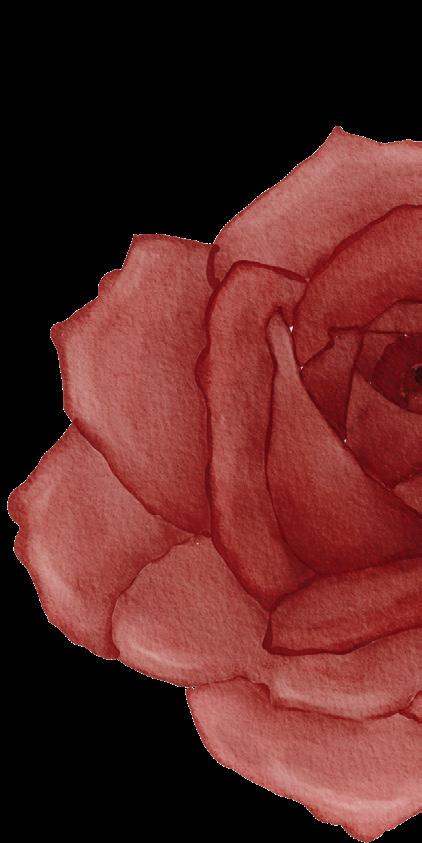
The floor creaked as I shifted my weight. I wanted to tiptoe, to hold my breath, to whisper. The sticky cupboards overflowed with empty margarine containers. Some were filled with packets of salt, pepper, ketchup and mustard— hundreds of them—lined up like soldiers waiting for battle. Piles of folded up, used wax paper filled the drawers. Our father had carefully wiped the paper clean of the remnants of his sandwich every night and reused and reused and reused, a Great Depression survivor to the end.
When I looked towards the kitchen window, I could see my mother again, outlined by the dusty sunlight, sitting at the crumb-covered table, in a button-up housecoat reading the paper. “A true Canadian is White,” she had informed me after school one day as I attempted to quietly grab a snack. Too shocked and confused to reply, the bullet gouged itself deep inside where shame resides.
Susan put her hand on my shoulder and I yelped. “What the hell!” she protested. I turned and appraised her. I had always thought Susan beautiful. Tall with glossy dark brown hair, eyes like a movie star, soft skin that passes for white even with her half South Asian heritage. I barrelled through life like a tank whilst she crept, staying in the trenches.
“Let’s go through the china cabinet first, ‘’ Susan said. The back of my neck prickled but when I looked back at the kitchen table, my mother was gone.
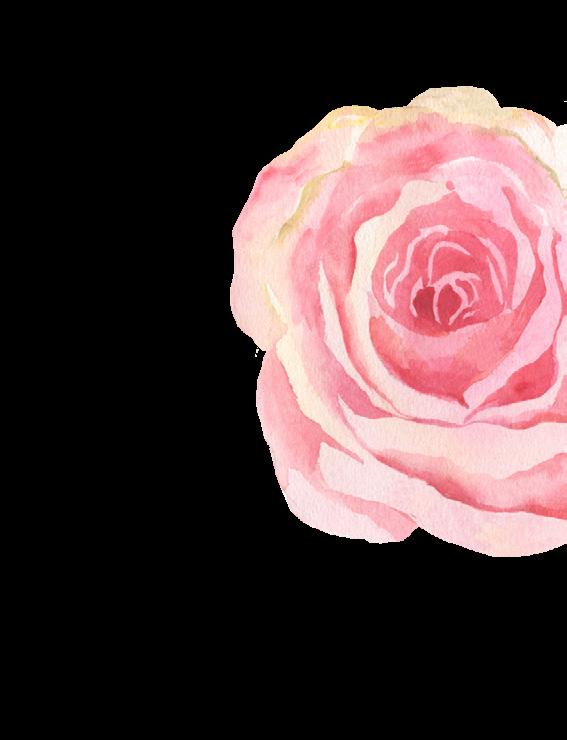
The china cabinet with matching side and dining table stood in the living room that was only used for guests. Crafted of walnut, it was my mom’s pride and joy. She placed her bi-weekly allotted household money in a glass bowl on

Winter | 118
the top shelf. The cabinet doors squeaked when opened, which announced to our father that she was removing money. As a teenager I had vowed to never be financially dependent on a man.
I took the bowl, which still rattled with change, a pair of silver-plated salt and pepper shakers I associated with Christmas and a mother of pearl cutlery set that had been handed down a few generations. I eventually found places for them in my home, like carefully placed headstones.
The carpet in the living room was a startling rose colour and, worried about spills, my parents had bought an area rug to cover it—which was also rose but strewn with flowers—which ended up being nicer than the original carpet. The pristine antique couch and armchairs were covered in shiny pink fabric with embroidery. Little side tables were hidden in the arms and could be pulled out for drinks. I imagined my adoptive parents as teenagers smothering their giggles to sneak kisses when it sat in my grandmother’s front room, before the second world war, before their accumulation of untended wounds that had festered.
The only item that our mother dusted was a double globed lamp hand-painted with red and pink roses. I could imagine a breeze lifting the petals at any moment.
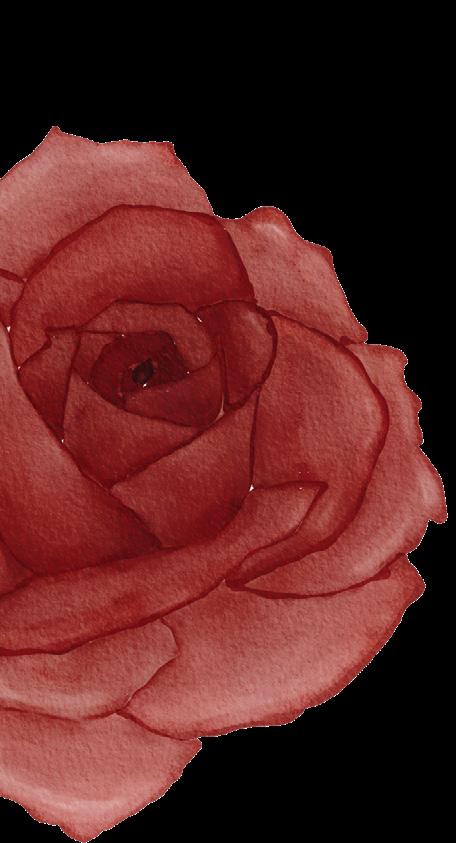

“I’m going to dust the roses,” she would announce gaily as she walked to the front room, a cleaning rag in hand. Her normally pale skin glowed rose as she stroked the lamp as one would a lover. She would leave it turned on, a beacon to happier times.
I stepped into my teenage bedroom, curtains now yellowed, the desk lovingly built by my father looking forlorn and empty. The scratchy red and pink rose covered bedspread and pink afghan knitted by my mother laid cold on the bed. I felt the hands grab at me, tugging at my pelvis, moving to my stomach, attempting to touch my breasts. It was a minefield waiting to be stepped on. Feeling dizzy, I quickly stepped back into the hallway and shut the door, its ghosts now locked inside. I didn’t want anything from there.
My stomach now clenched and queasy, I joined Susan in our parents’ bedroom, a place we didn’t enter as
119 | Issue 5
kids. Twin beds with sheets pulled tight, sheers pulled shut on the window, carpet devoid of foot prints, the stillness almost tomblike.
“I’ll look in Mom’s dresser,” my sister announced and dragged open the heavy top drawer. I moved to stand in front of my father’s wardrobe. Interesting because I thought her my mother’s favourite and she thought me my father’s.
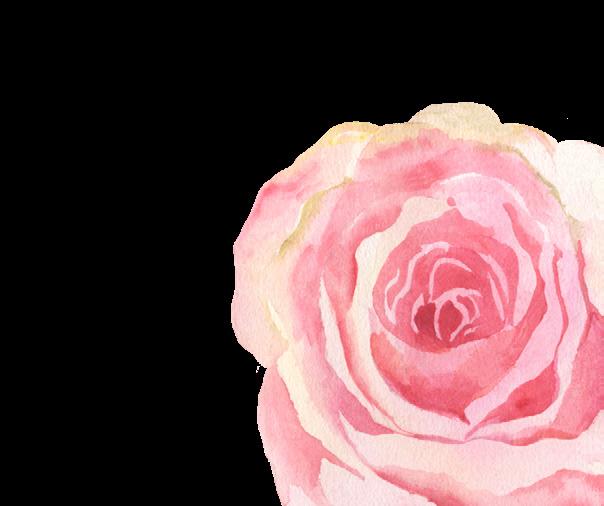
I sucked in my breath before opening the doors of the upper compartment and was surprised to see the gleam of rosewood that had laid hidden under the heavy white paint of its exterior. Inside, the aroma of wood smothered the smell of ingrained cigarette smoke. Graying underwear—stretched, stained, full of holes—mismatched worn socks, undershirts still in packages, envelopes and individual pieces of paper.
I pulled out his Royal Canadian Airforce wings from a stained envelope and remembered the first time I had seen them. I was seven, playing with my dollhouse that had just been unpacked from yet another move, when I noticed a yellowed envelope stuffed into one of the tiny rooms. I pulled out two gold, embroidered wings and asked my father about them.
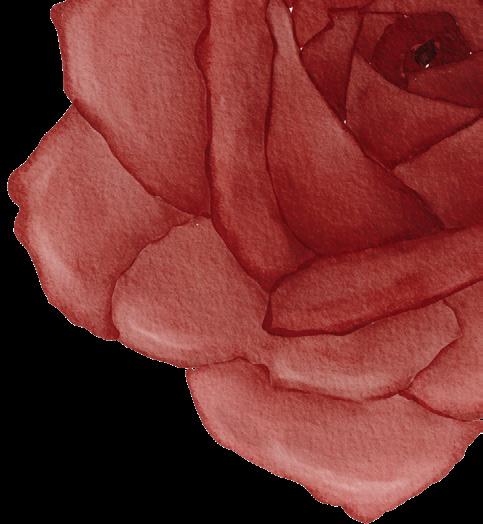
“They are from when I was an Air Gunner in the Air Force,” he had whispered. “We were flying over Germany and I saw a school full of kids blown up.”
His eyes flicked back and forth, back and forth and tears leaked out, pouring down his cheeks. He turned and walked away. I had never seen my father cry before and shivered, the basement now felt cold and damp.
Peering into my father’s dresser, I pulled out a crumpled piece of paper and smoothed it open. Adoption Record was printed on the top. I was 31 and my birth family was still unknown to me. My breathing quickened and I needed to blink a few times to focus on what I now realized was a legal document.
Arjoonlal. Arjoonlal. Arjoonlal. My birth name was Arjoonlal! Growing up, I had become accustomed to people asking me, “How did you get a name like Gilmour?” Now, I had a name that matched my brown skin. My body tingled. I felt the beginnings of a grounding that had eluded me my
Winter | 120
whole life.
When I was seven years old, my adoptive parents had sat me down with something to tell me. I had thought I was in trouble. They explained that I was adopted and added, “Charm, you were born in Toronto and your original parents are West Indian. Do you have any questions?” At the time, I was the only person of colour living in our town. Saying my parents were West Indian was akin to saying they were from another planet. I had no clue what “West Indian” meant. Yet I knew I was different. People regularly told me to “go back where you came from,” but I hadn’t known where the “came from” was. At seven, I now knew—somewhere—that there were other people like me. My whole world had opened up.
Standing in my late parents’ bedroom, my heart walloped. Blinking rapidly, the piece of paper now rat-atatting in my hand, like it had a life of its own, like it knew it could change my life, I looked at my sister, convinced she could hear it. But she was methodically pulling items from my mother’s underwear drawer. Yellowed slips, old fashioned girdles that must have cut her in two, embroidered handkerchiefs, random pieces of costume jewelry, white face powder, broken watches. She had kept everything. Belongings protected them from an uncertain future.

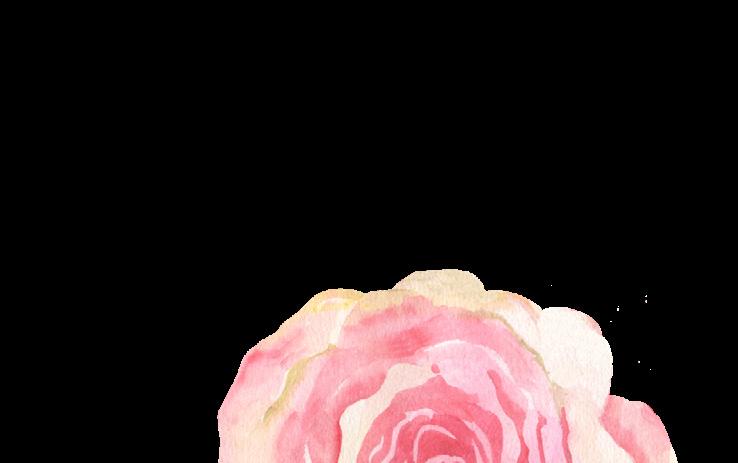
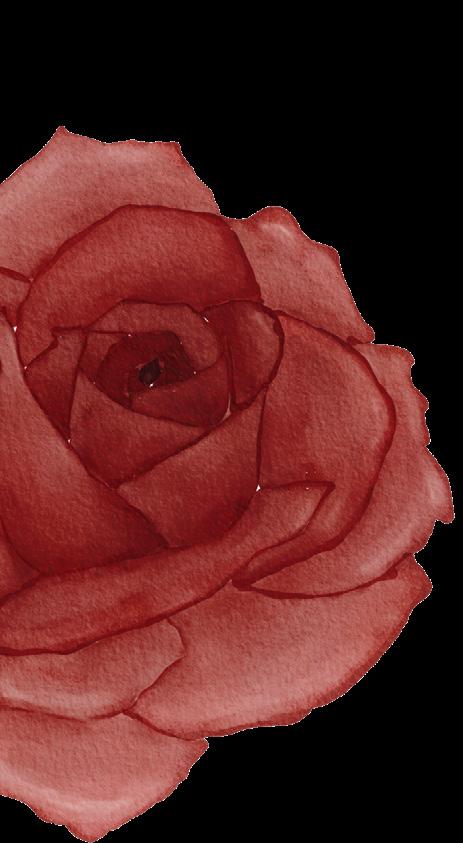
Who were they, these parents who adopted one brown kid and one half-brown kid in the mid-1960’s, in their mid-40’s, when it wasn’t yet an accepted, progressive thing to do? When I still turned heads wherever we went, peoples’ cruel taunts curling in the air until it became so charged that I was slammed with a hate strike when I was least prepared, and our father worried that if Susan married a white man, they could have brown babies. Who were these parents who attempted to be colourblind thinking it was anti-racist and that if they acknowledged our ethnicity and backgrounds, they’d be validating difference, not celebrating it?
I had saved the bathroom to last. We grew up with our mother singing, “Time to take my girdle off,” and she would disappear into the bathroom to reappear in something long and flowy and comfy. Her sigh of contentment would echo my own. By then, she had long stopped volunteering
121 | Issue 5
and spent her days smoking cigarettes at the kitchen table. It was nice to see her happy, even for a brief moment.
Taking a gulp of hallway air, I stepped inside. The air was stagnant, the astringent smell of disinfectant unable to mask the strange sweet smell that soured my stomach. I could see the swipe marks where the floor had been wiped clean, but the dust lay still and ash-like on the countertop and assorted knickknacks.
I imagined a chalk outline where my adoptive moth er’s body had been found crumpled, against the toilet. A cruel effigy amidst discarded cigarette butts. As I stood there, legs quivering, the silence pressed in on me. I wanted to collapse onto the cool linoleum to find what was left of her. The good parts, the honourable parts, the parts that inspired me to become a social worker.

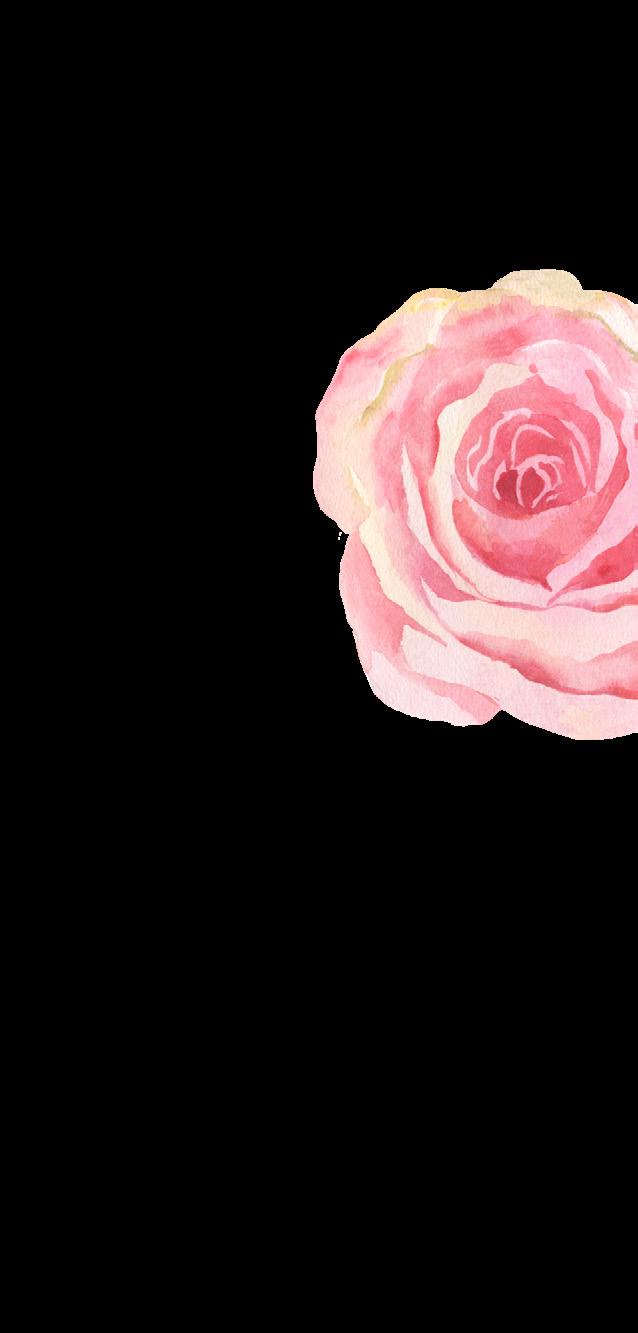
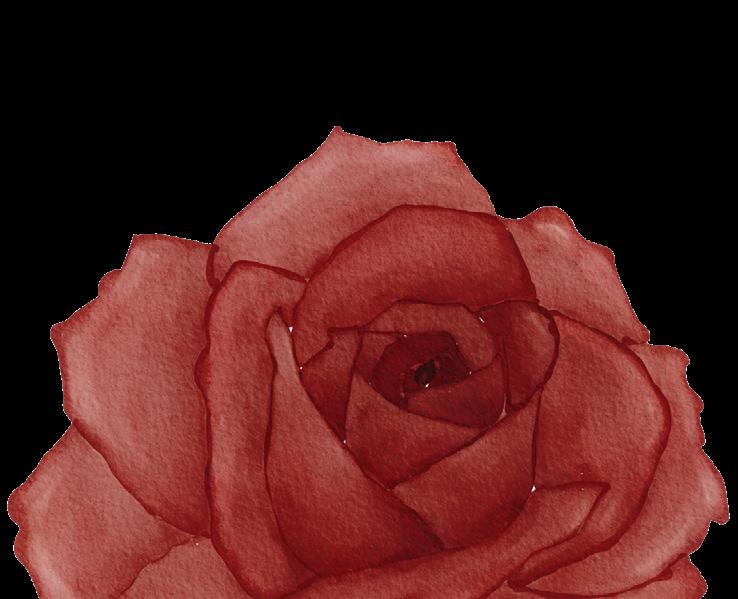
Susan and I sold everything that couldn’t fit into a couple of suitcases to an auctioneer.
I wished I could reach back in time to place her beloved globe lamp on my living room table. But I’ll always remember the glow.
~
Winter | 122
Copyright © 2022 by Chaotic Merge Magazine
Copyright © 2022 by Chaotic Merge Magazine

Chaoticmergemagazine.com
Chaoticmergemagazine.com


 by Hailey Thielen
Klara Asklund
by Hailey Thielen
Klara Asklund























 In Conversation with Zoë Mahler
In Conversation with Zoë Mahler













































 Soiled by Reece Herberg
Soiled by Reece Herberg





























